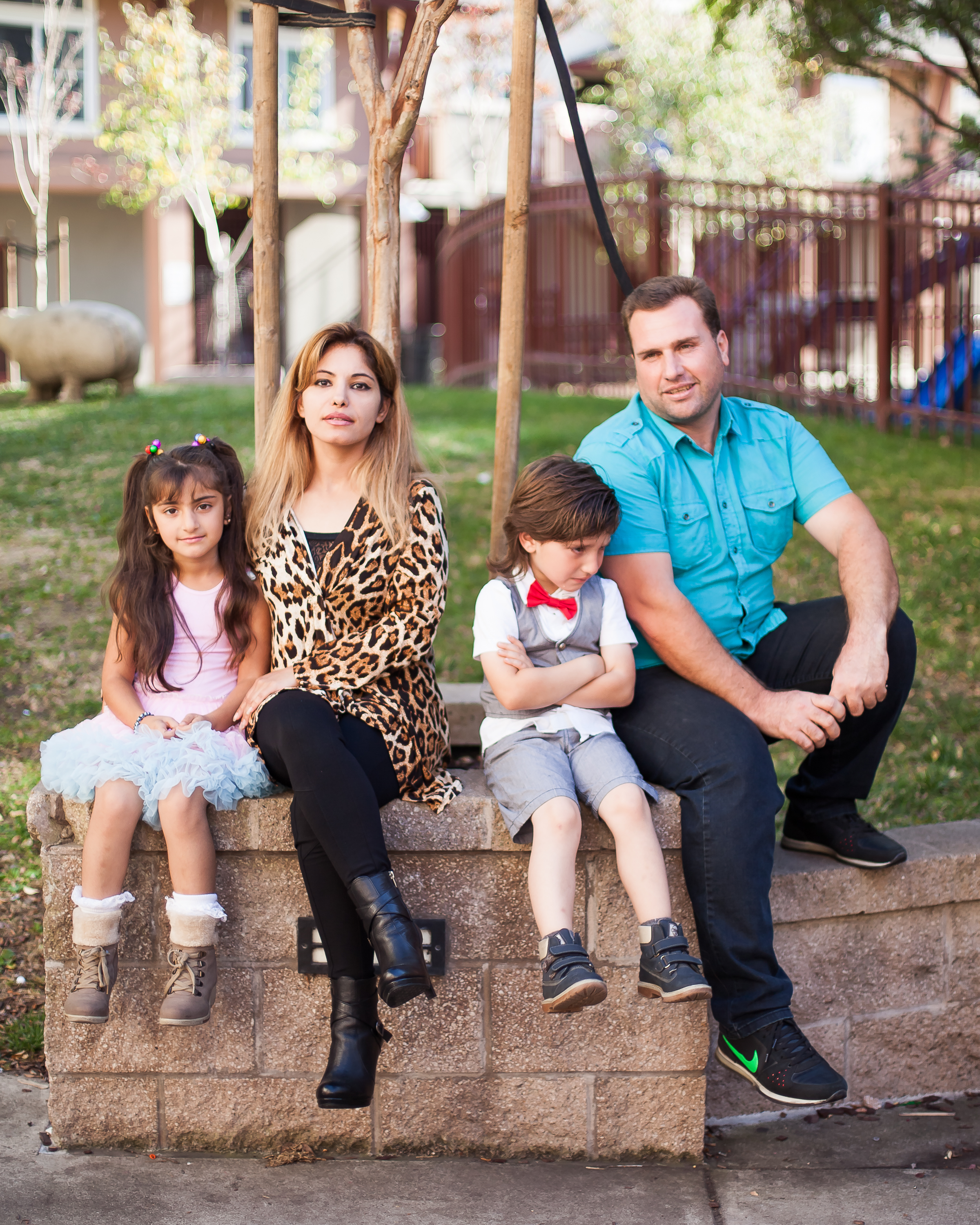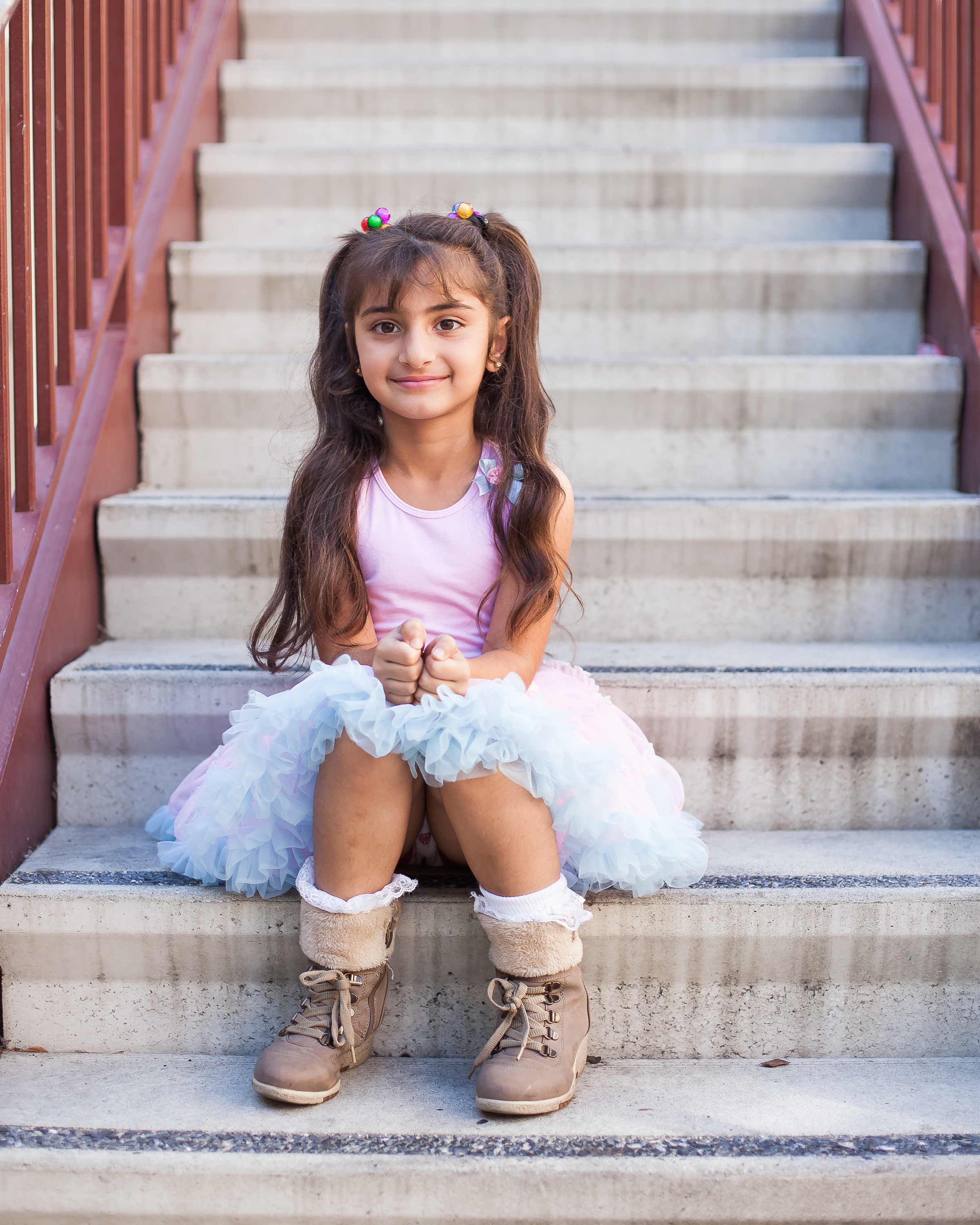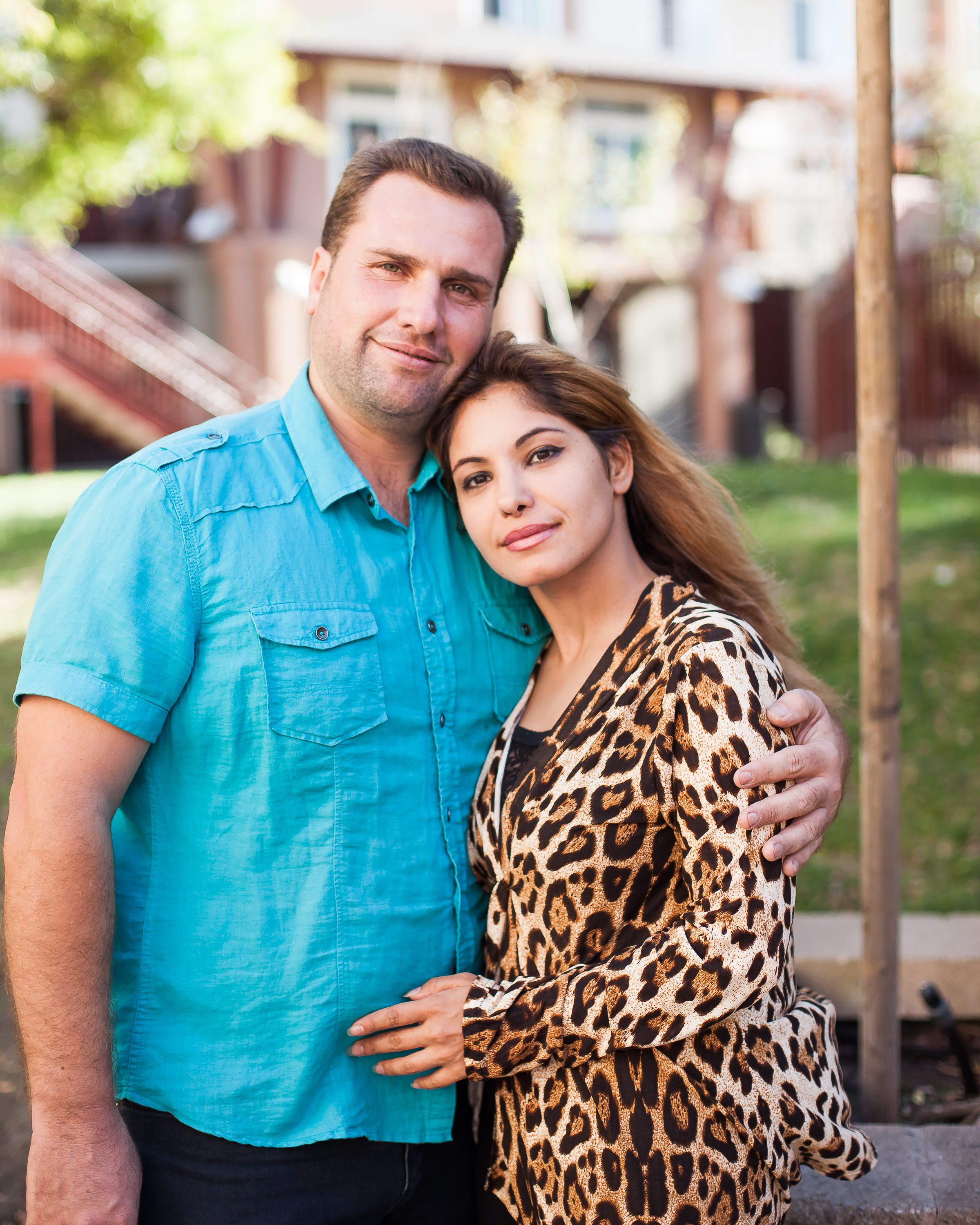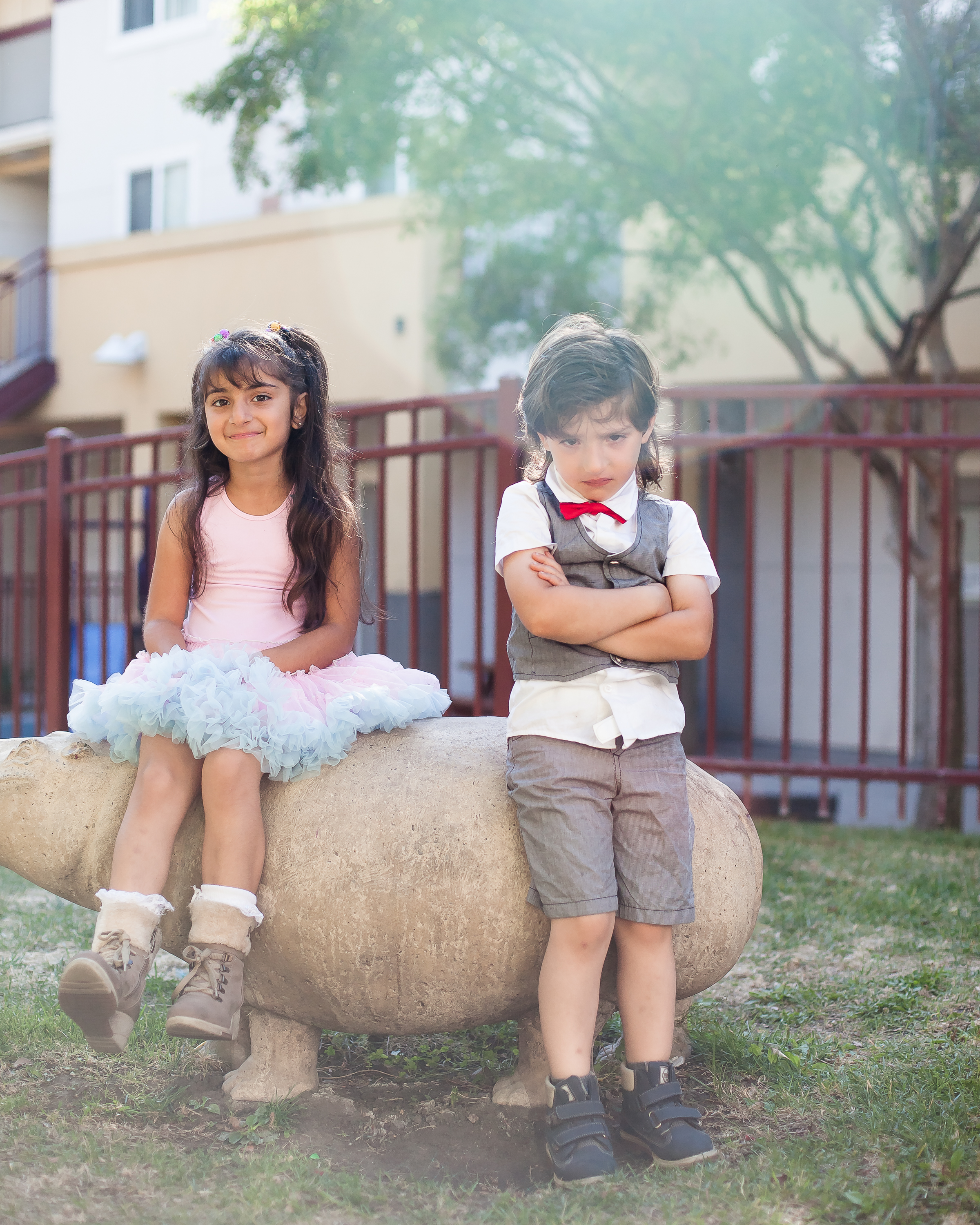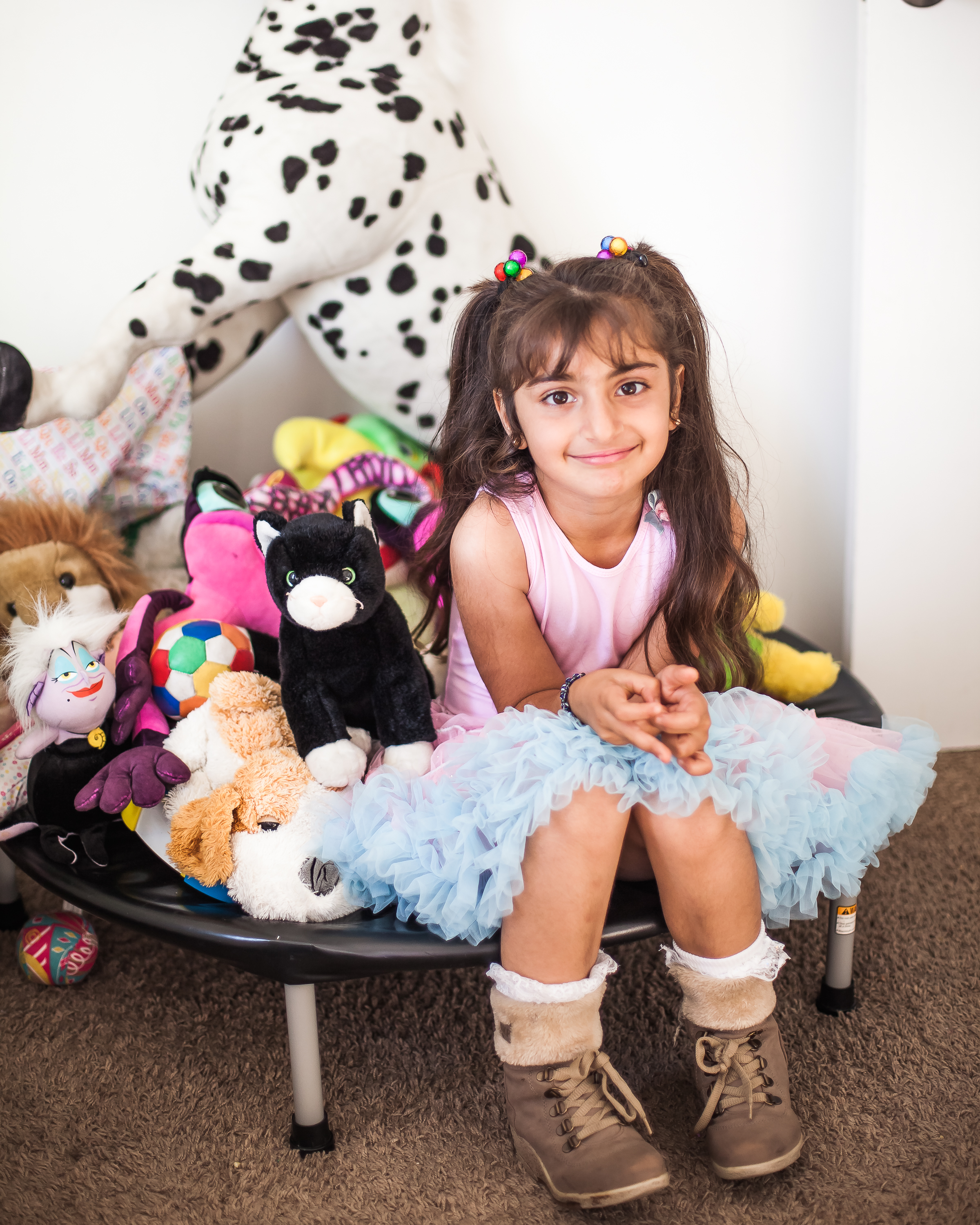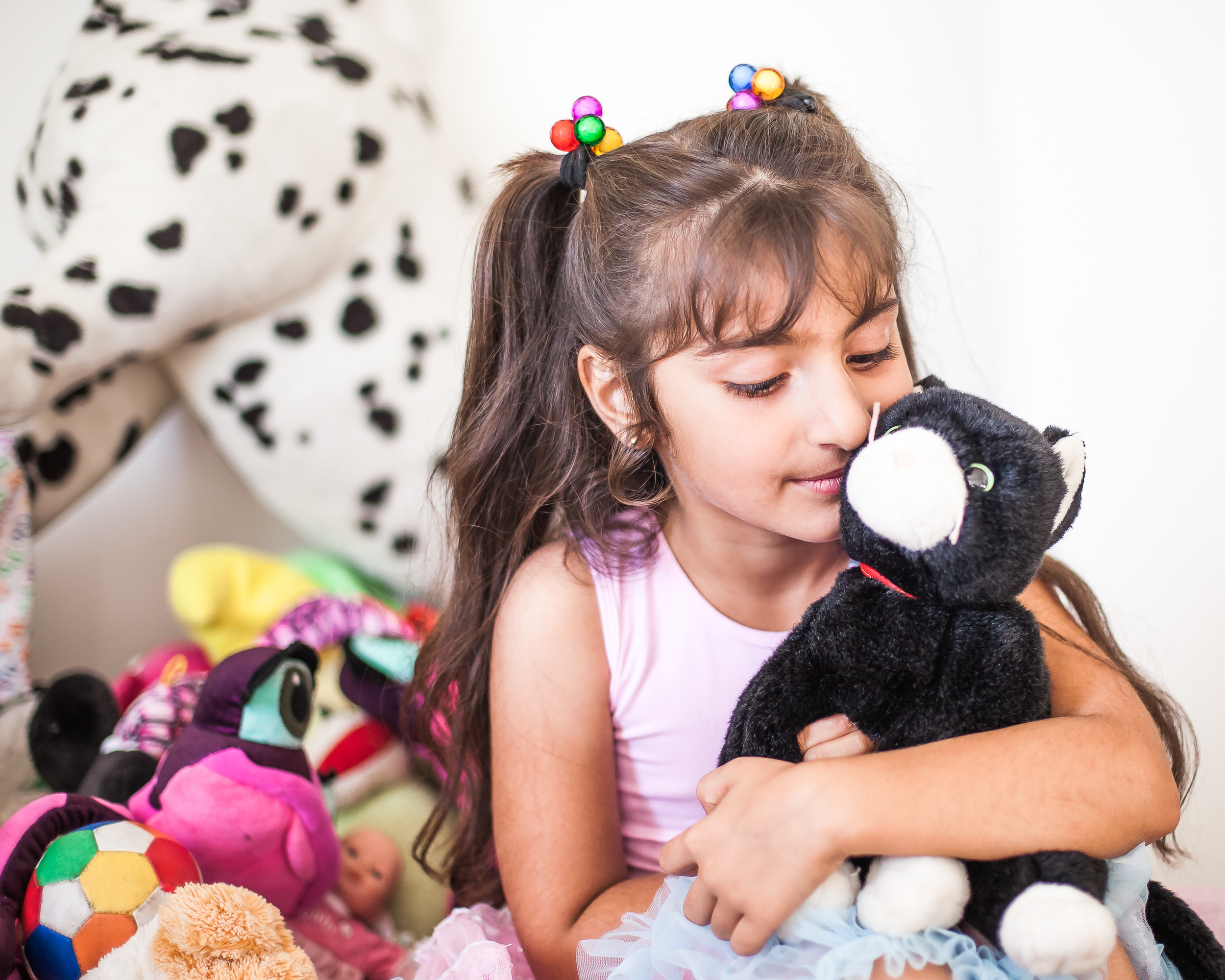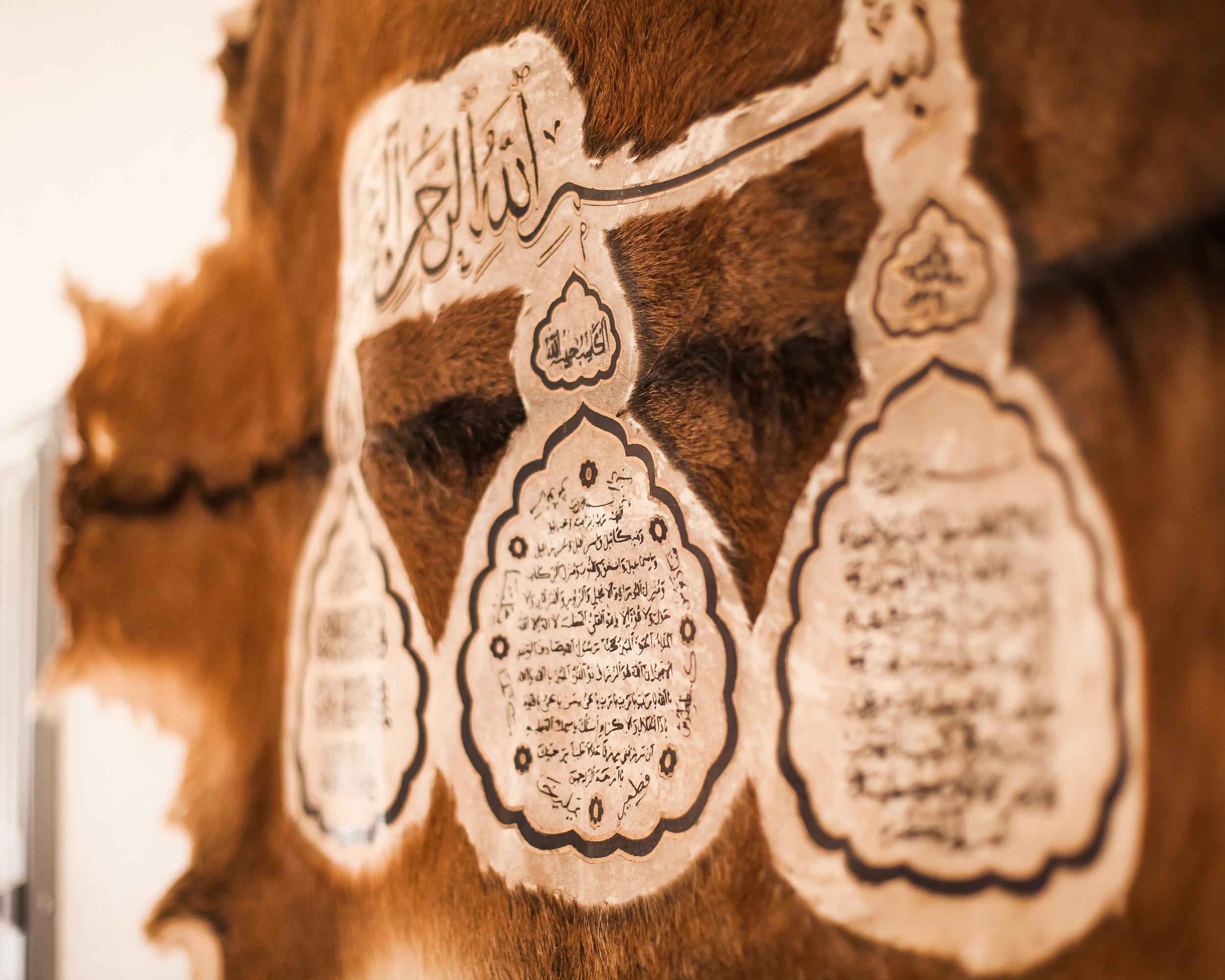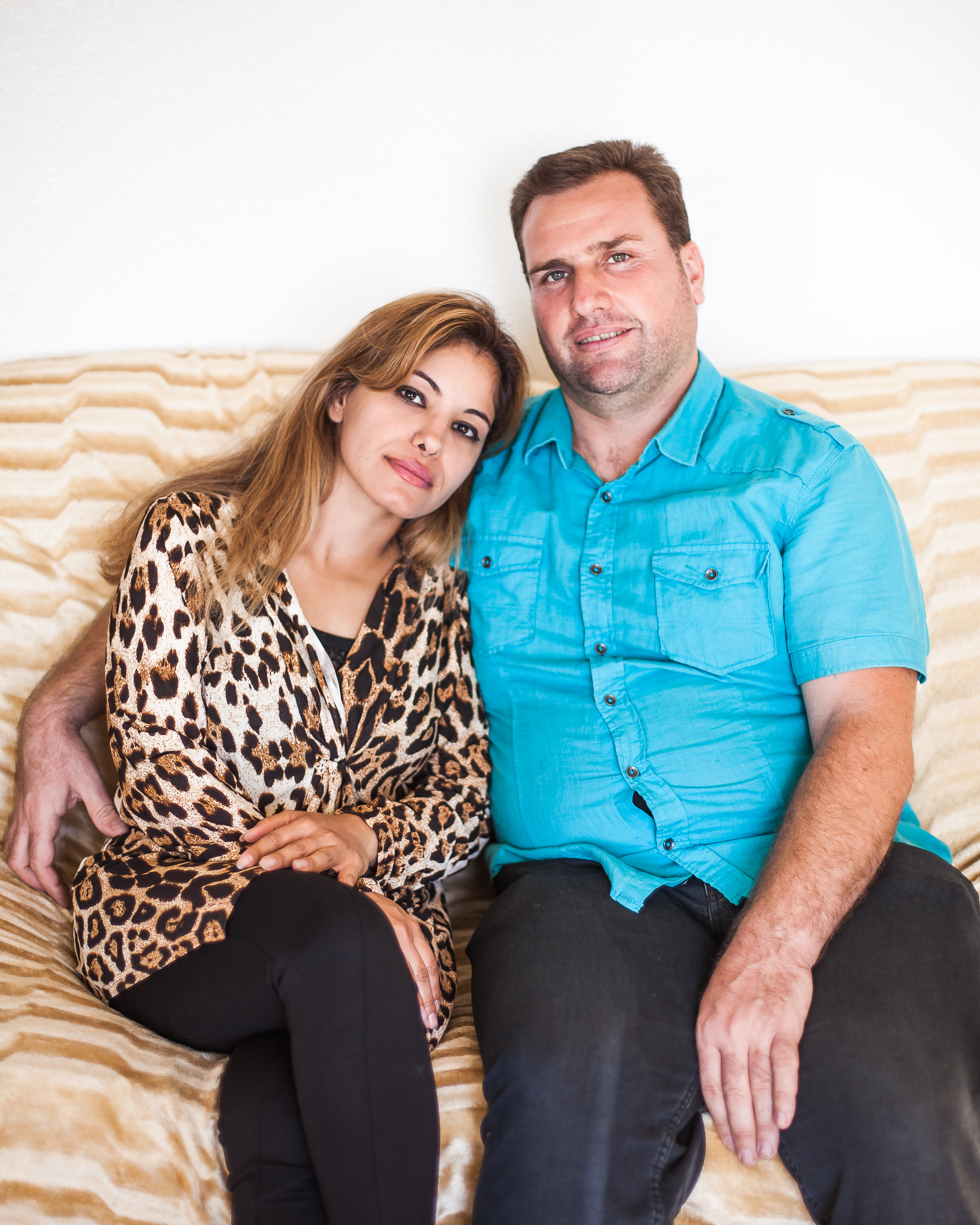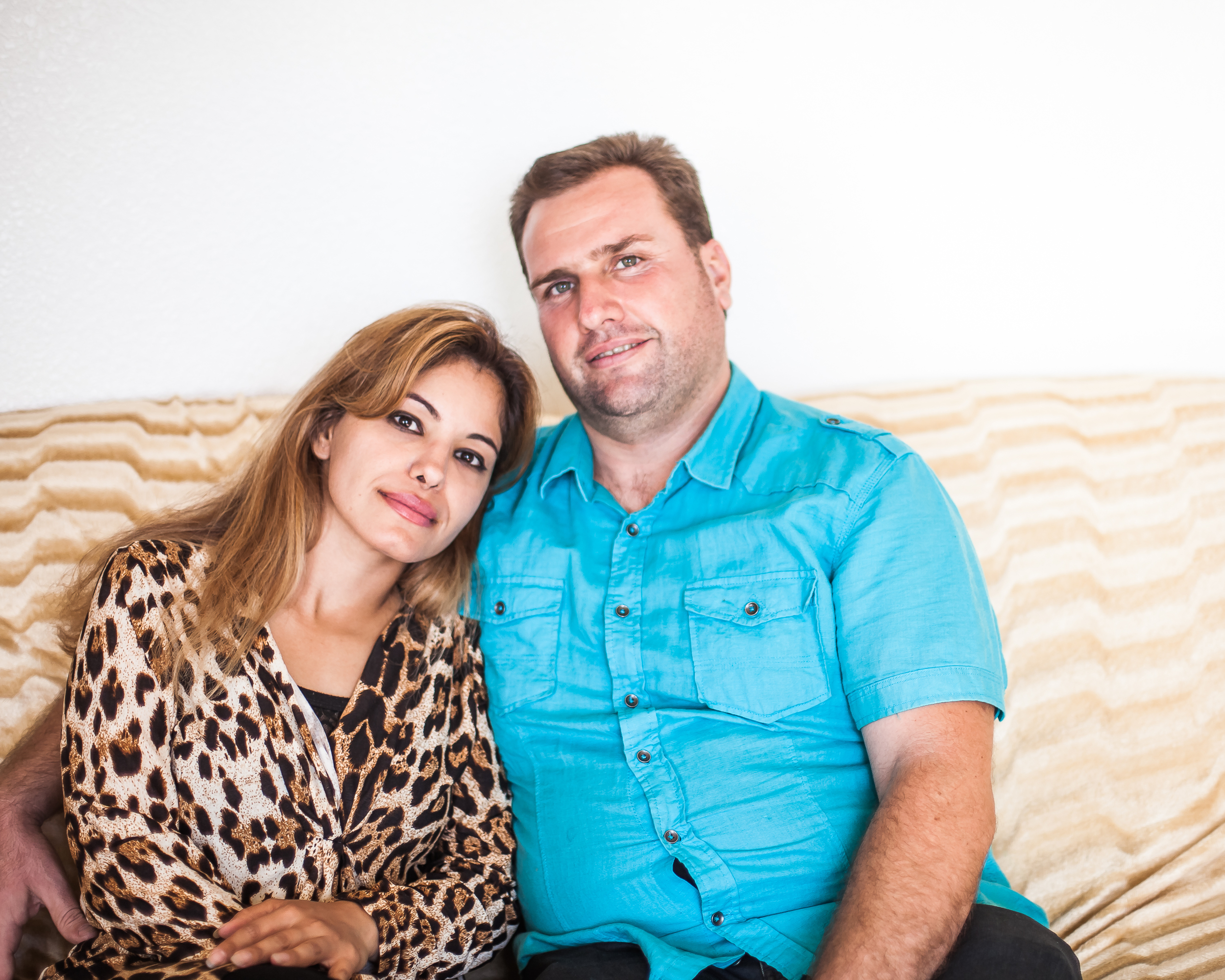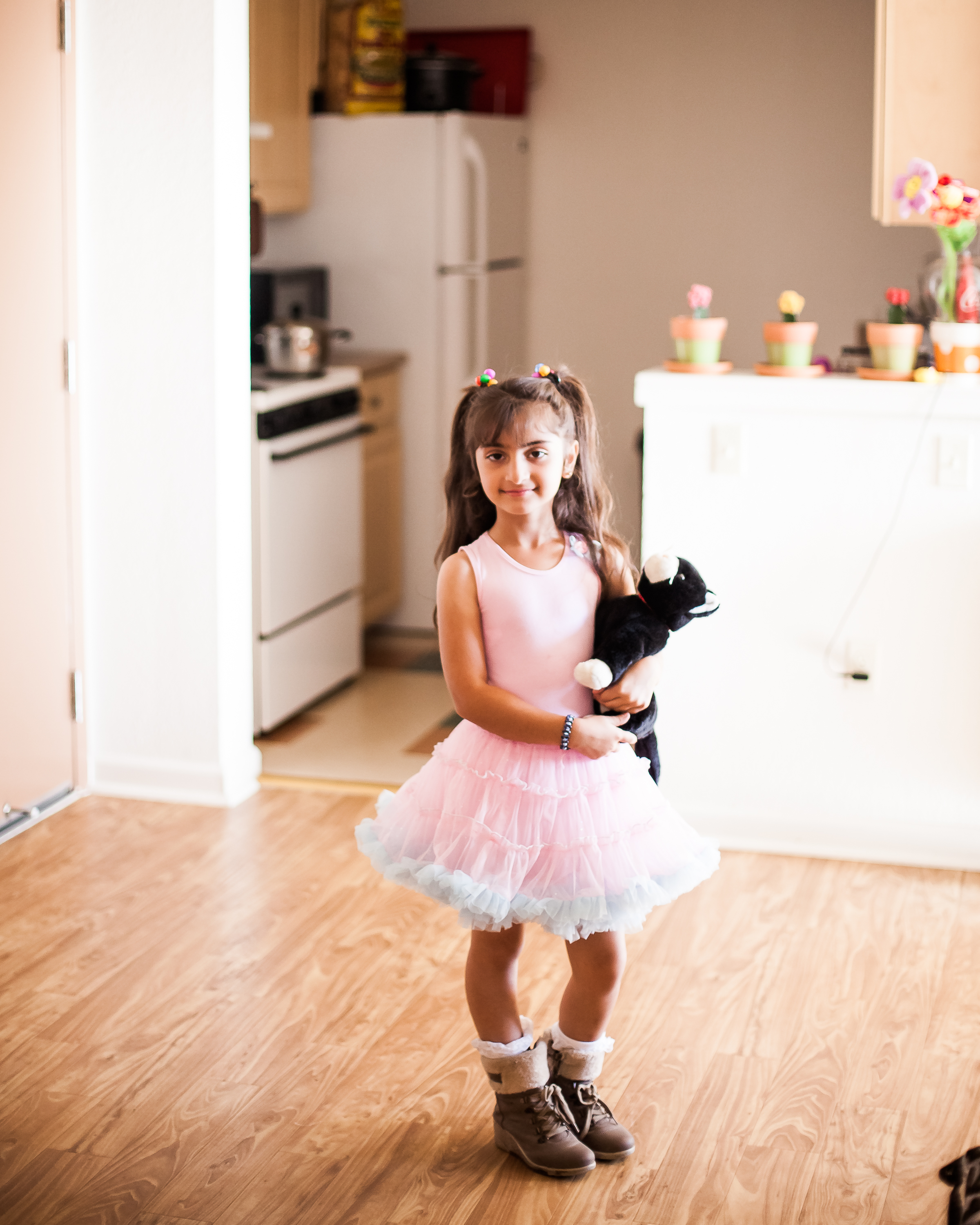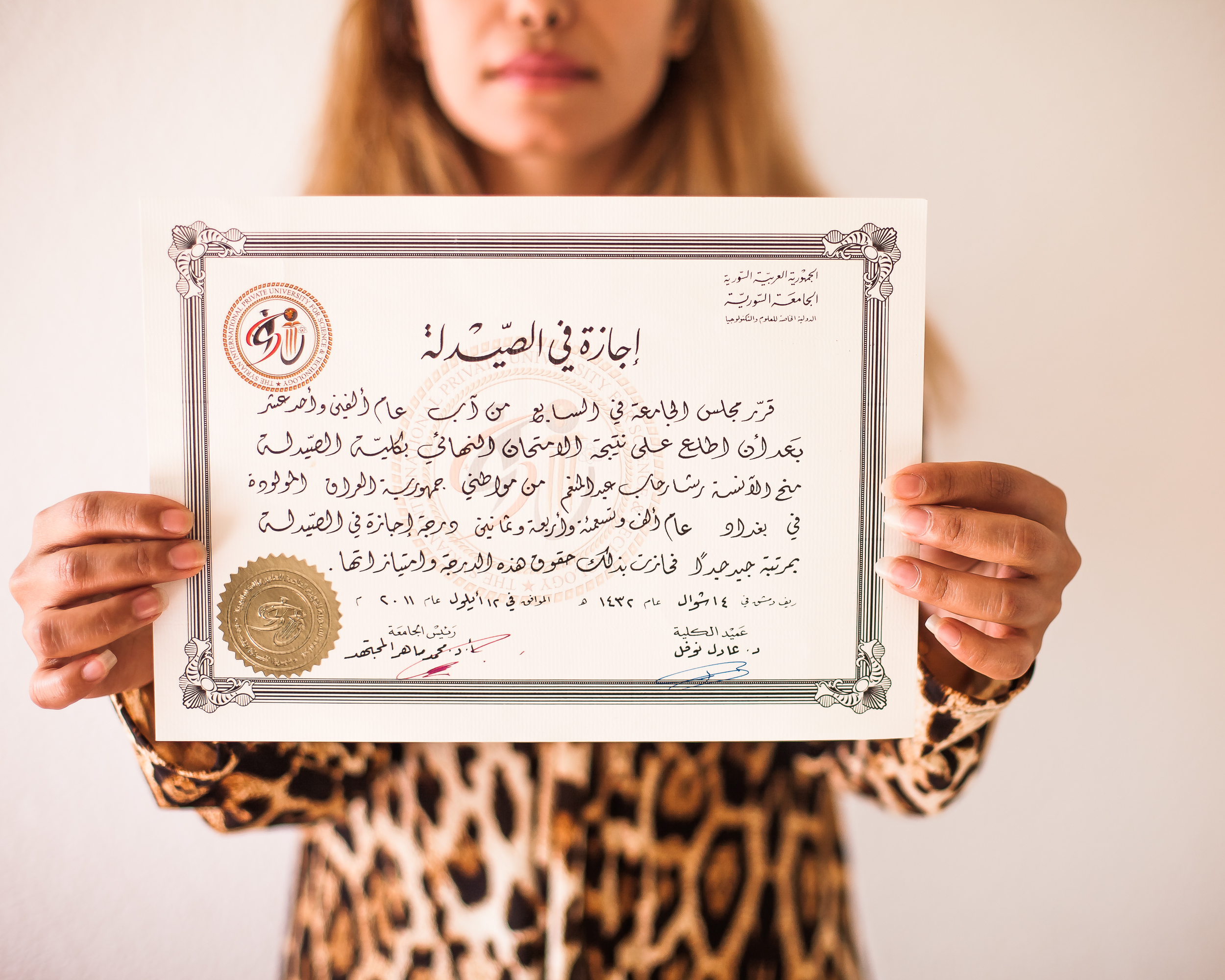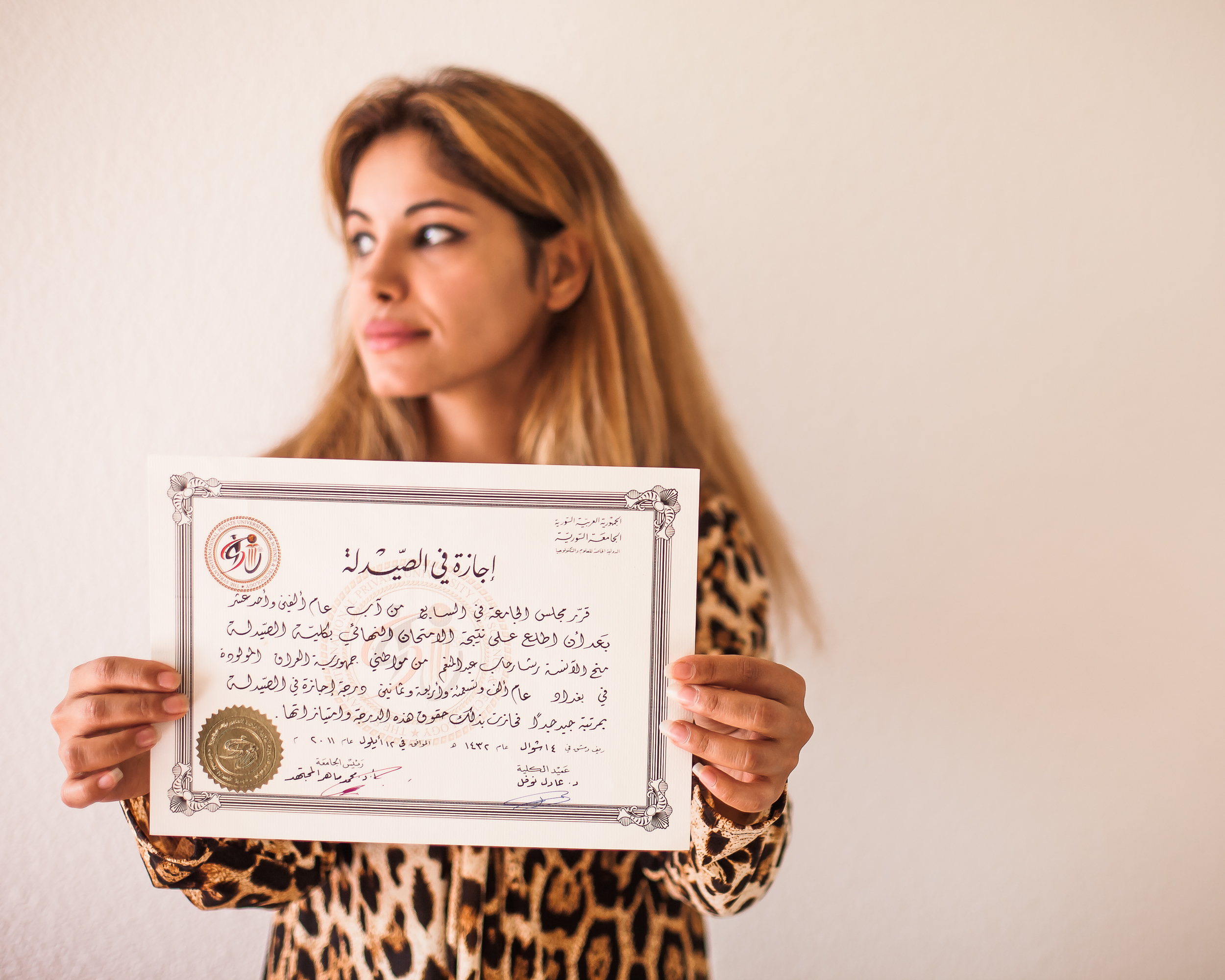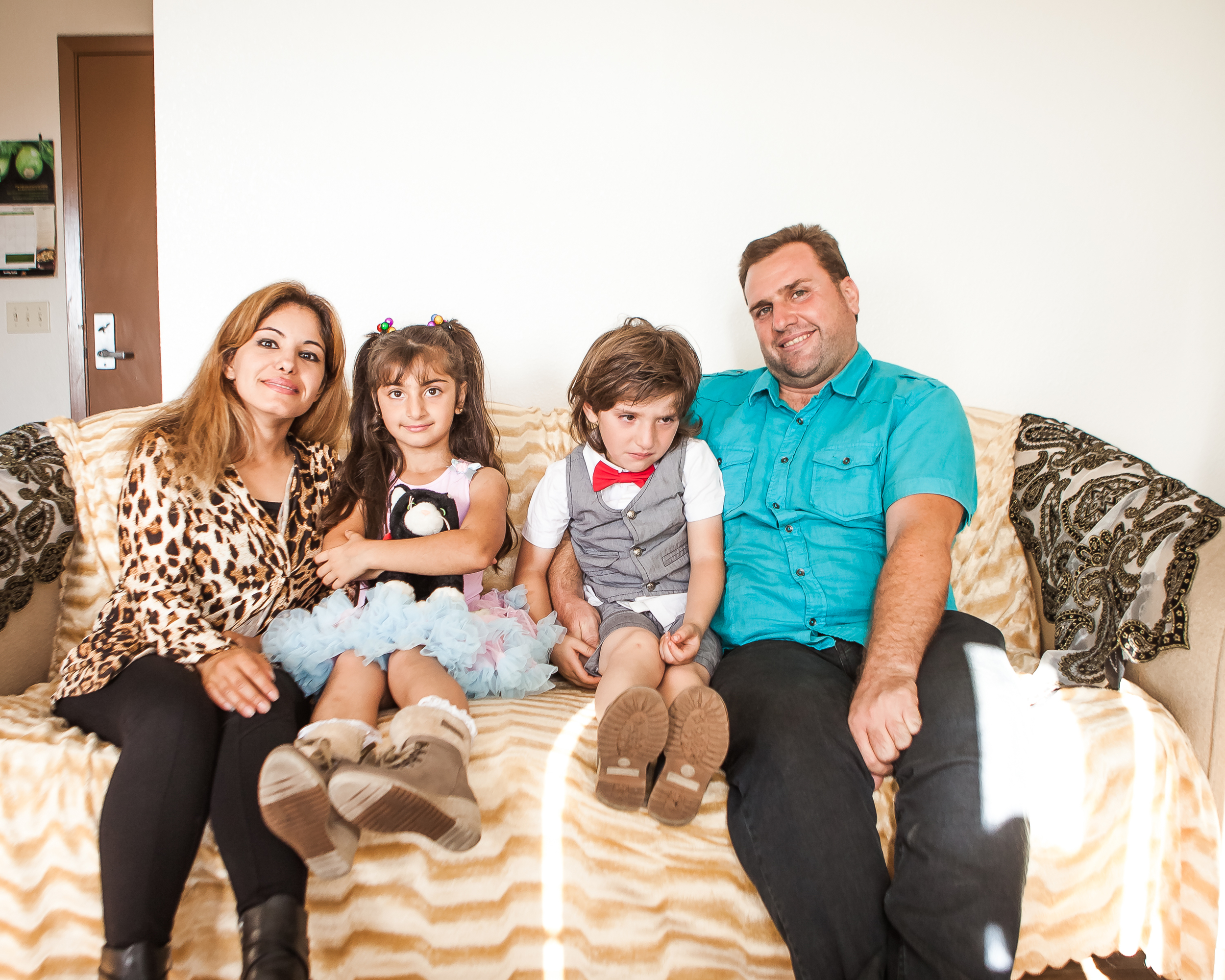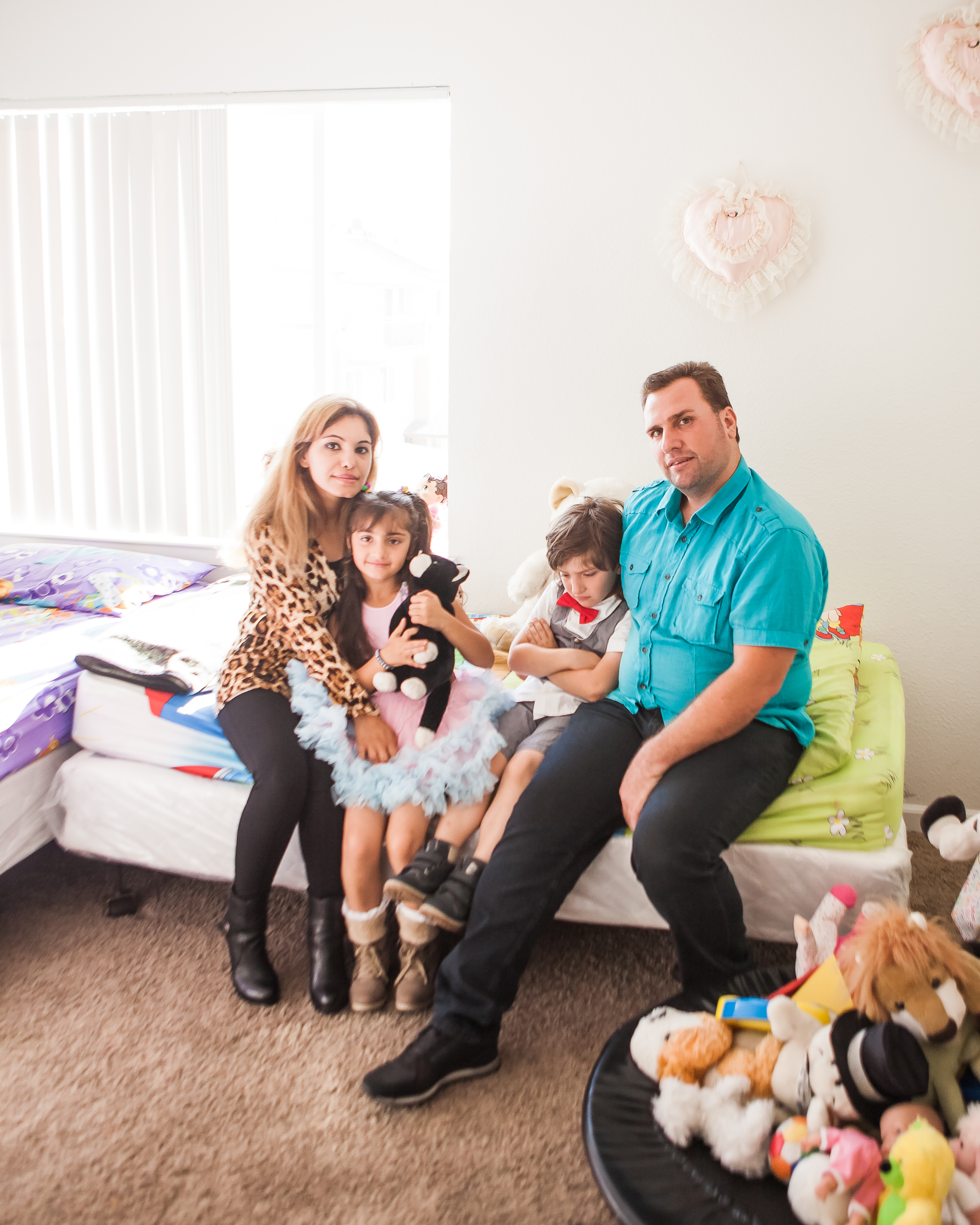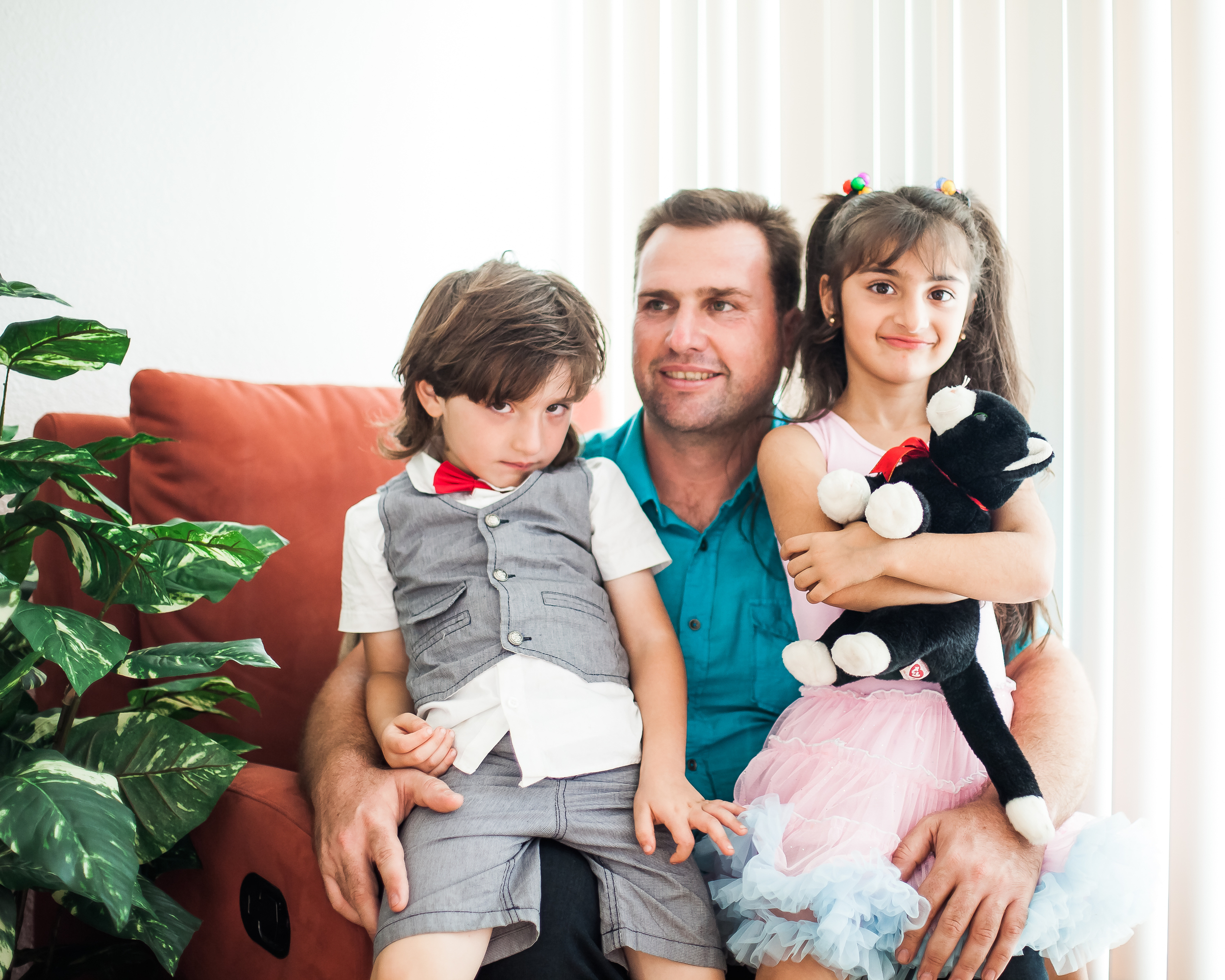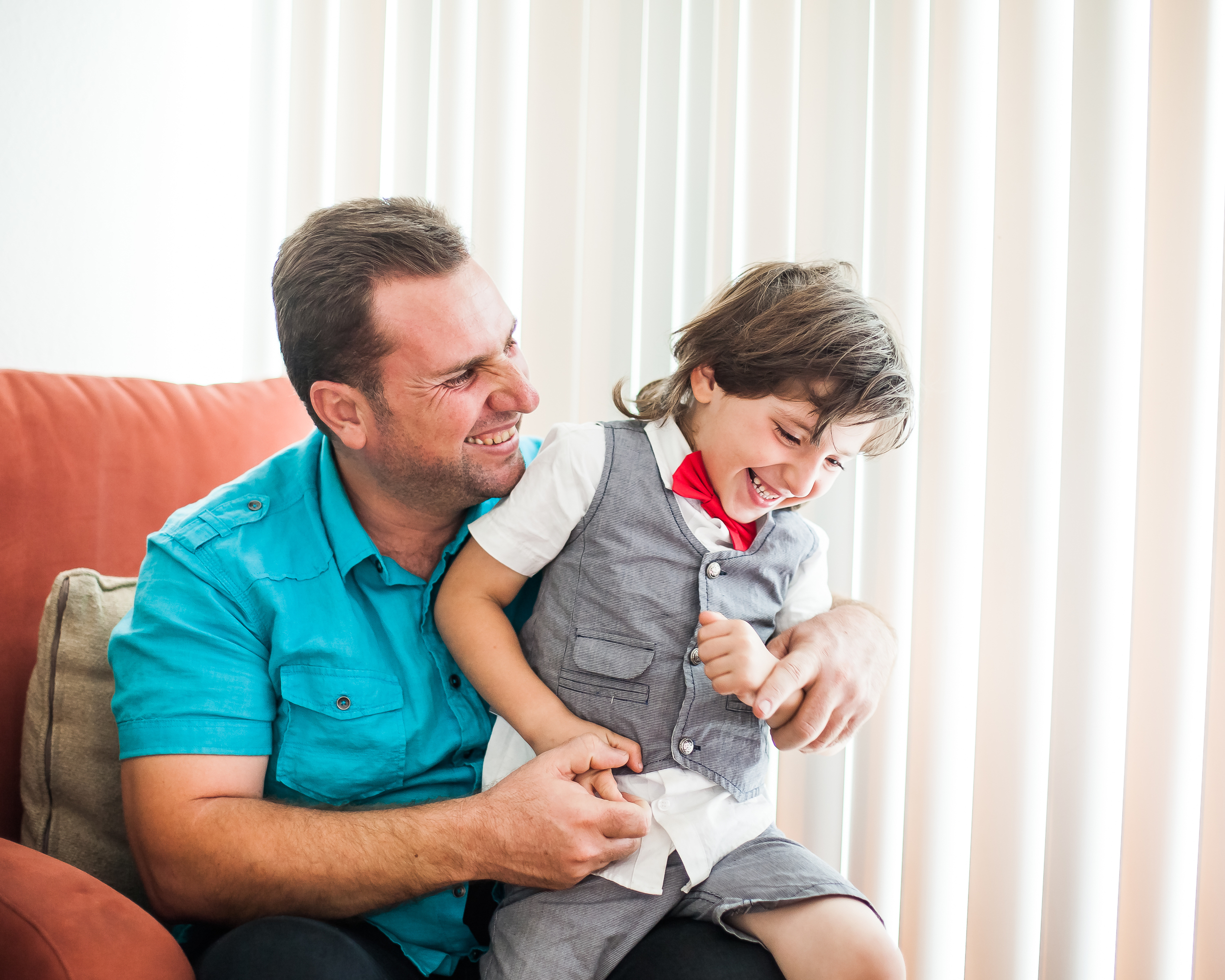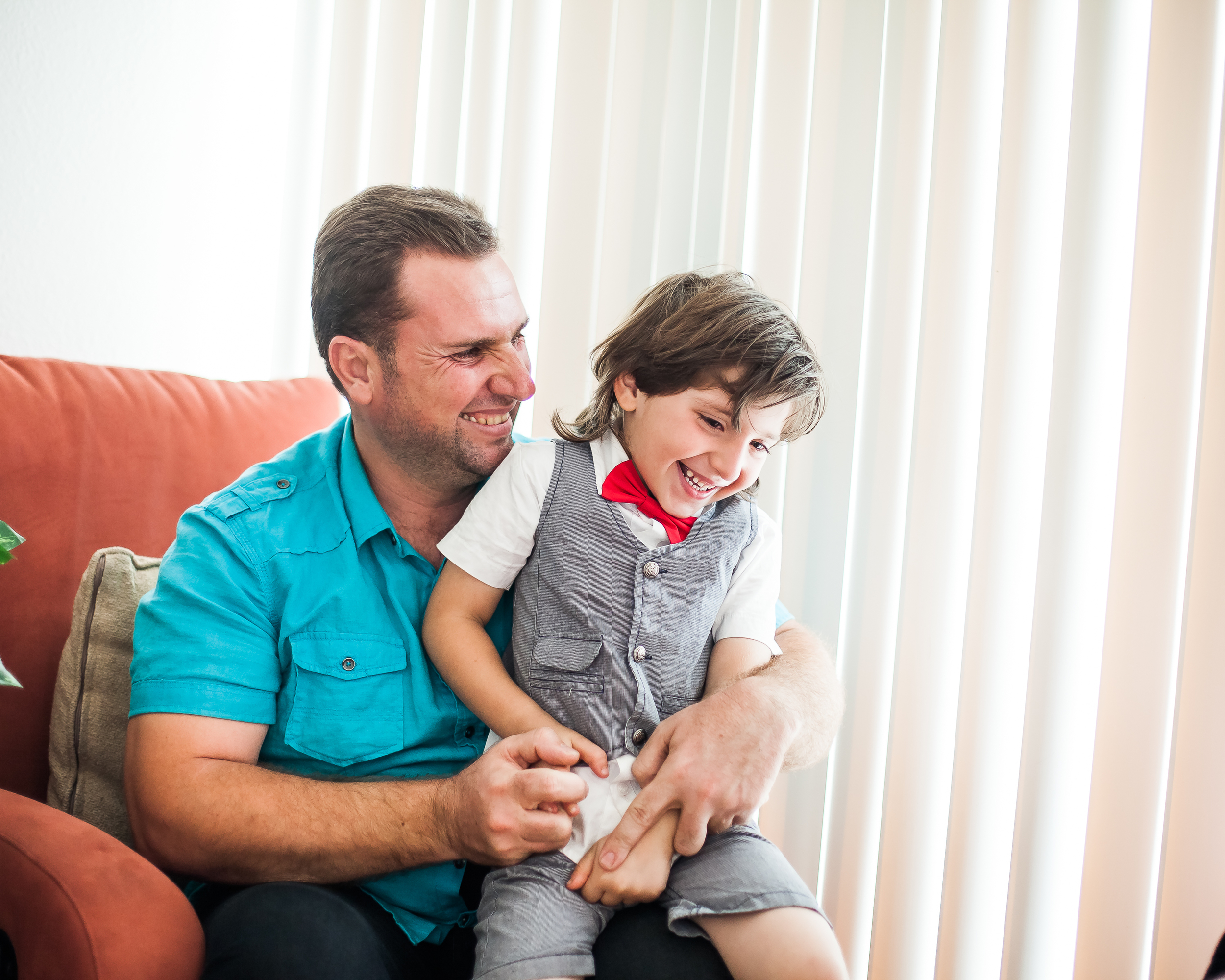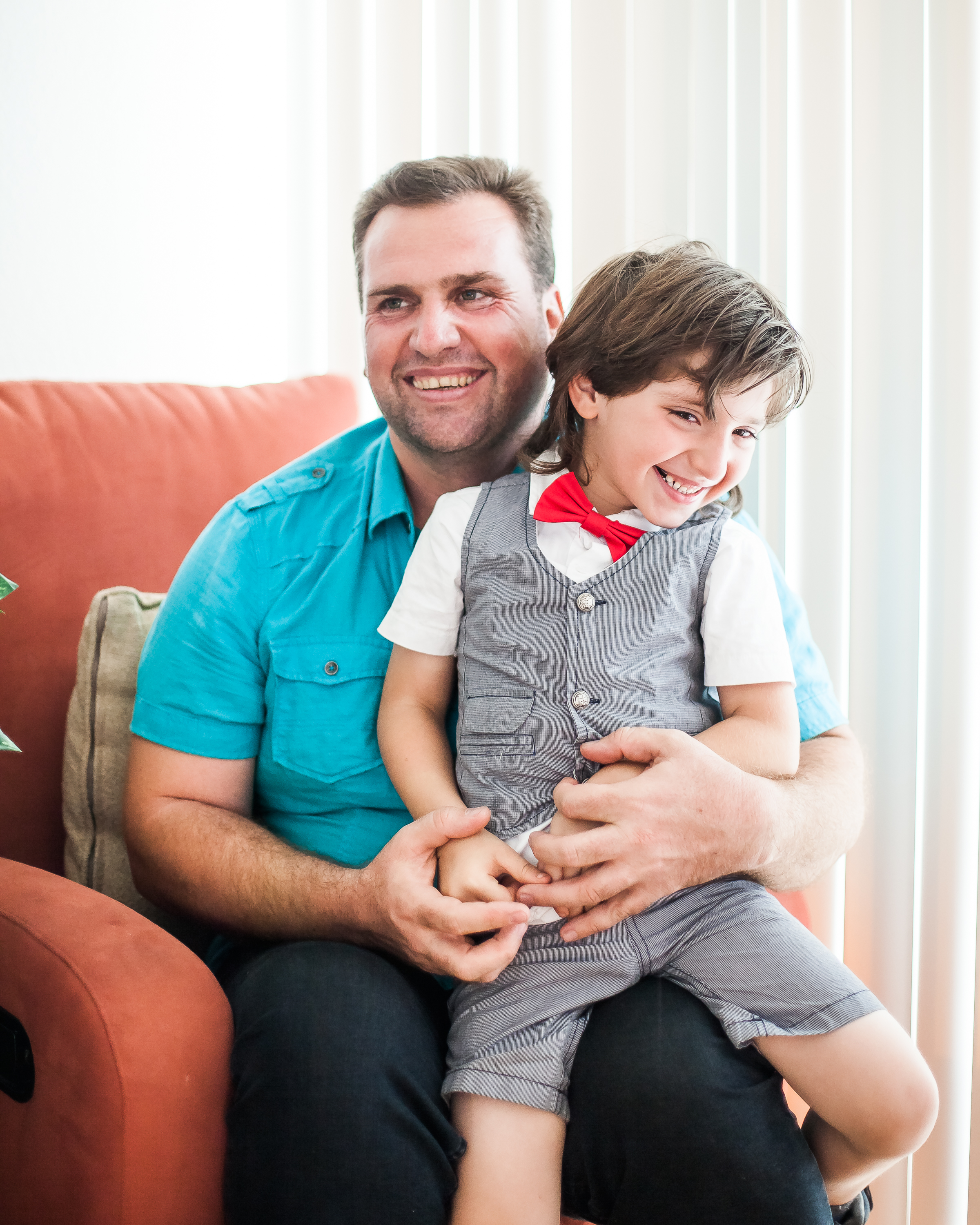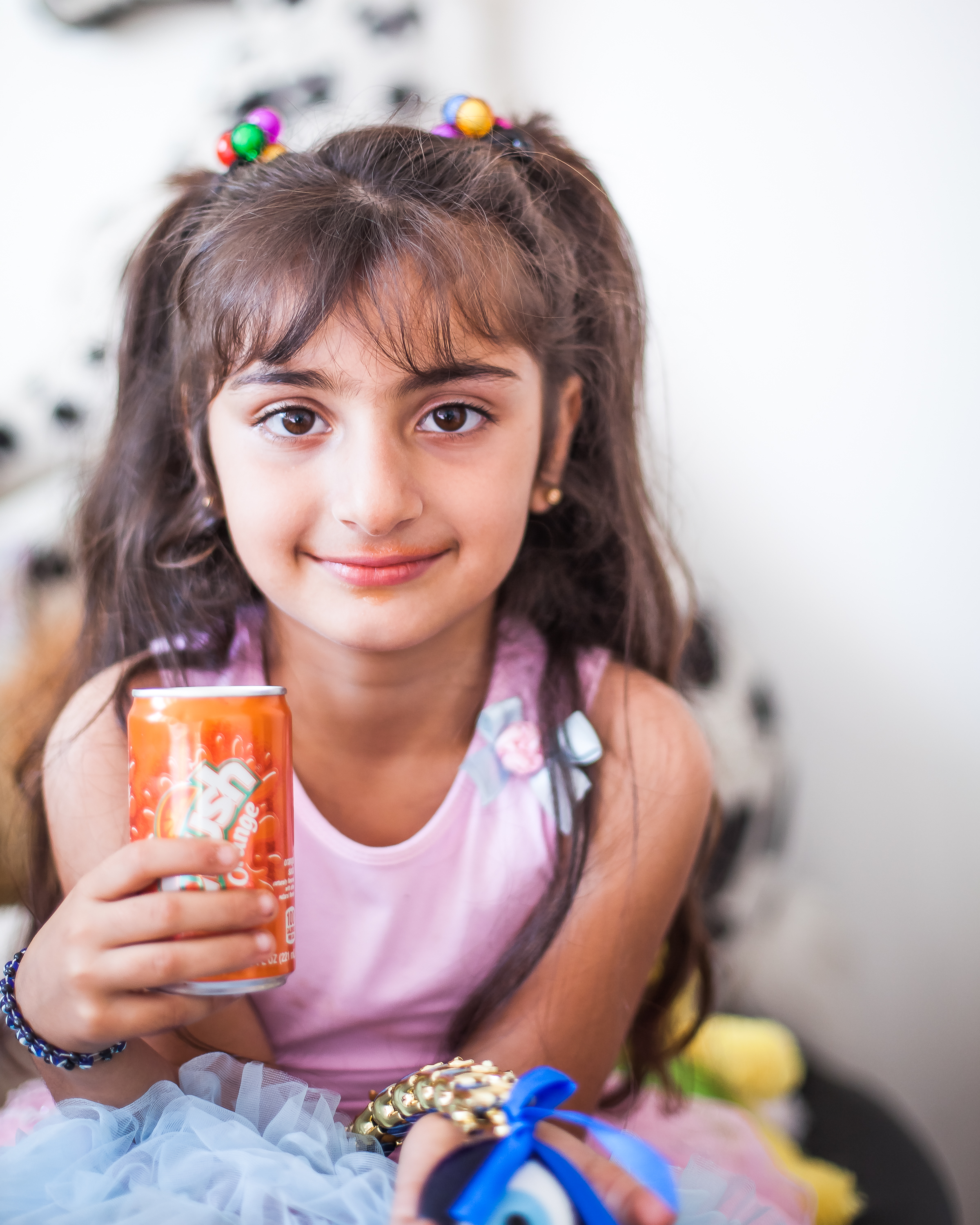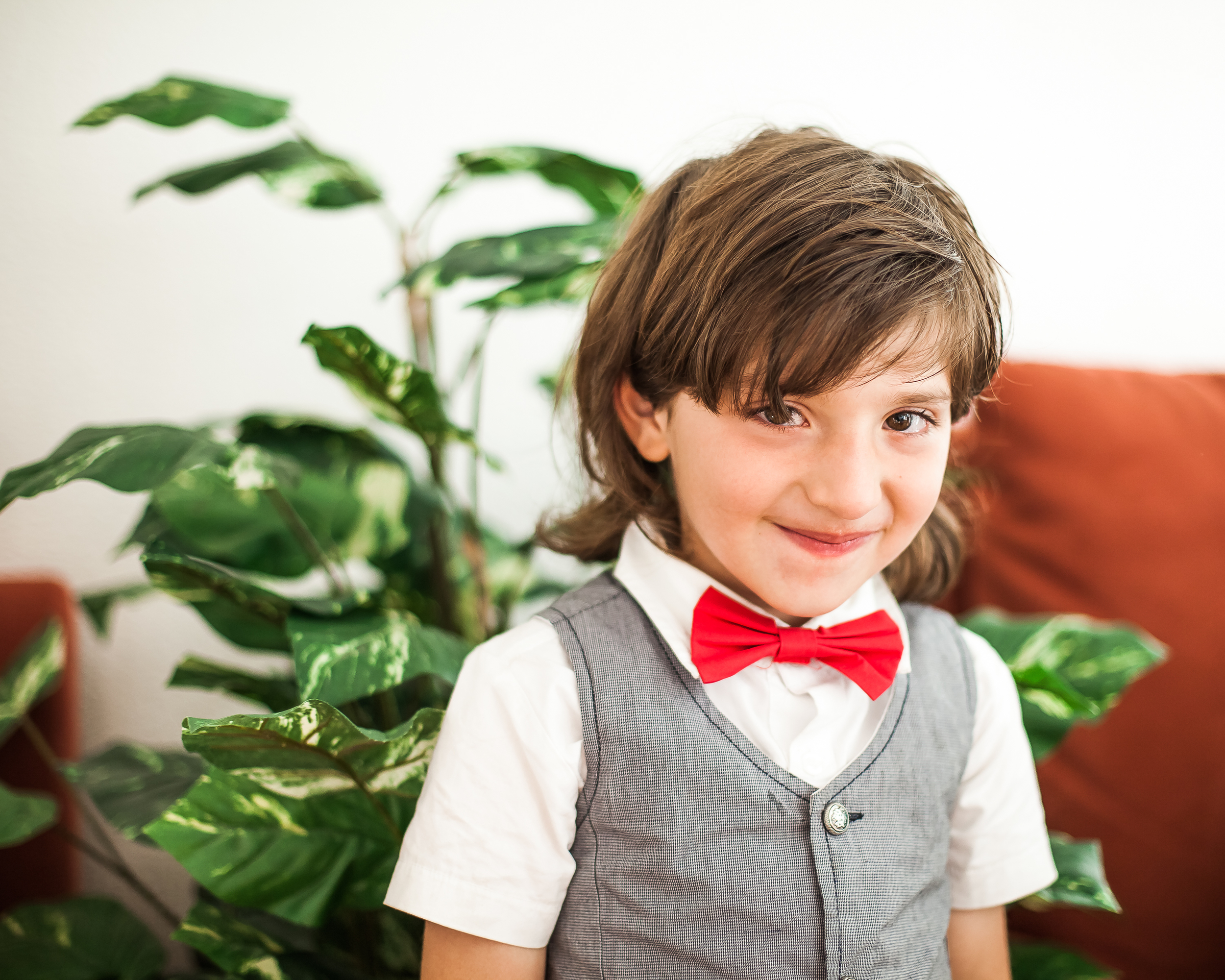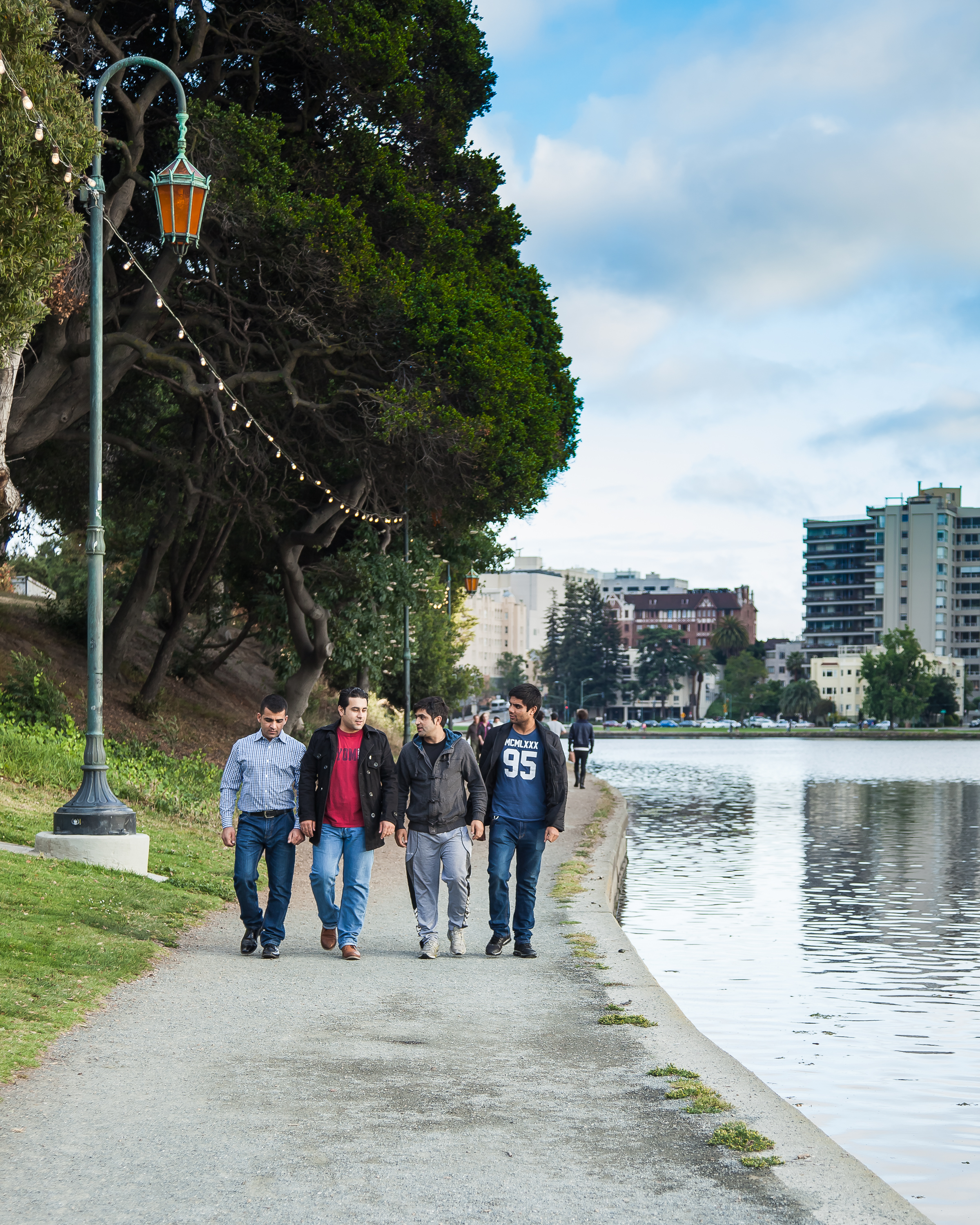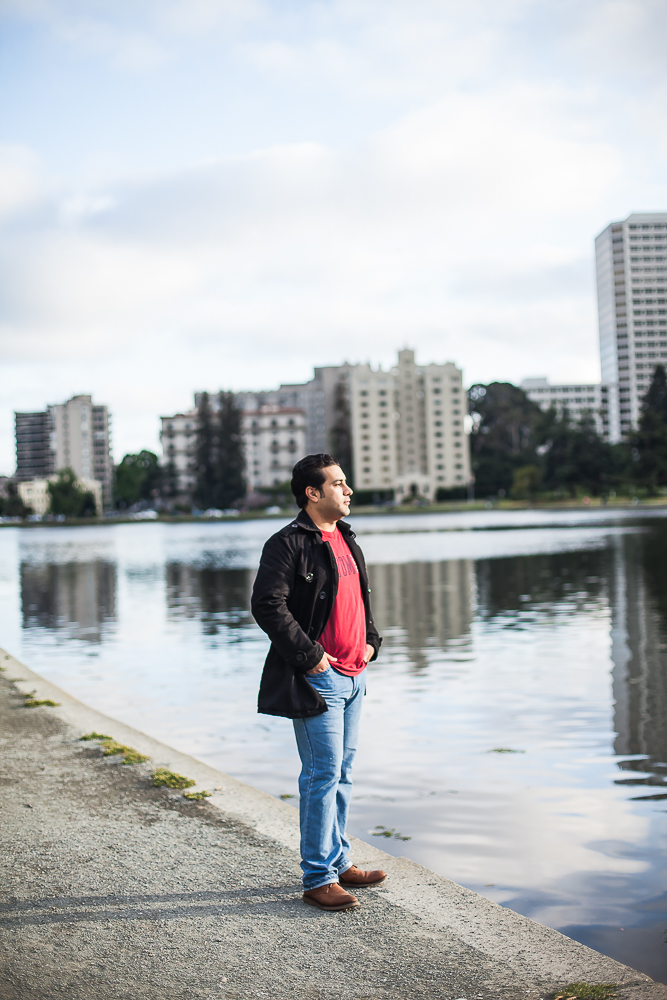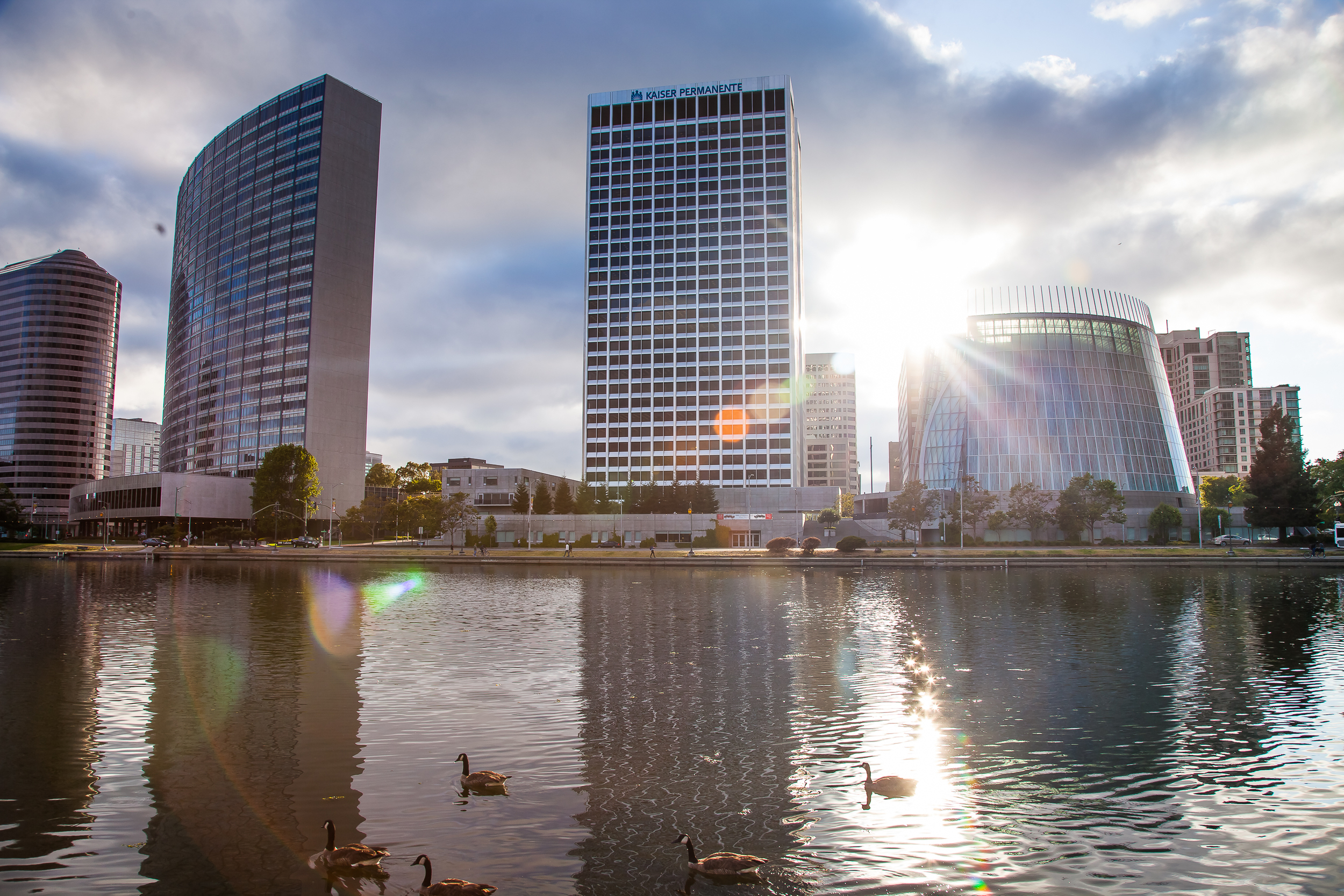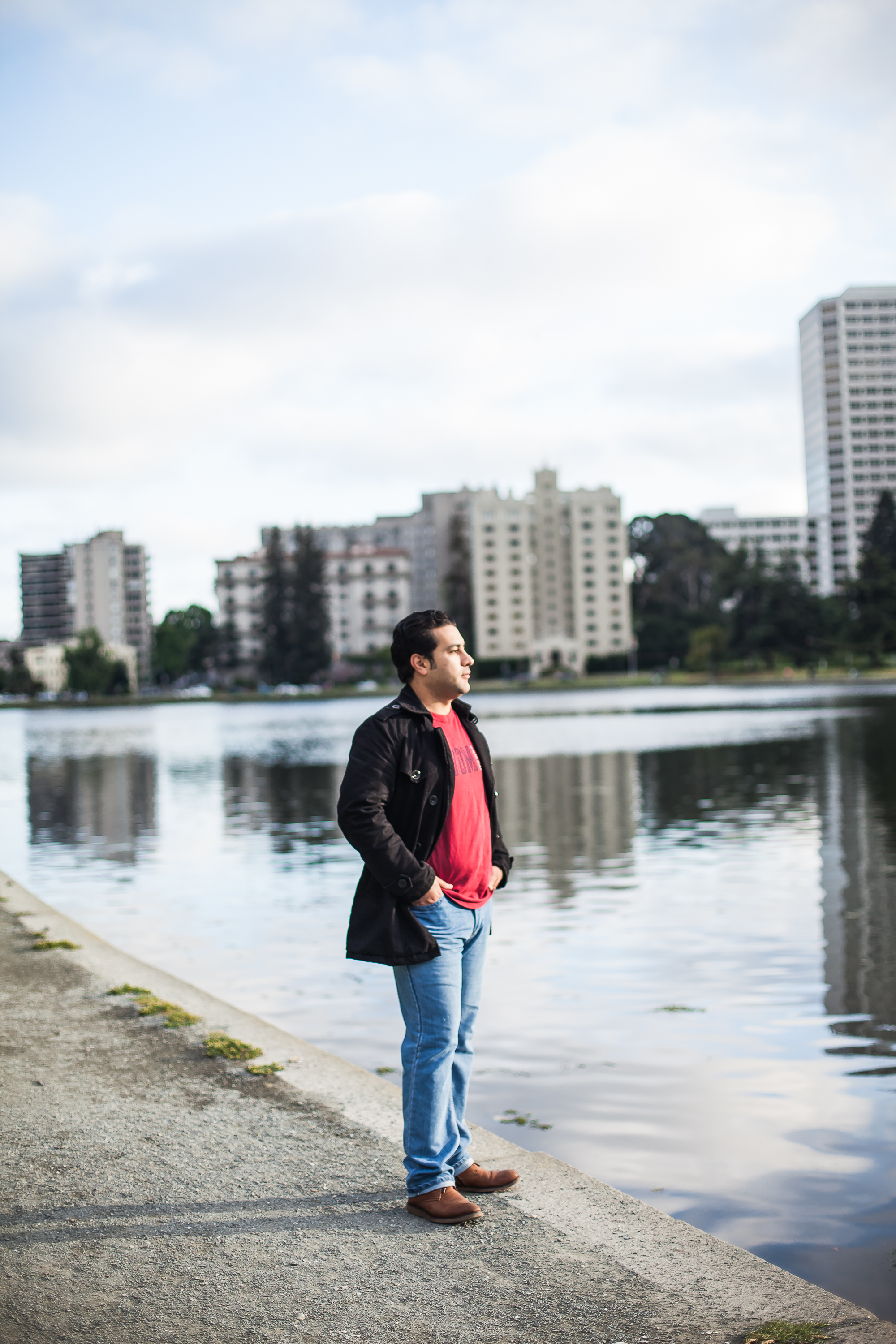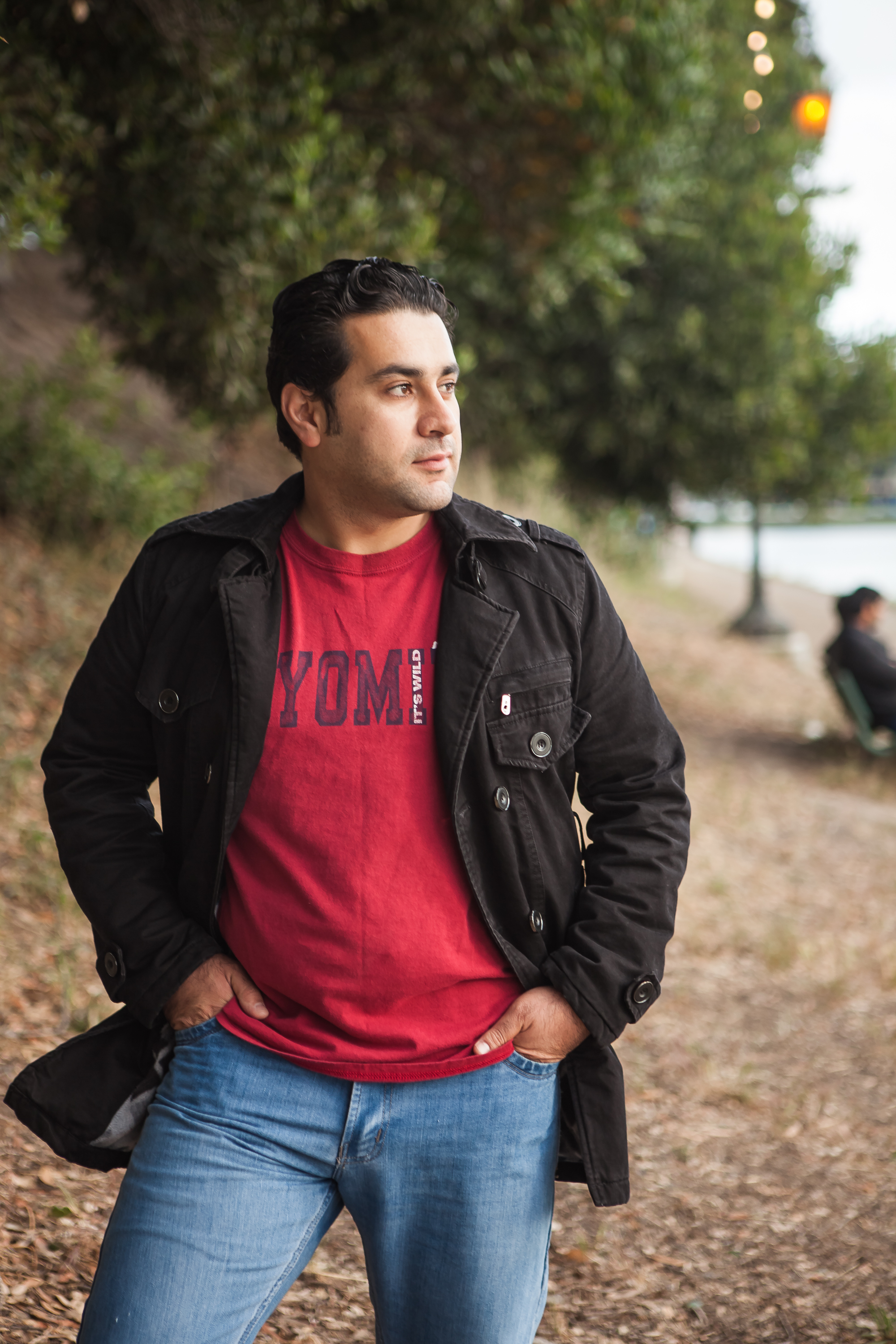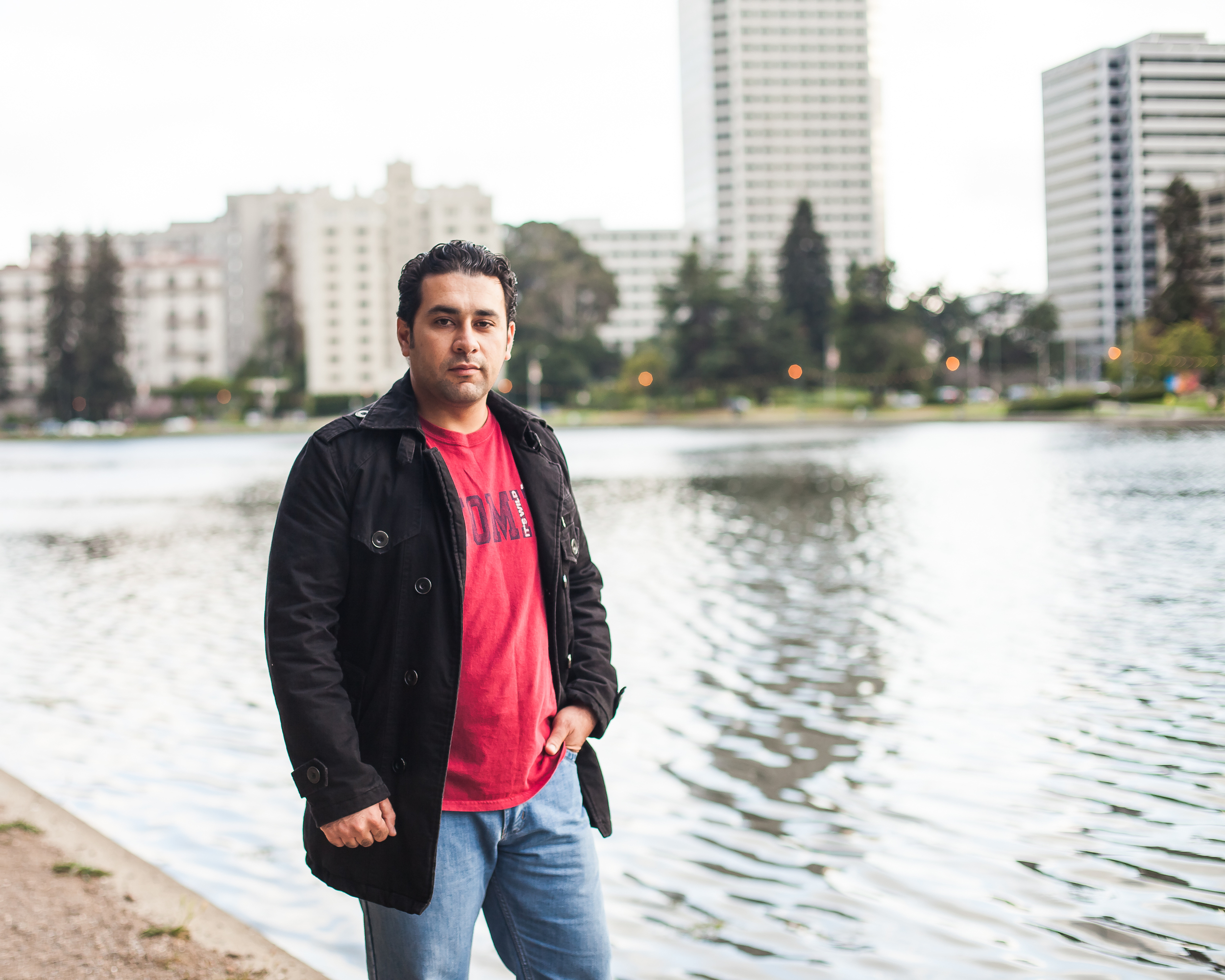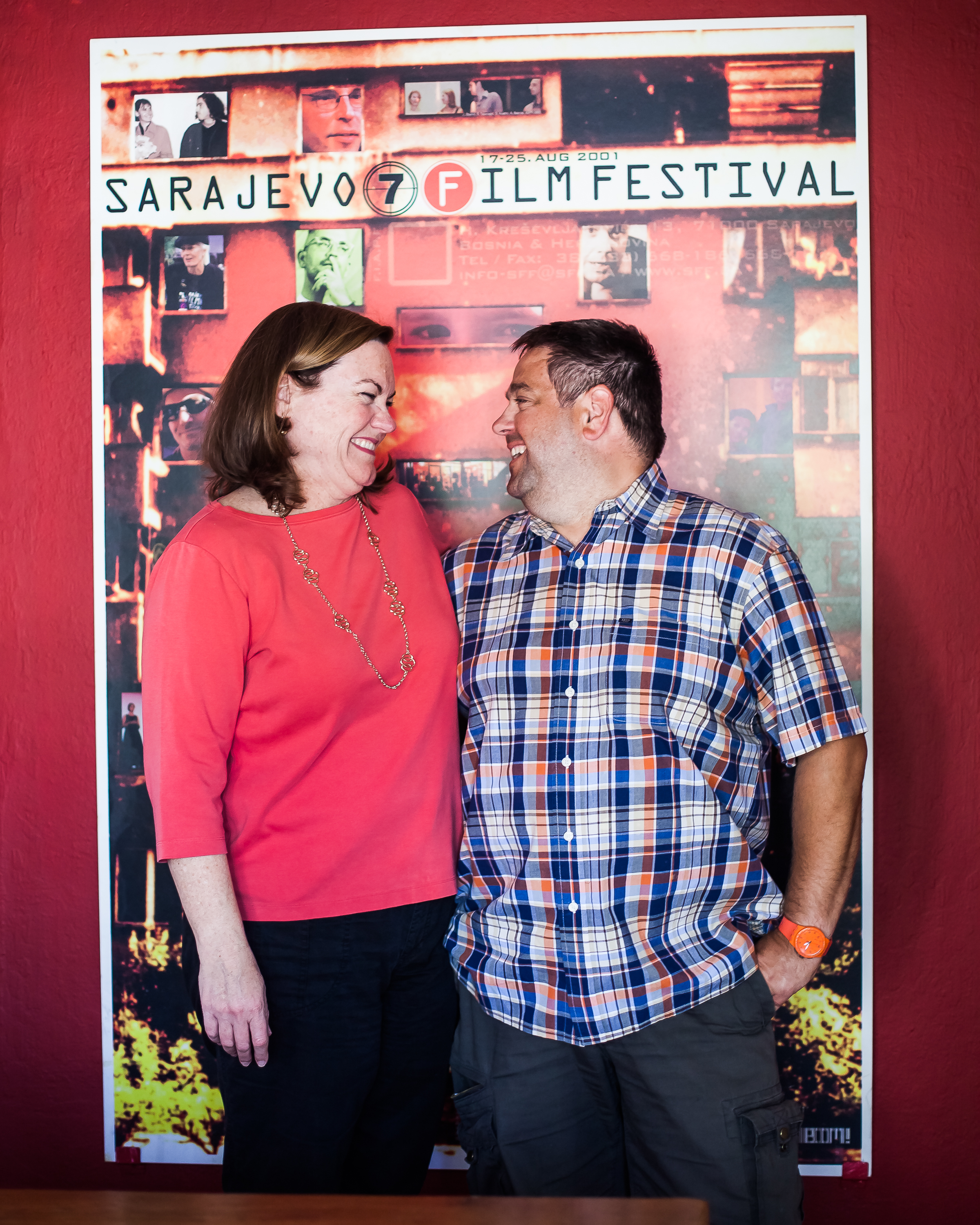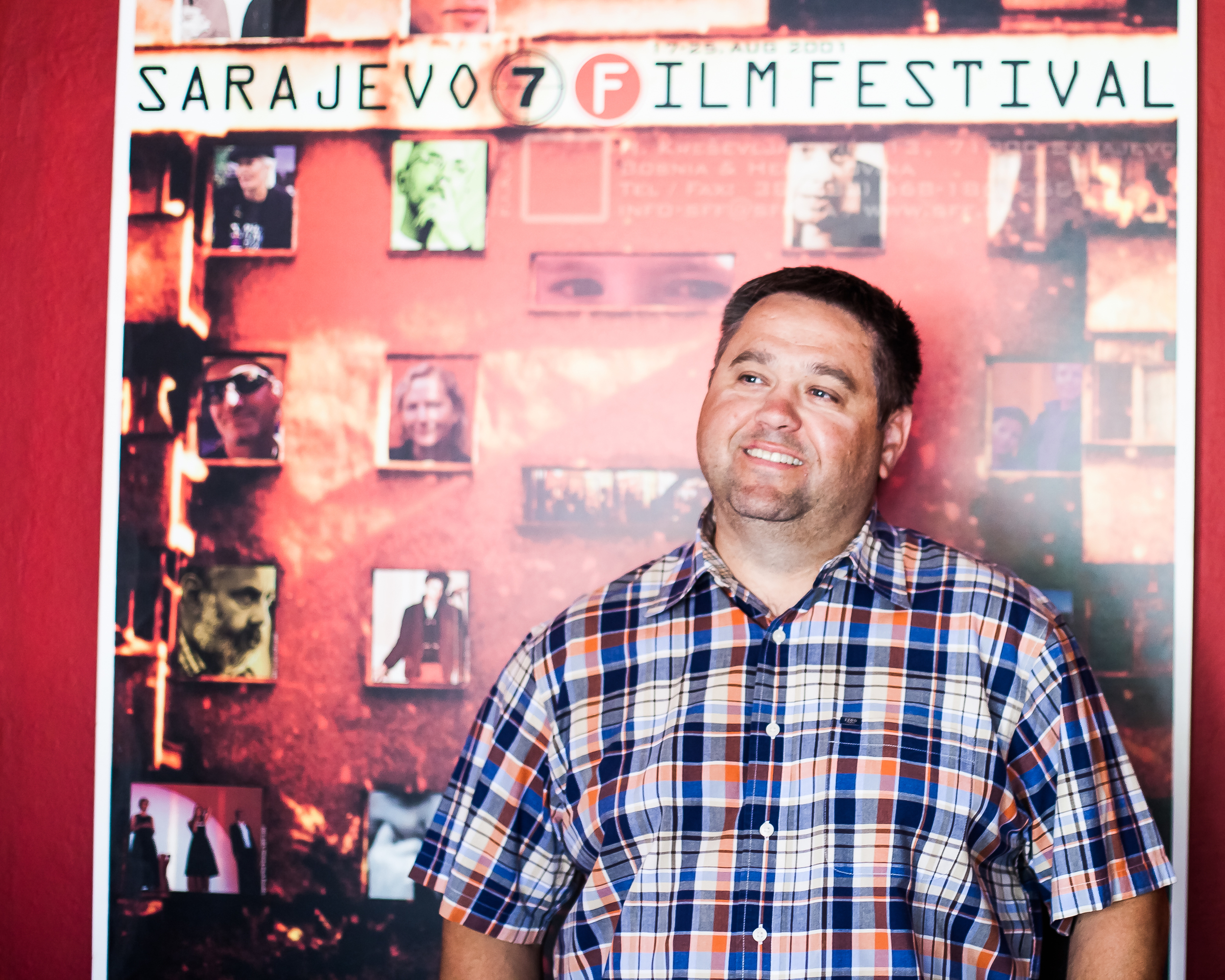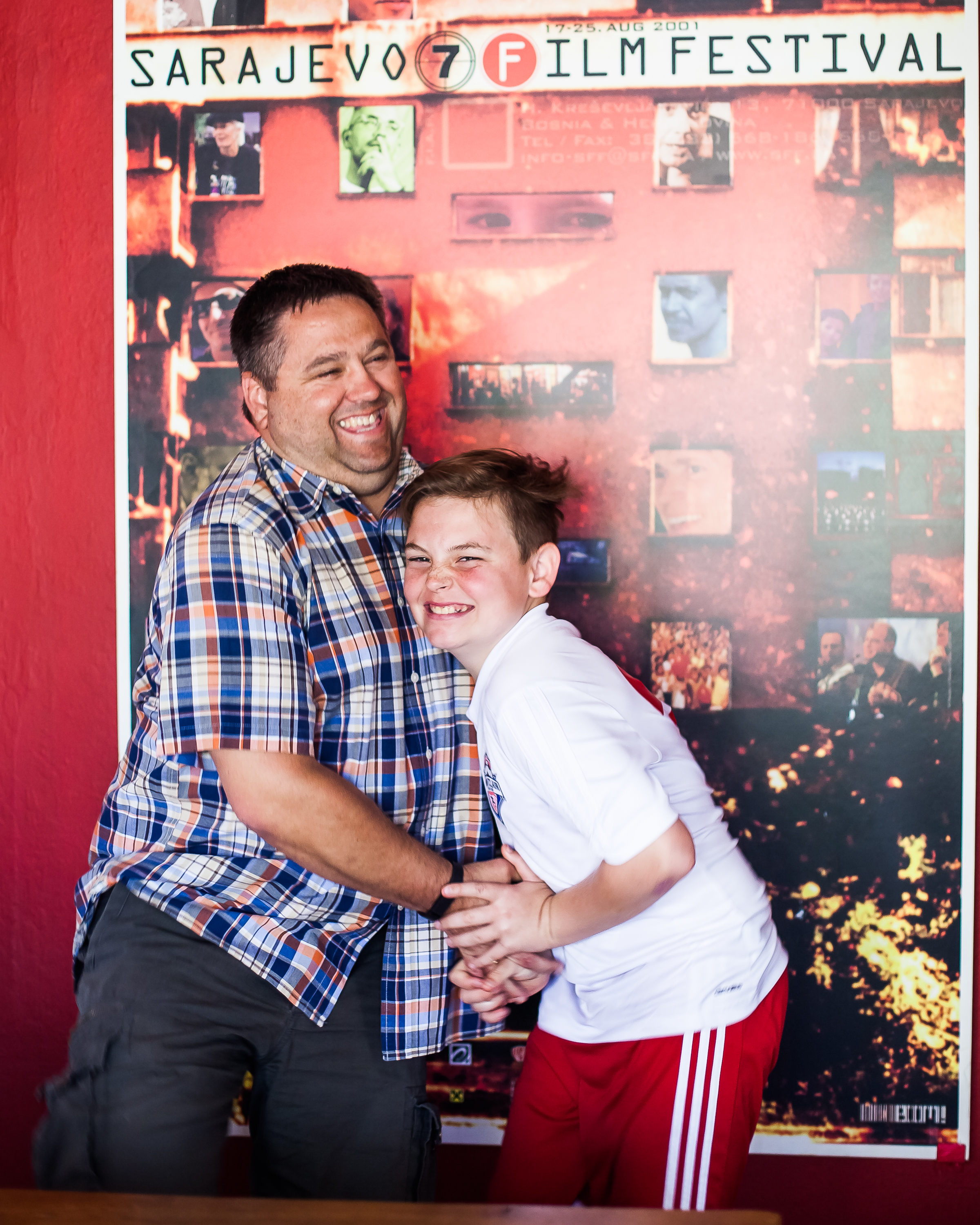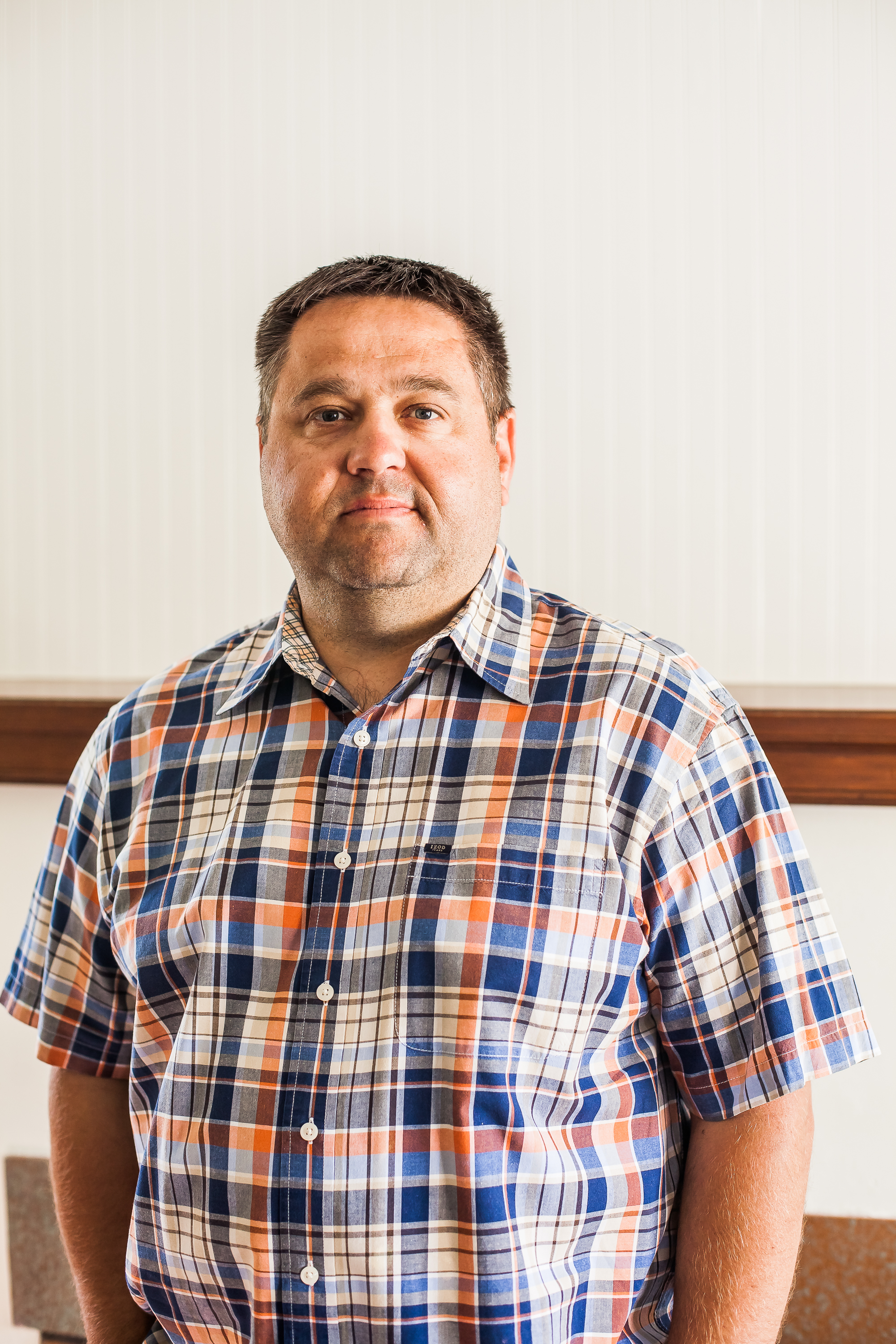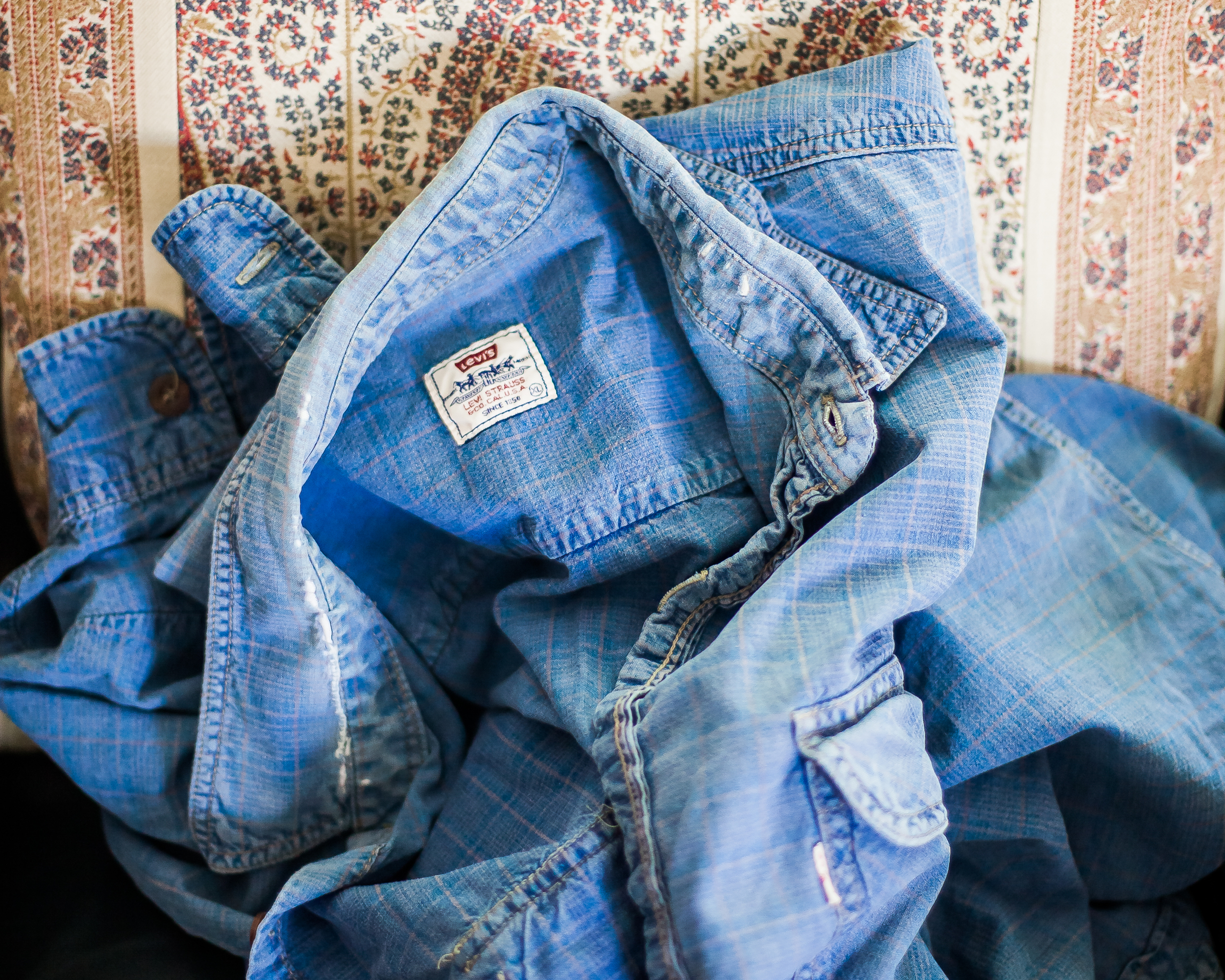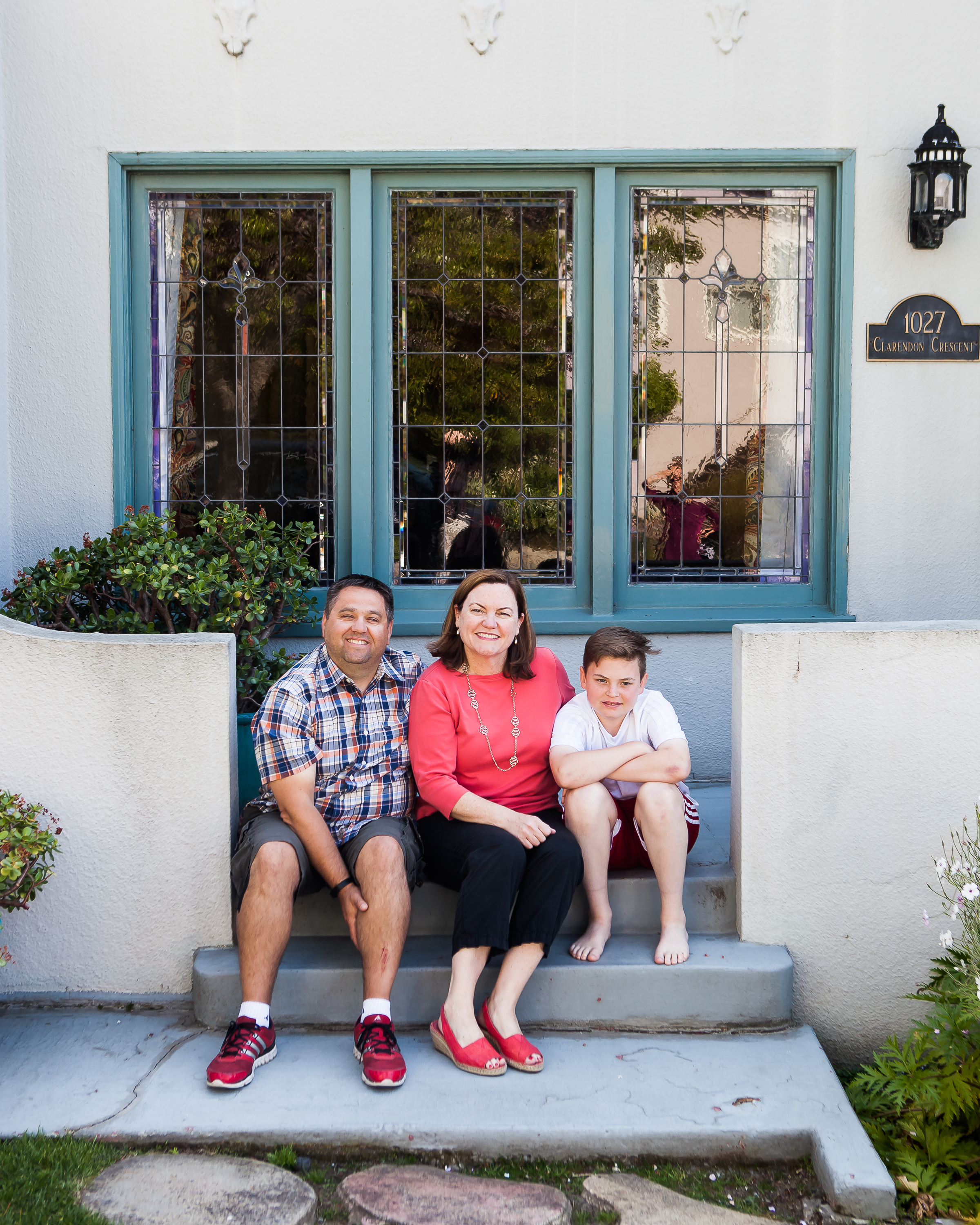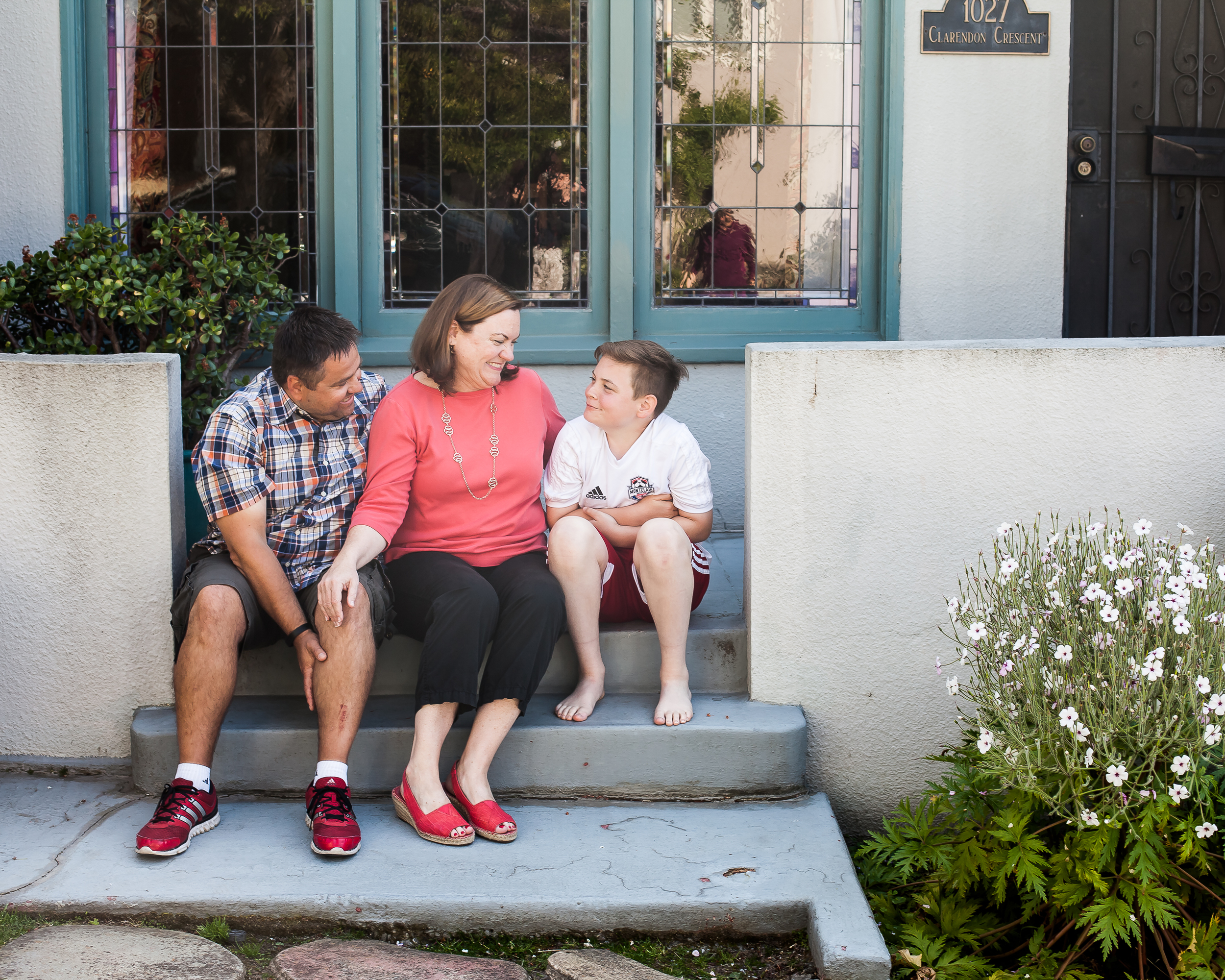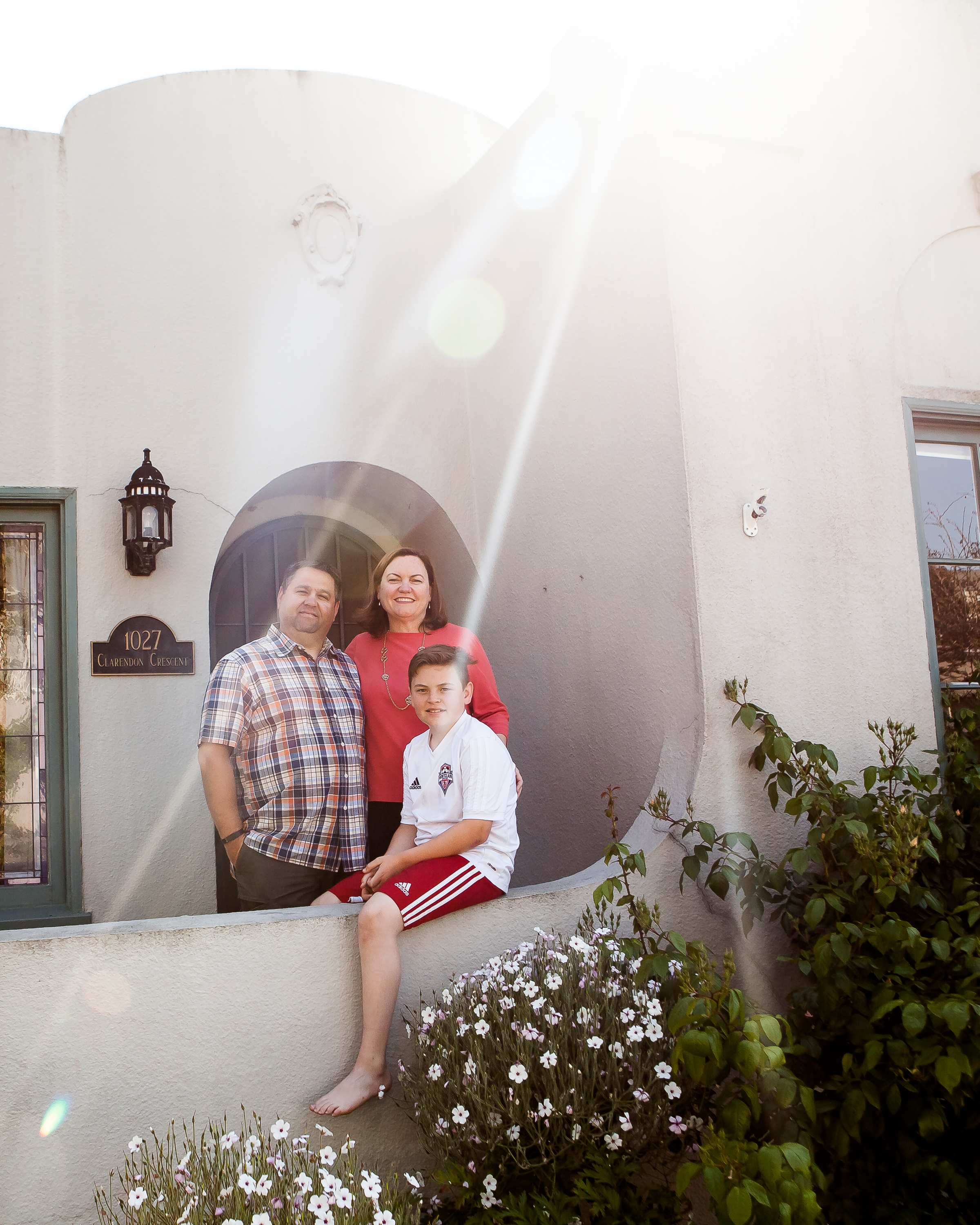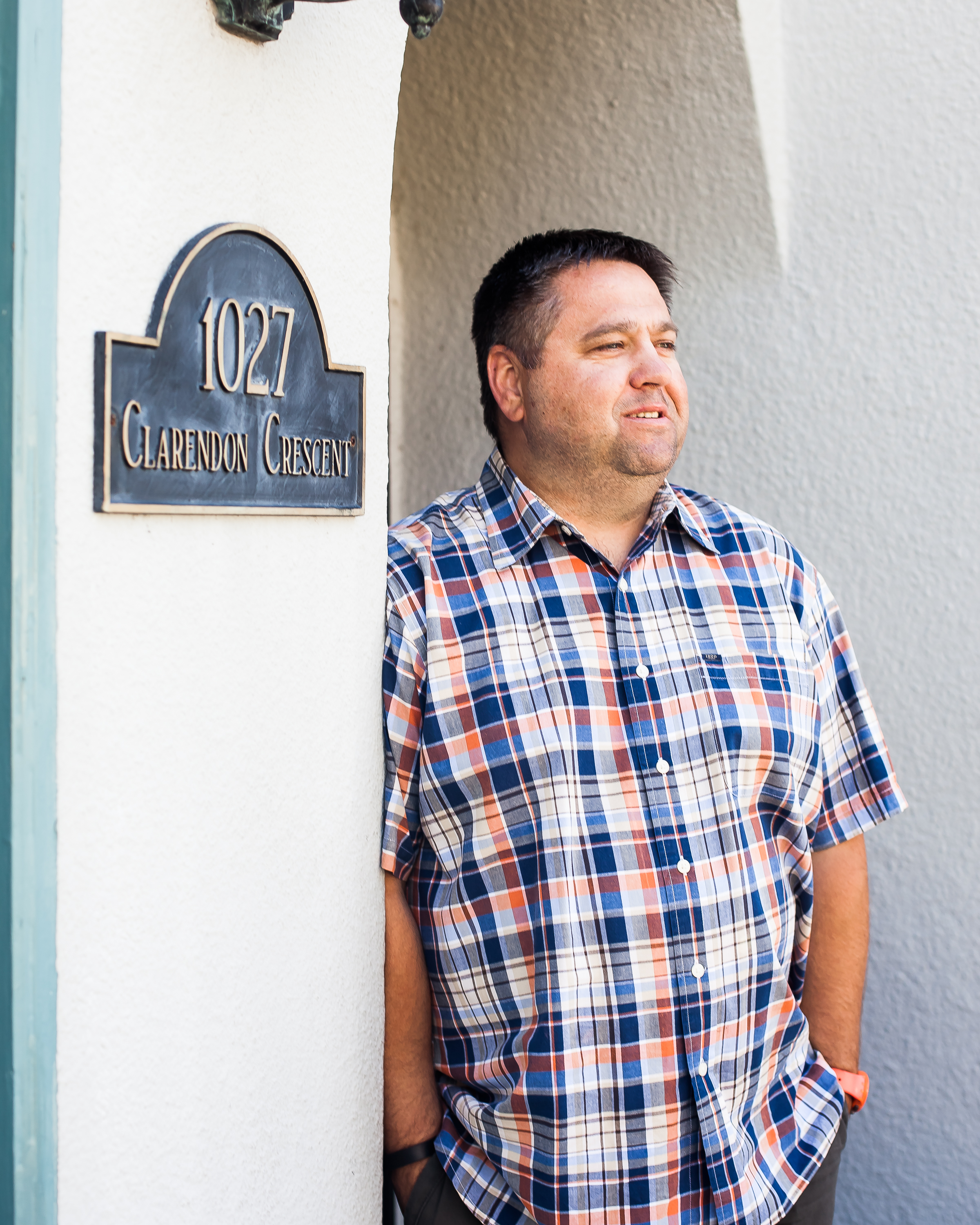The Journey Home Documentary: Refugees in Northern California
I am proud to share the documentary photography project I have been working on for the past year with the IRC (International Rescue Committe). The Journey Home: Refugees in Northern California features six stories of refugees and asylees served by the IRC since 1975. Each individual or family originates from a different country plagued by a humanitarian crisis: Afghanistan, Bosnia, Burma, Iraq, Nigeria, and Vietnam. Though each testimony is unique, they share a common experience of fleeing danger and certainty for safety and opportunity. I shot this over the last six months in the neighborhoods and homes of the IRC’s clients. This project has been an incredible experience. We are inundated with global news and stories of unrest and catastrophe, so it was a privilege to be able to capture the stories of people who have had the chance to start a new life here in the Bay Area. It’s inspired me to continue partnering with non-profits to spread humanitarian messages through imagery. I want to keep focusing energy on philanthropic photography and spreading vital and important messages to the local and global community through my work. Below is a snippet of each refugee accompanied by their story.
Lieu Thi Dang
Resettled From: Vietnam | Resettled To: San Jose | Resettlement date: November 3, 1980
In the late 1970s Vietnam was, once again, in the midst of some serious turmoil. The official days of the Vietnam War were over, America had left in 1973 but the fighting was on-going. The Communist party was still aggressively pushing its way into power. At the time, I was teaching English at a high school in De Nang. As the violence escalated, it became more and more clear that I would have to leave. I secured a spot on a private boat bound for Malaysia. It was crammed with 200 others fleeing the mayhem, and the journey, four days and five nights, will remain forever etched in my memory. Even now, I still remember every detail. Years later on a cruise ship, I could hardly sleep; the gentle rocking took me right back to that cramped boat leaving the only home I had ever known. When I arrived in Malaysia, I lived in a camp with many others like me - refugees fleeing chaos. While I had not officially been named a refugee during the war, being a displaced person was a life that was familiar to me. Knowing how to maneuver this life in limbo, along with my English proficiency, I quickly became an aide at the camp, working as an interpreter between the refugees and the organizations in charge. After just four months in the camp, I was given word that I had been approved for refugee status and offered safe have in America. I arrived in San Jose in 1980, and just a week later, I began a job at the IRC. I once again employed my language skills as an interpreter for the hundreds other Vietnamese-speaking refugees who settled here. As I learned, I also began supporting other refugees from Laos and Cambodia, all of us working to make a new life, a new home, in a place safe from violence. As the crisis in Southeast Asia subsided, other conflicts arose and the IRC began to welcome refugees from other parts of the world to Northern California. In 1987, I became the director of the San Jose office, a job that I was honored to do for ten years.
Now, I have traveled the world as an American – from Canada to France. After retiring, I wentback to Vietnam in 2000 and helped an orphanage recover from overwhelming floods. It was simultaneously overwhelming and calming to be back. But I realized then, that San Jose was my home.I have lived in the same house since I arrived and can’t imagine ever leaving. San Jose has a large, close-knit Vietnamese community. Every morning, my cousin and I take a walk around the nearby park and then have tea at my favorite Vietnamese restaurant. I have stayed in touch with relatives in Vietnam over the years, but will probably not return again. I am proud of the good I’ve been able to accomplish and am at peace to enjoy the rest of my life here, as an American – a Californian.
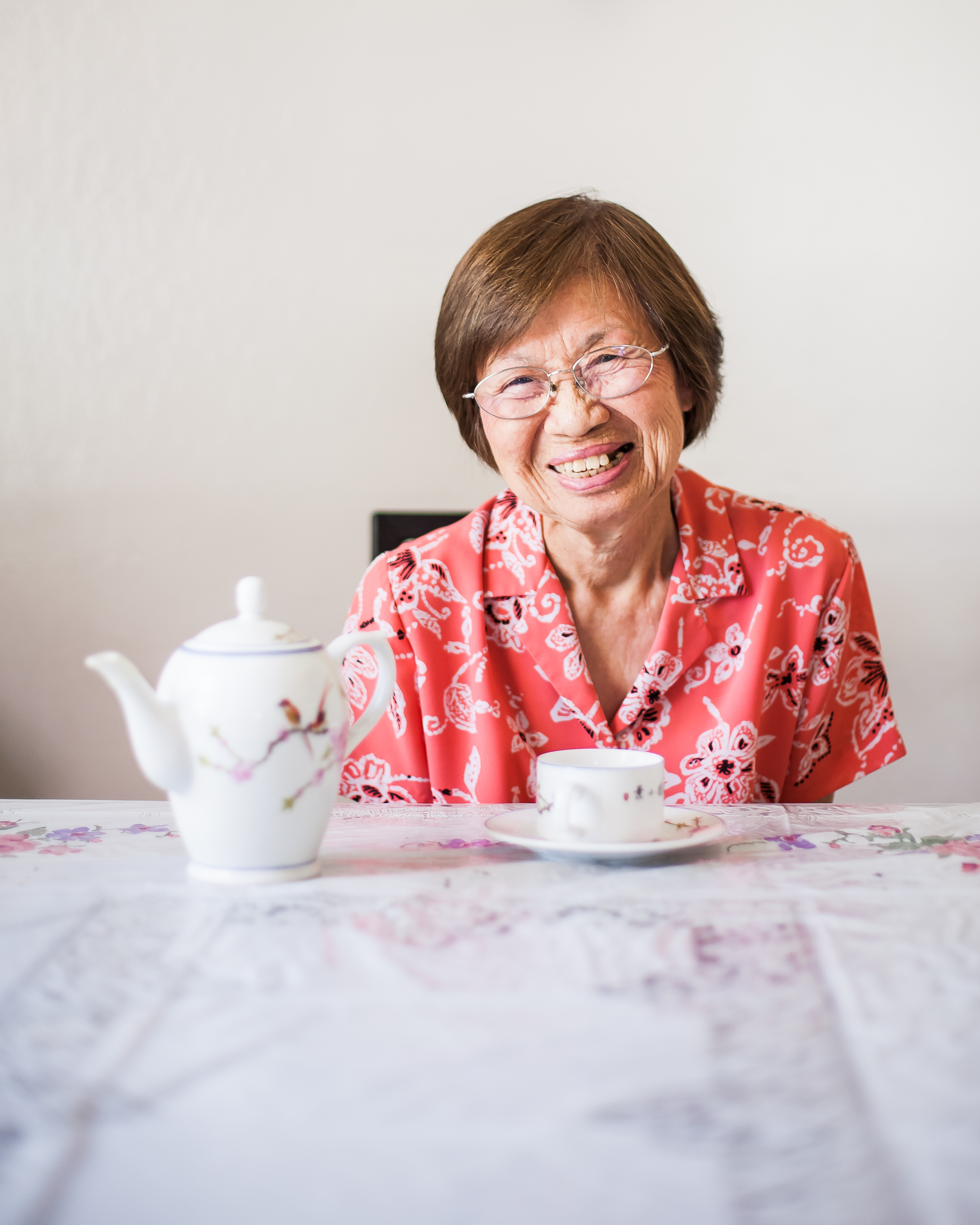
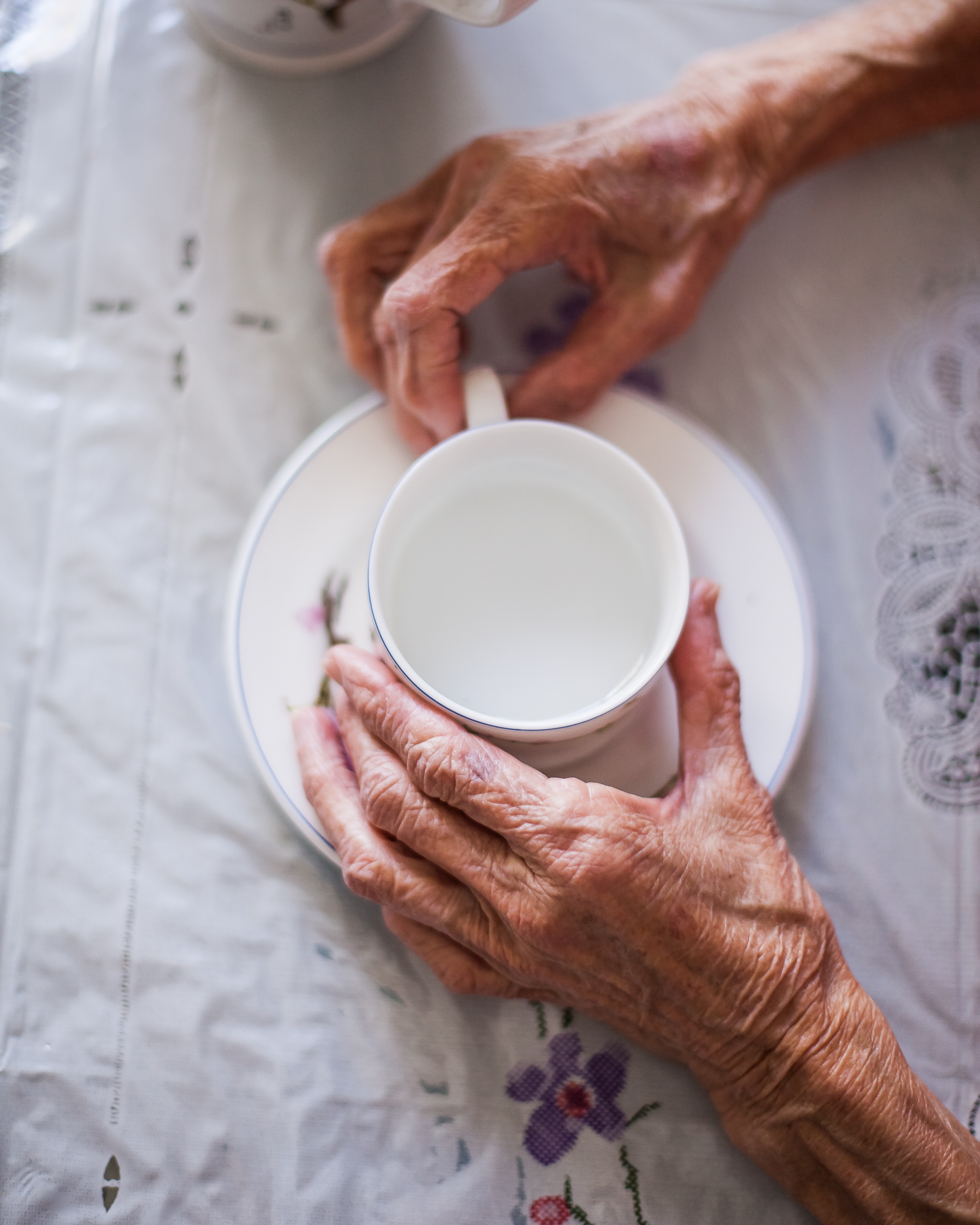
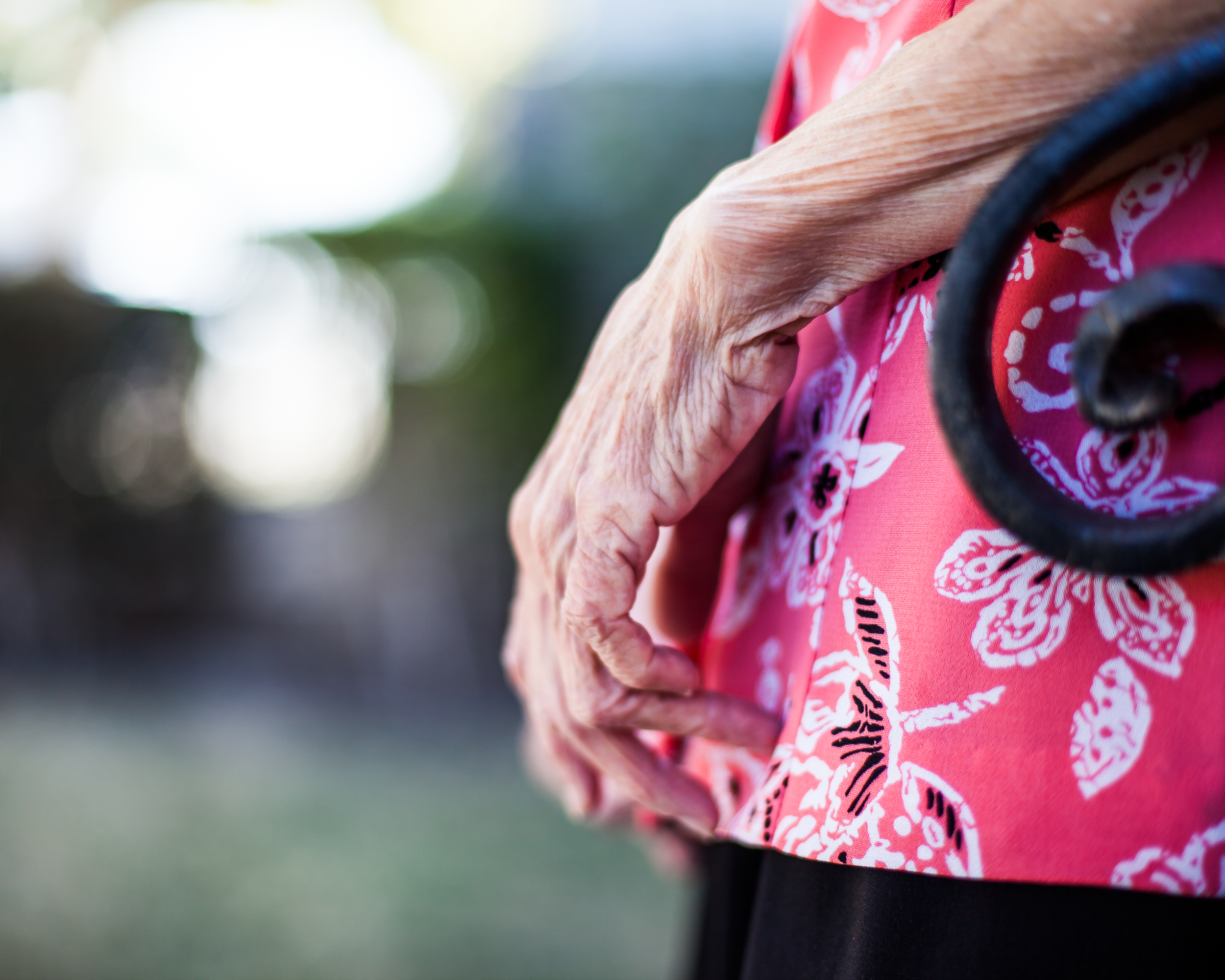
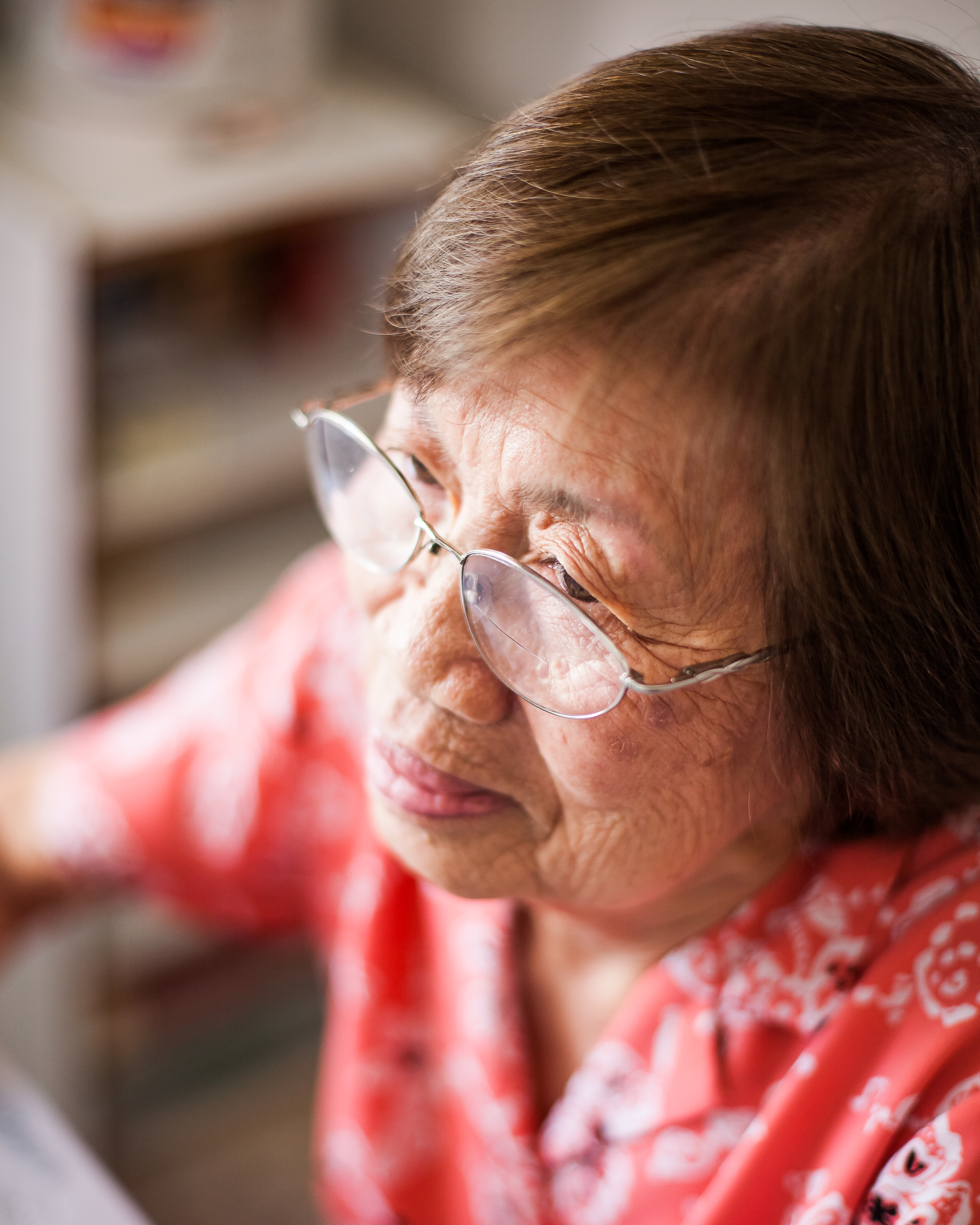
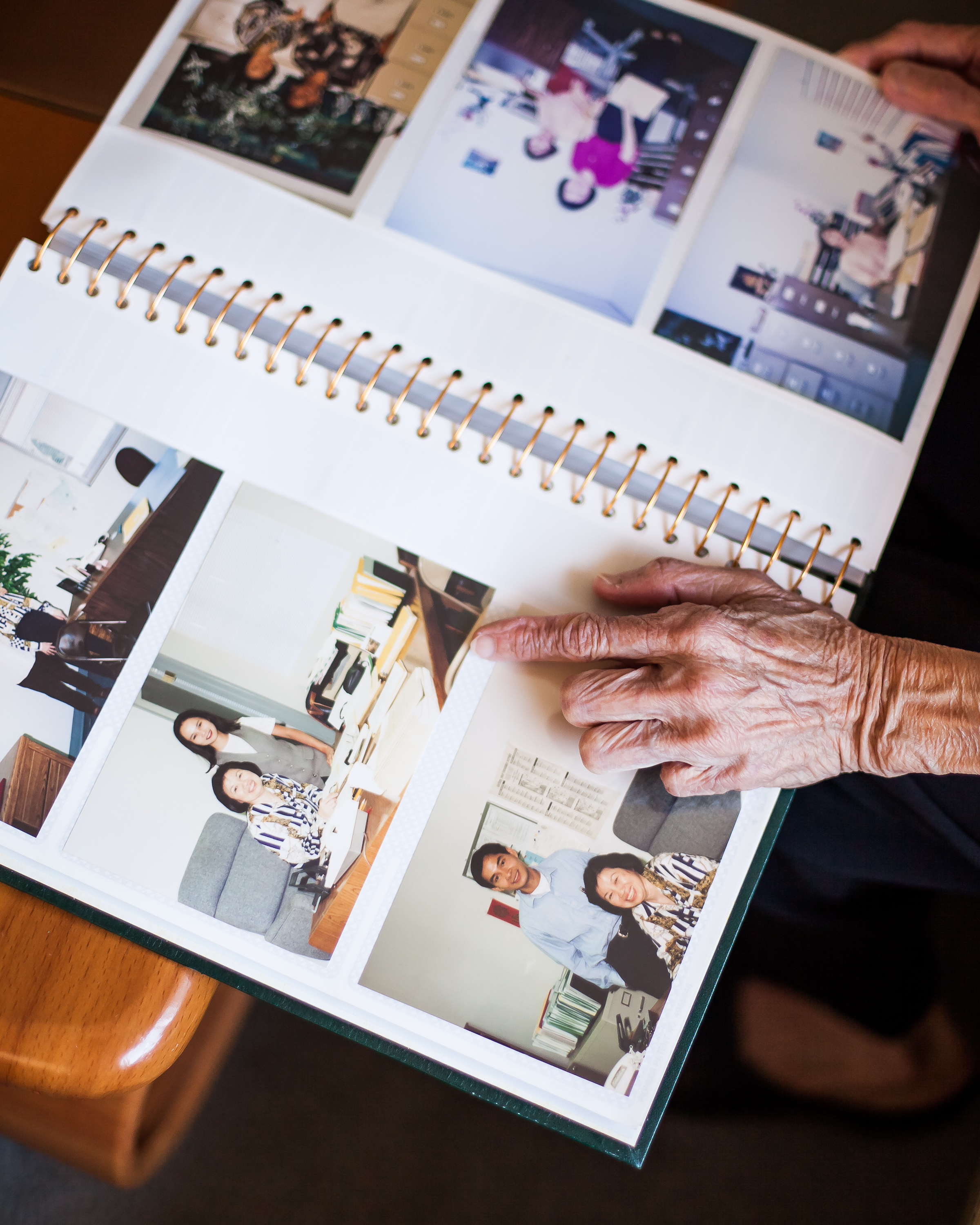
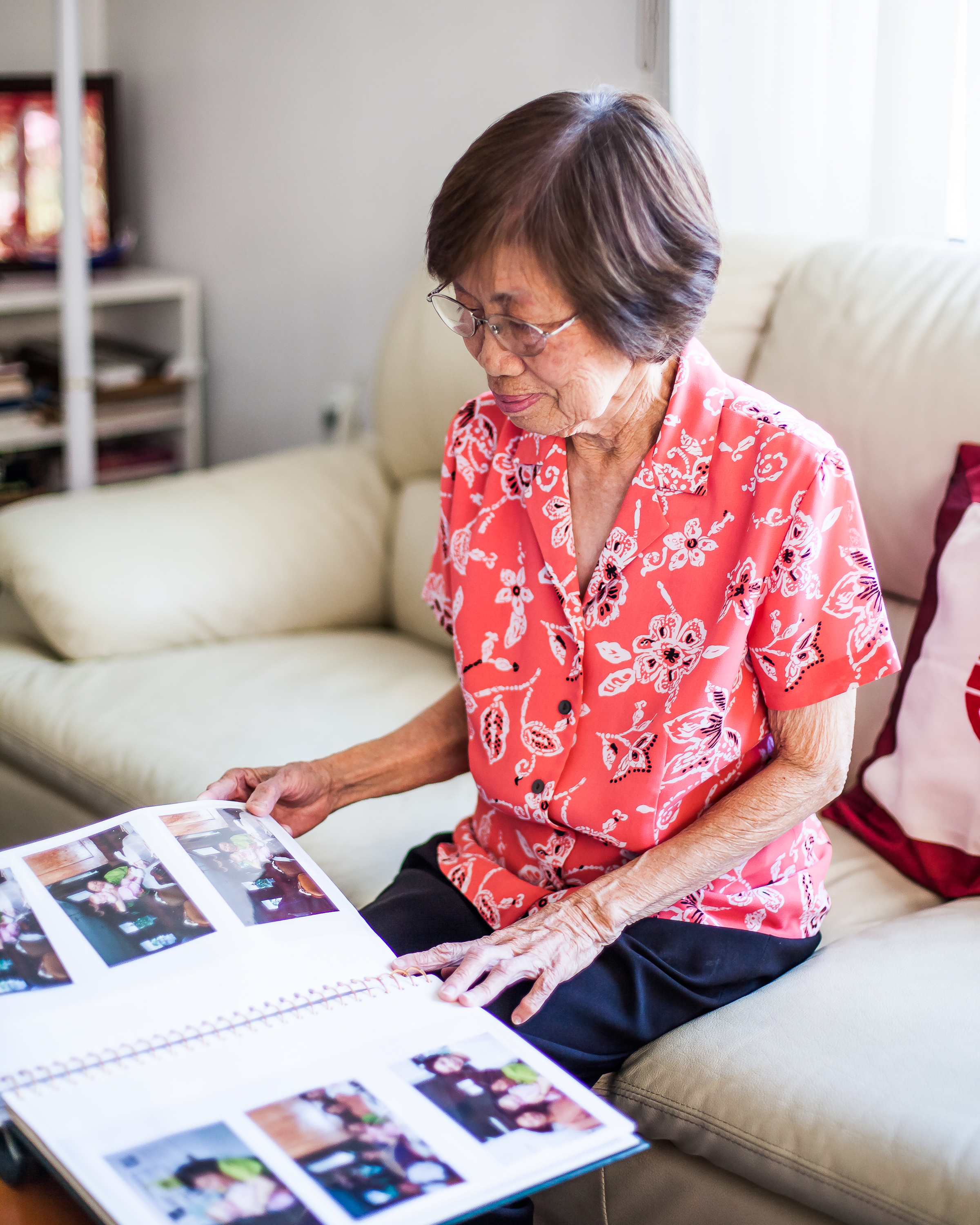
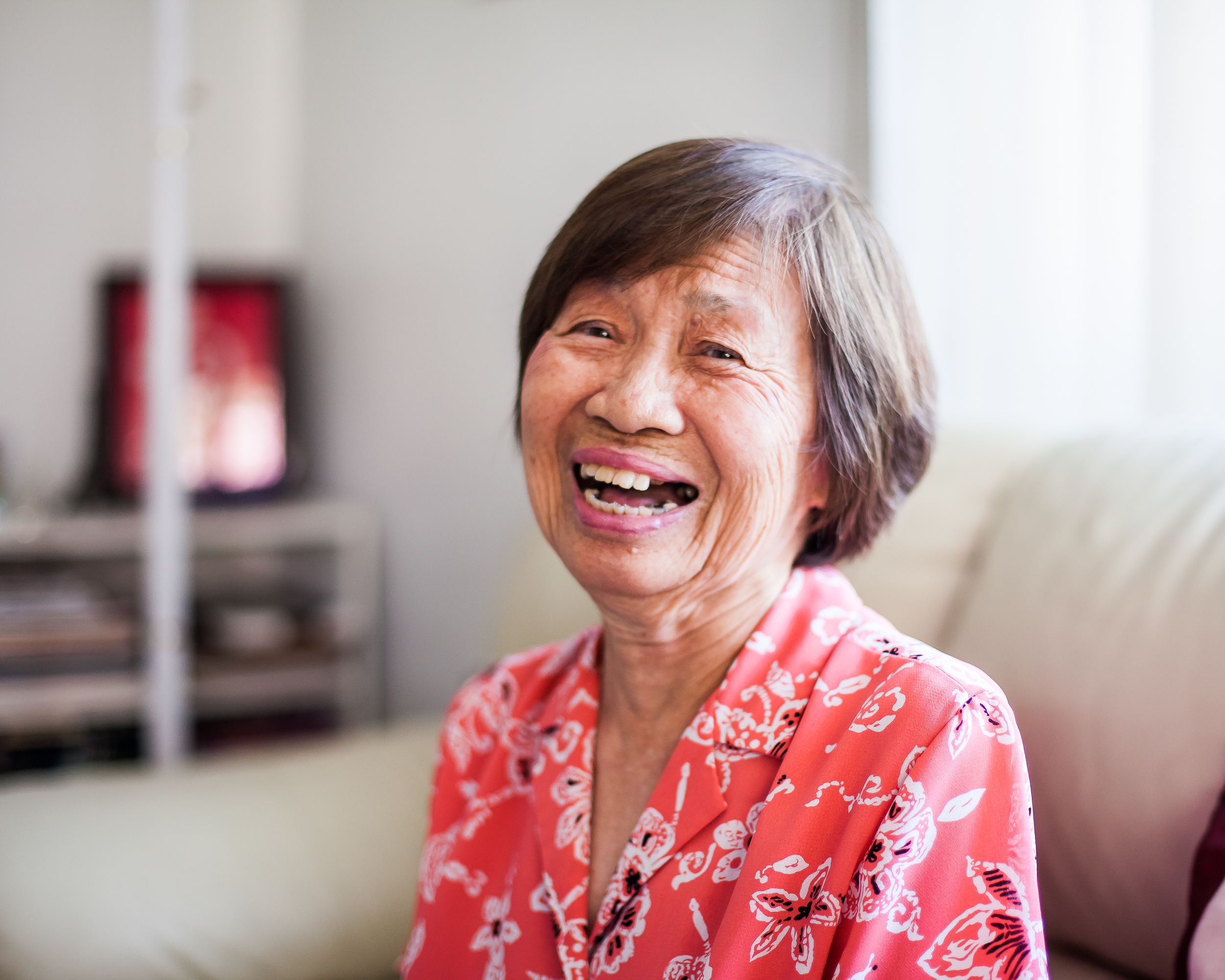
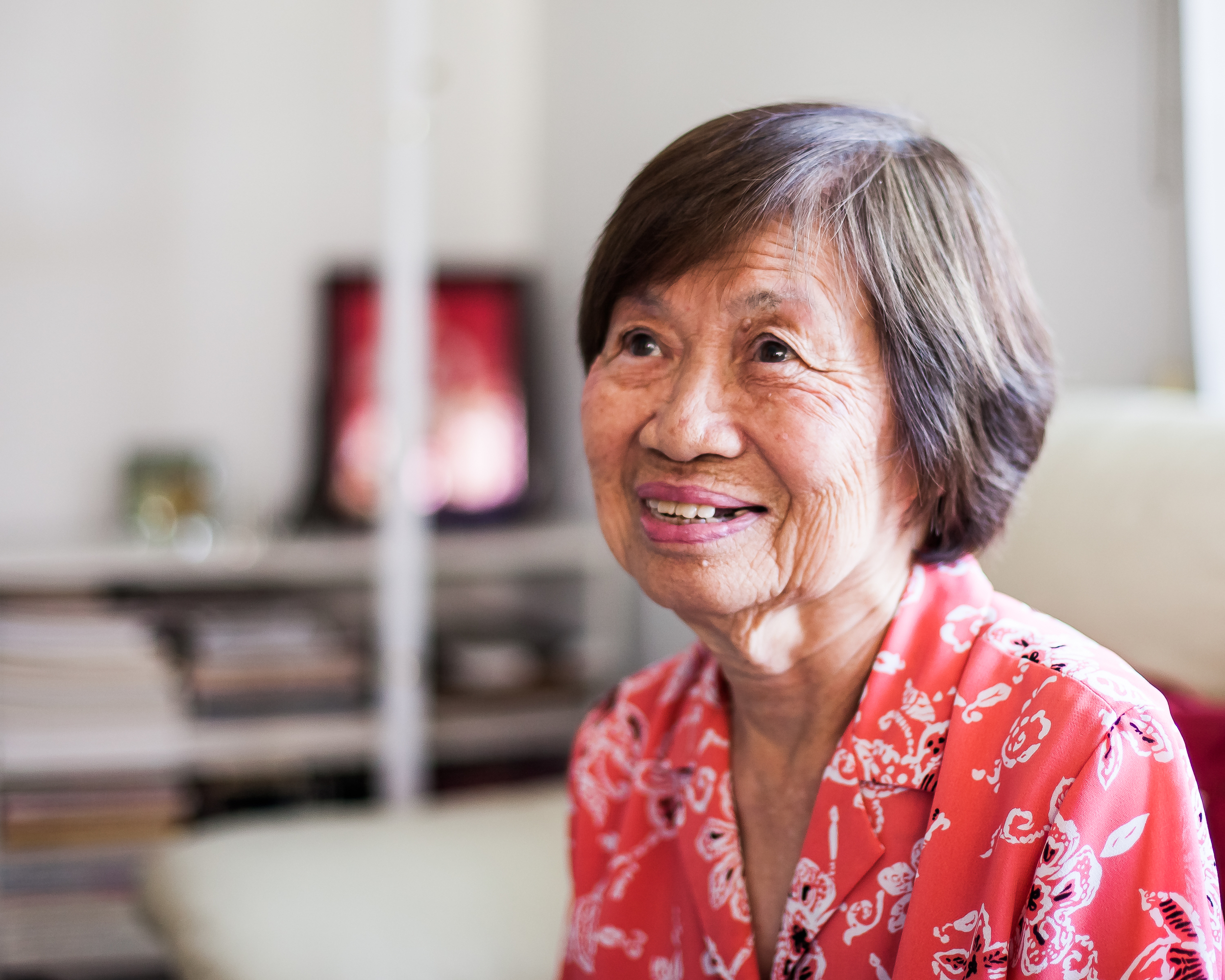
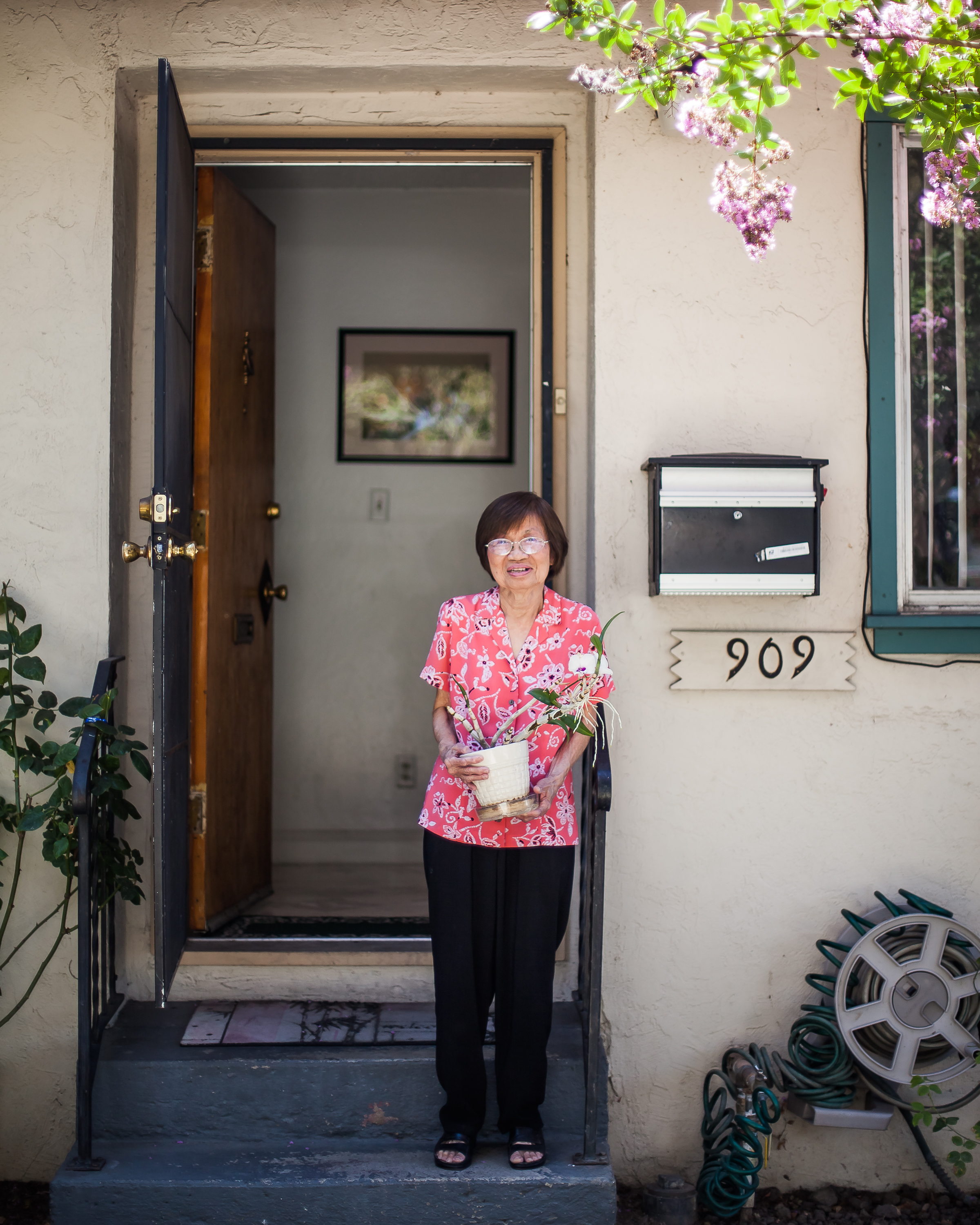
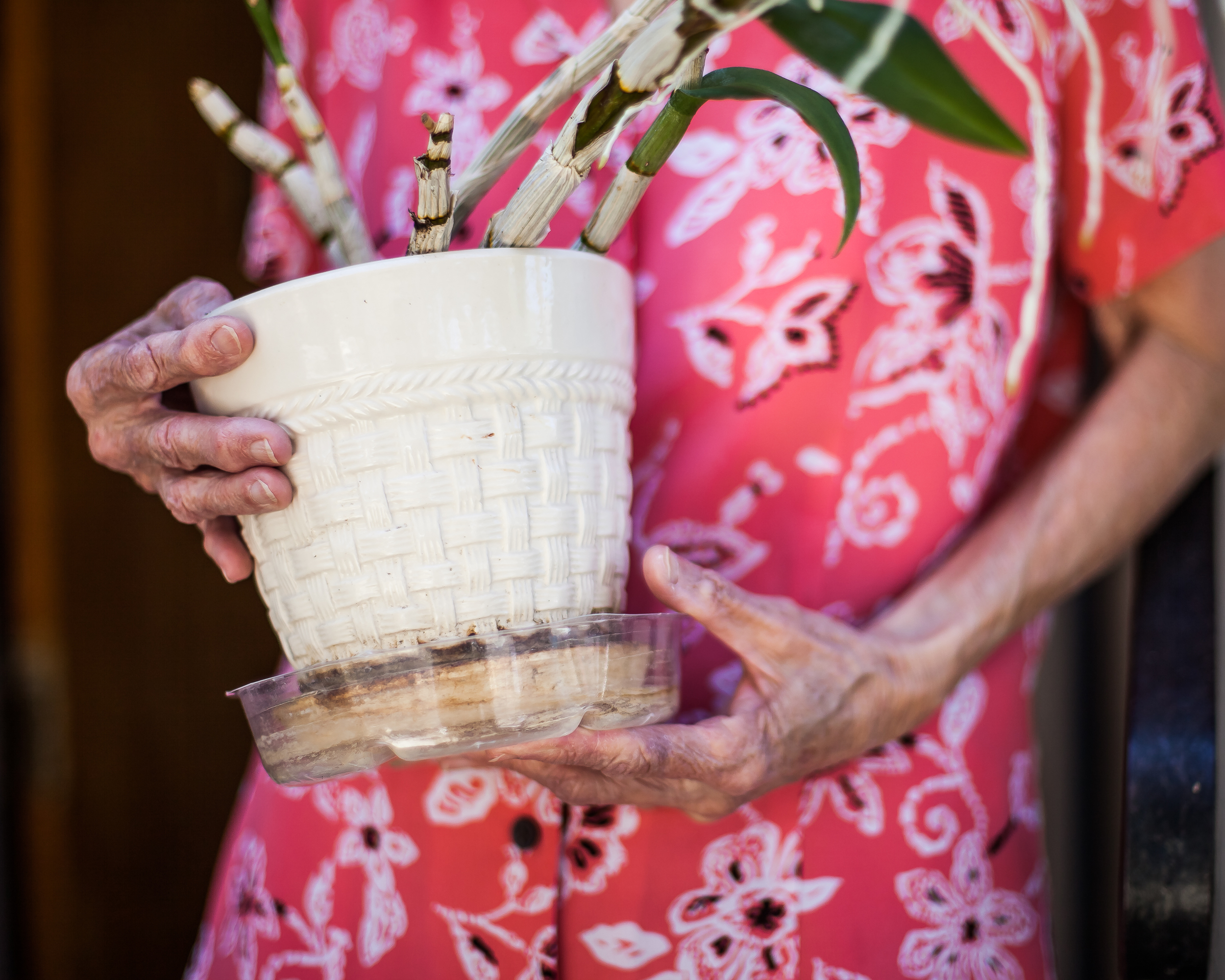
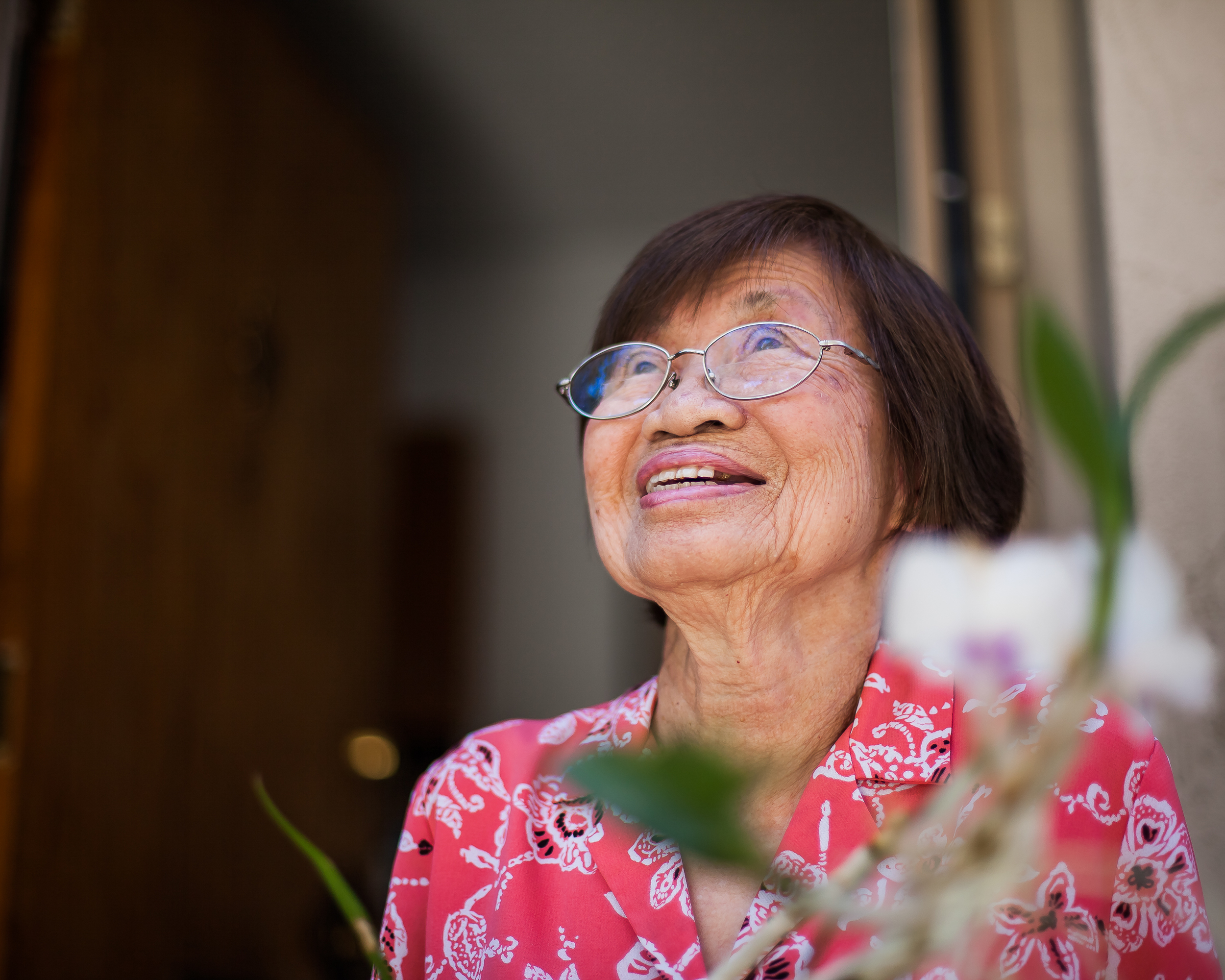
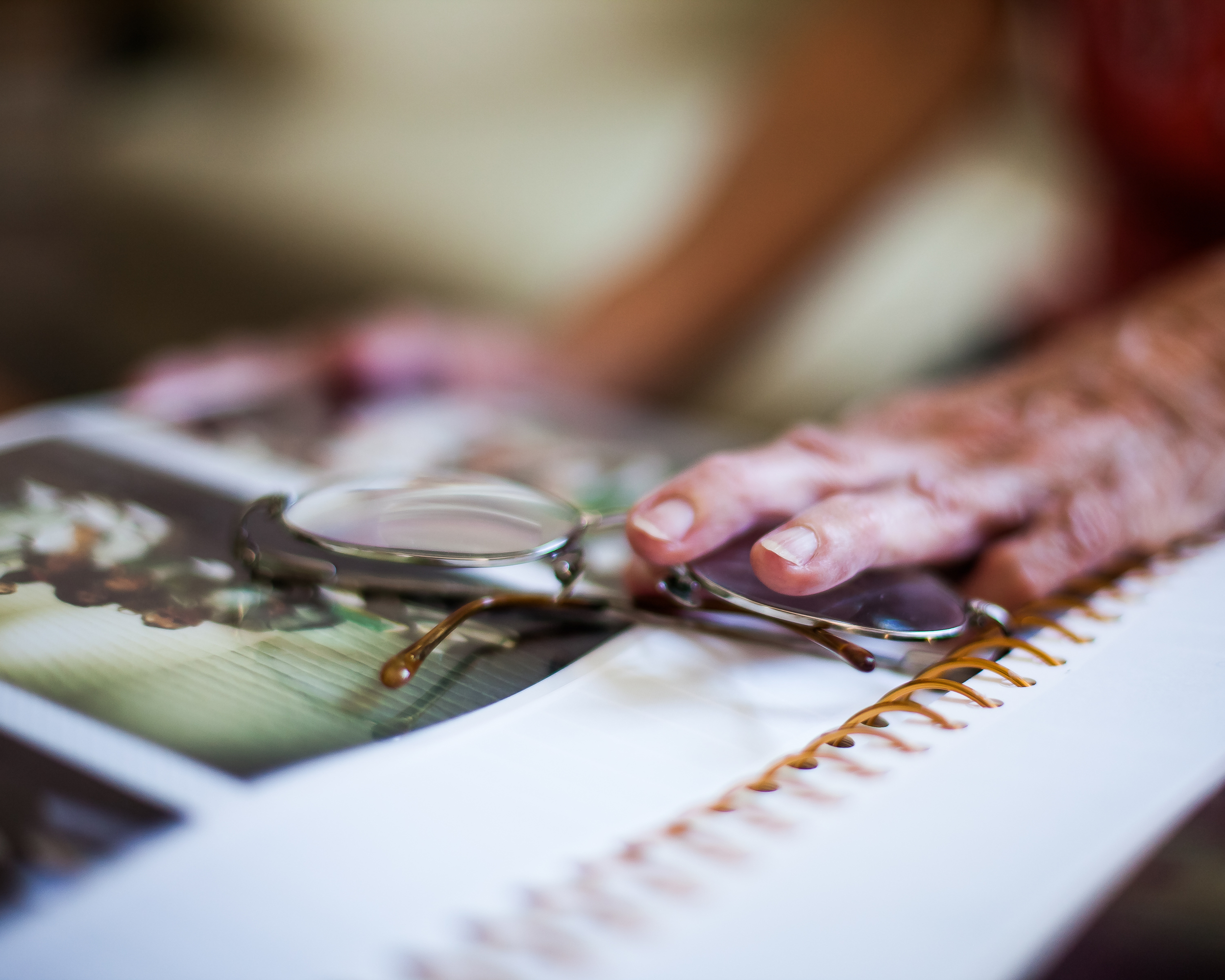
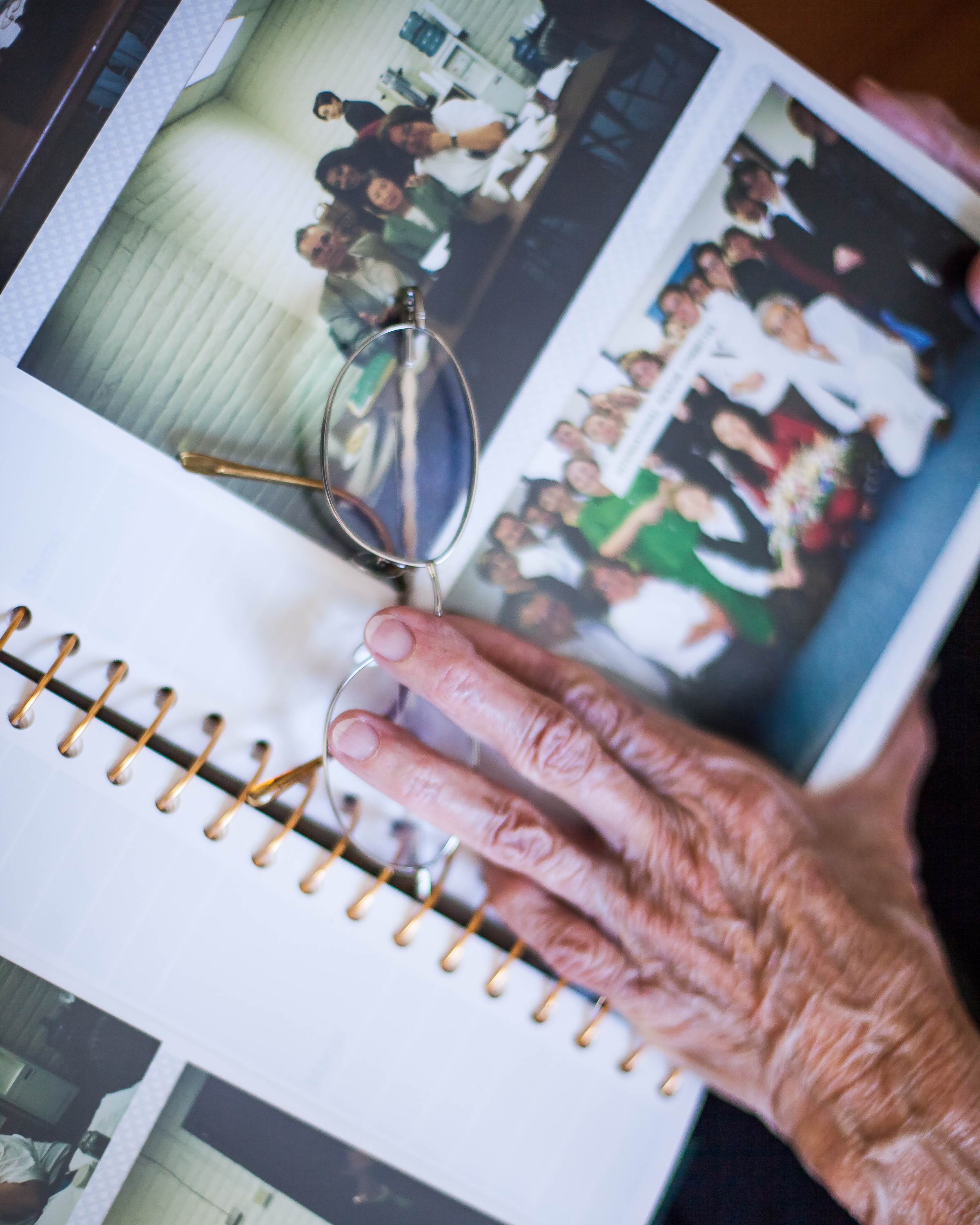
Grace - Refugee from Nigeria
Grace Enenta |Home Country: Nigeria | Arrival: 2009 | Applied for Asylum in: San Leandro
Sunday dinners are a time for family—me, my sons, their families, my sister, my niece—we gather together and give thanks. How different these serene Sundays are from the ones six years ago back in Nigeria. My four sons and I were Christians living in the Jos Plateau state. While the city of Jos grew, clashes between the Christian and Muslim populations began to rise as well. After almost a decade of this conflict, during which my family and I were watched and followed and persecuted for our religion, I finally decided to leave. My sister’s daughter was in San Leandro at the time, and I knew I could stay with her and apply for asylum in the United States.When I first arrived to the US in 2009, it was difficult. My niece, had lived in the U.S. for years, so she understood how life worked here and helped me to adjust. Once I saw a little of what life was like here, I knew I was here to stay. I sought the help of a lawyer in Berkeley and applied for asylum. An orientation for asylees referred me to the IRC. Although my niece helped me a lot with acclimating to the culture, I was still faced with the challenge of finding work. The IRC provided job training and help in searching for employment. I soon began work at the Salvation Army’s child care center, and simultaneously started child development classes at St. Mary’s College. I have a fierce passion for children’s education, so I was so grateful to be working in a school setting again. I now work full-time at
Supporting Future Growth, a childcare center in Oakland where I teach pre-schoolers. The IRC’s immigration department has walked me through every step of the immigration process, and I am now a U.S. citizen. In 2012, my sister Victoria fled Nigeria and she was able to access the IRC’s immigration support as well. We have been living together for two years now at an apartment in Oakland, and once again, I am surrounded by a loving family. My sons and their families live just blocks away, and recently, my granddaughter was born, an American citizen by birth. While we are Catholics, we have found a wonderful community at the Redeemed Christian Church here in Oakland, and we attend as a family each Sunday.Nigeria will always be a part of me. It is where I grew up, where I gave birth to my children. Where I went to school, and found and job and had a life with my family. I am no longer in my home county, but the life that I have here, filled with my faith, my family, and a job that I love, puts me at peace, because while it’s not my home country, it is home.
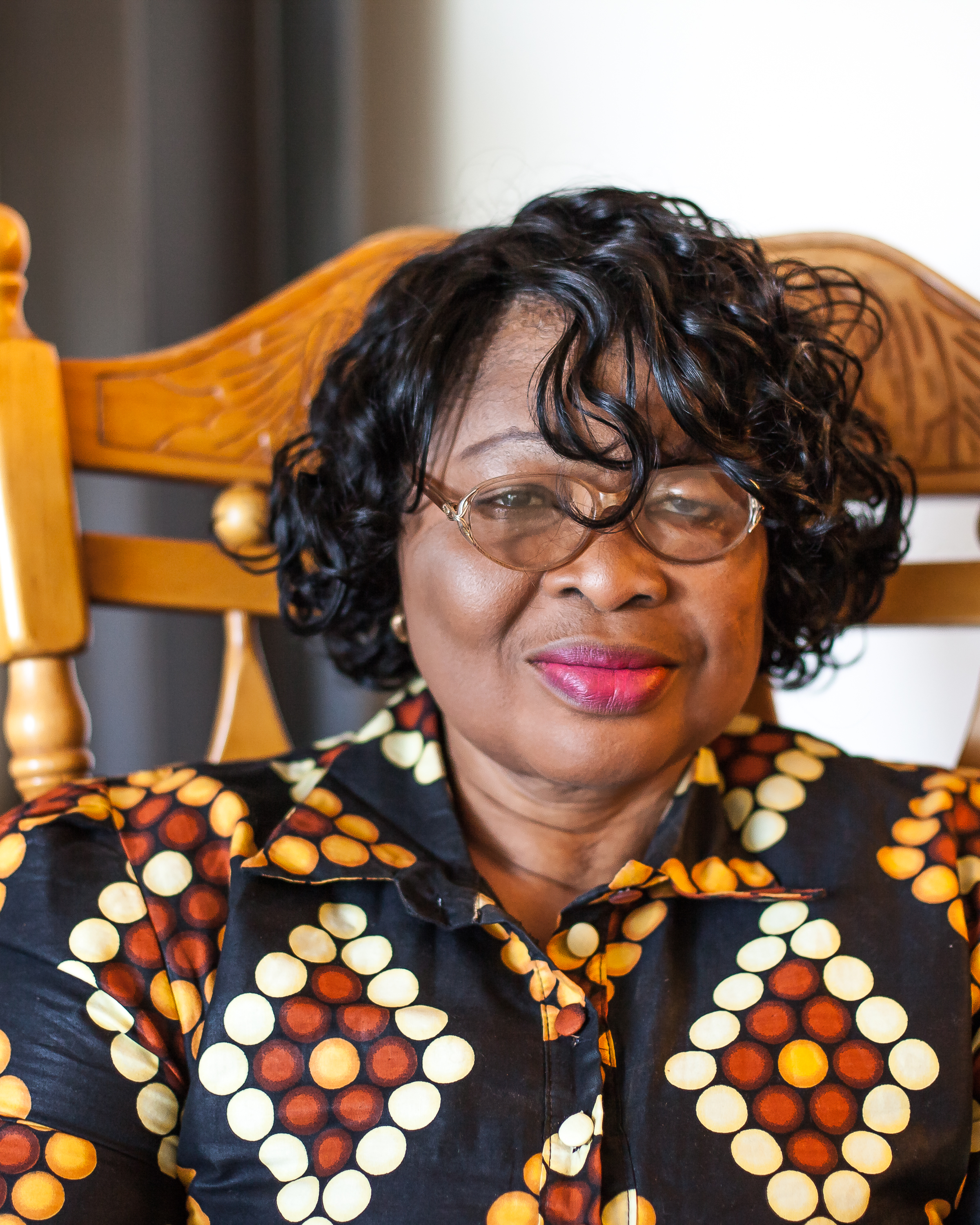
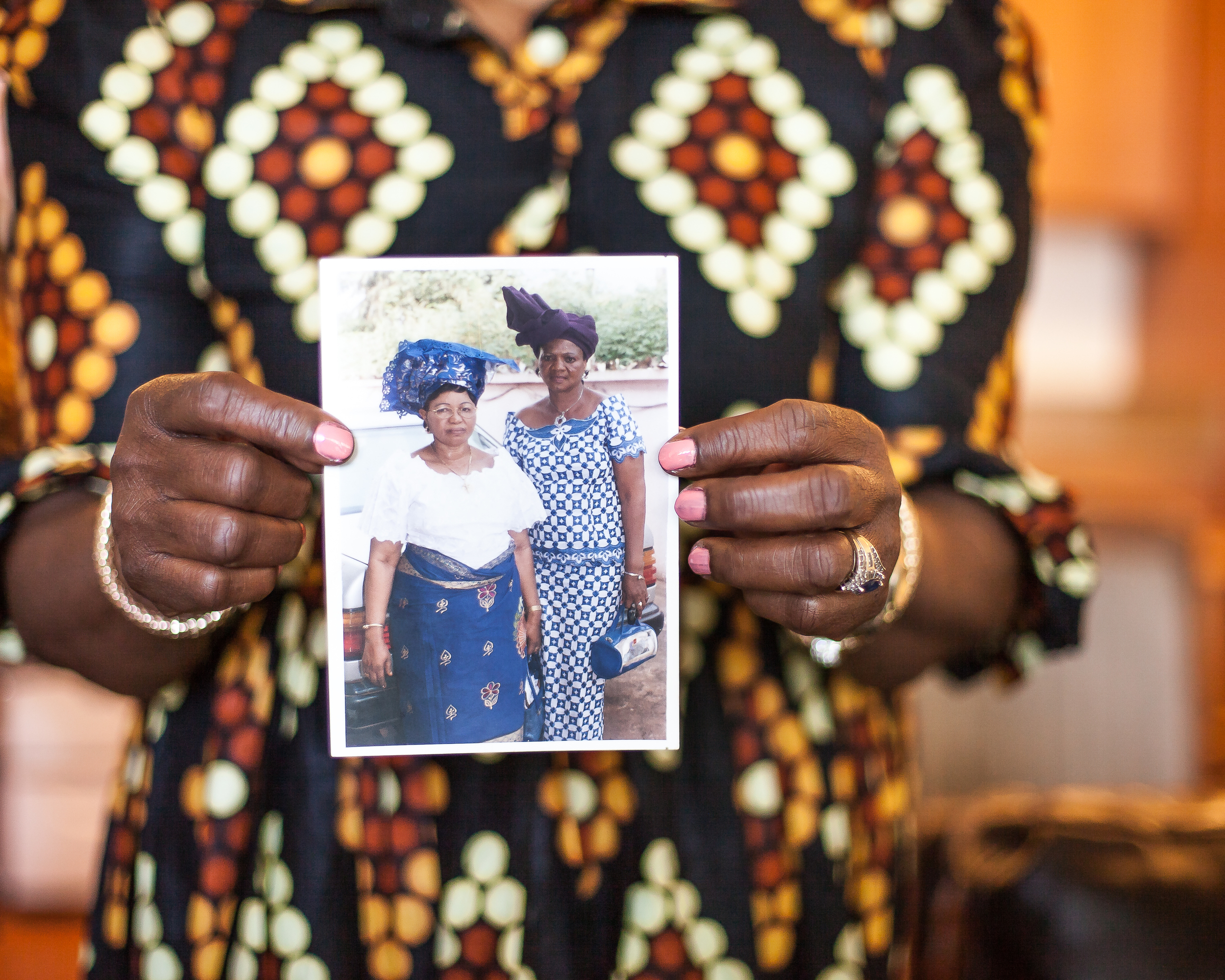
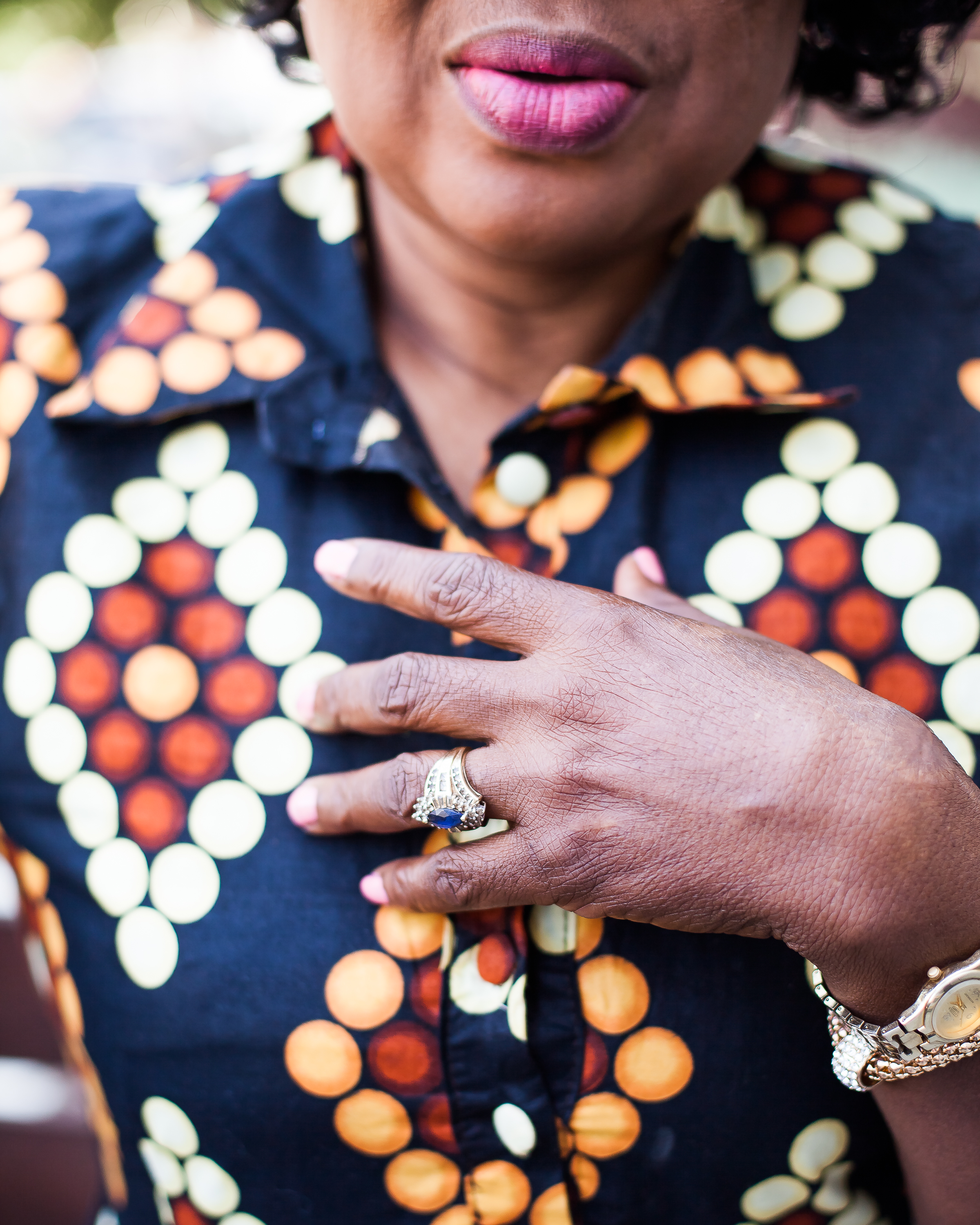
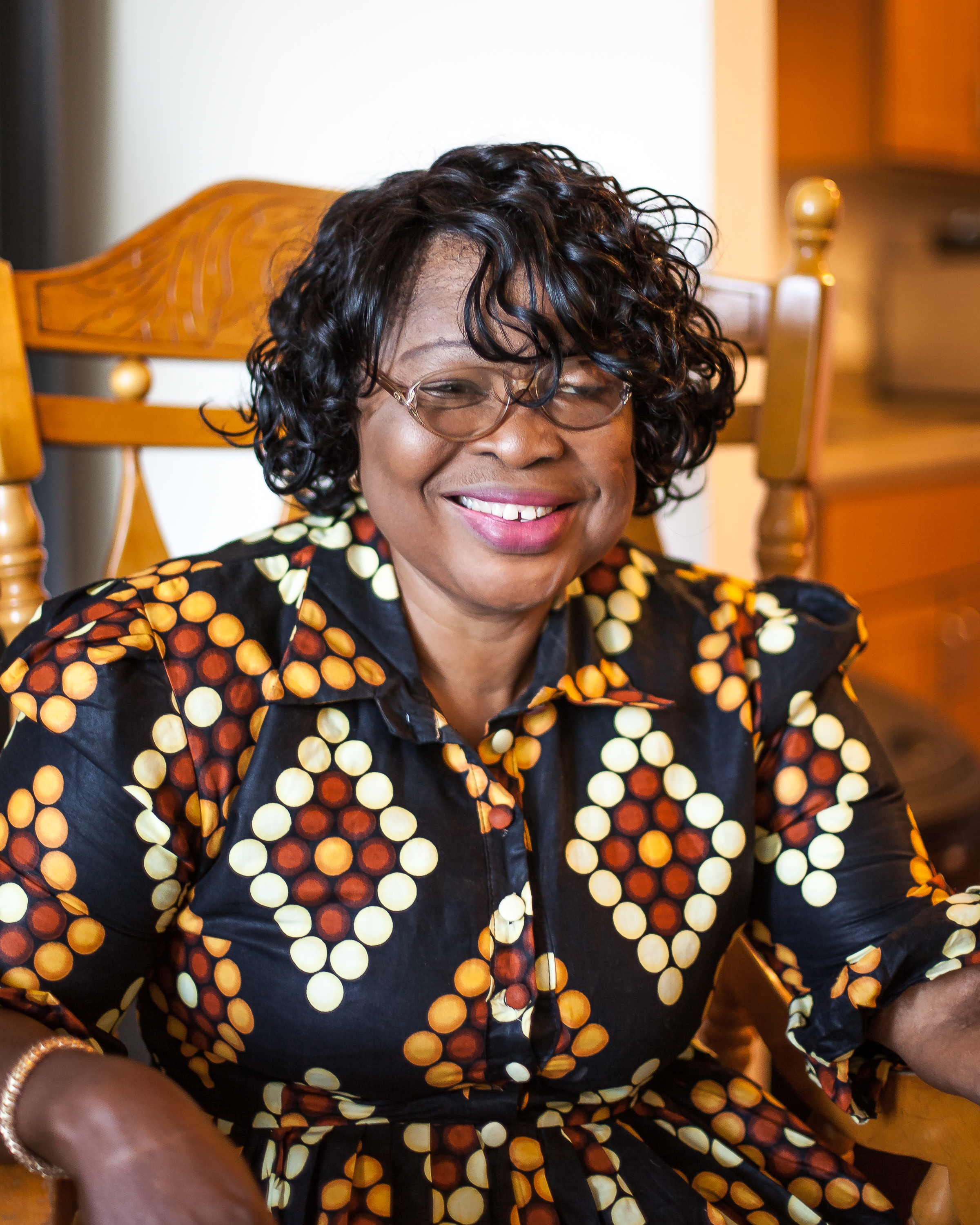
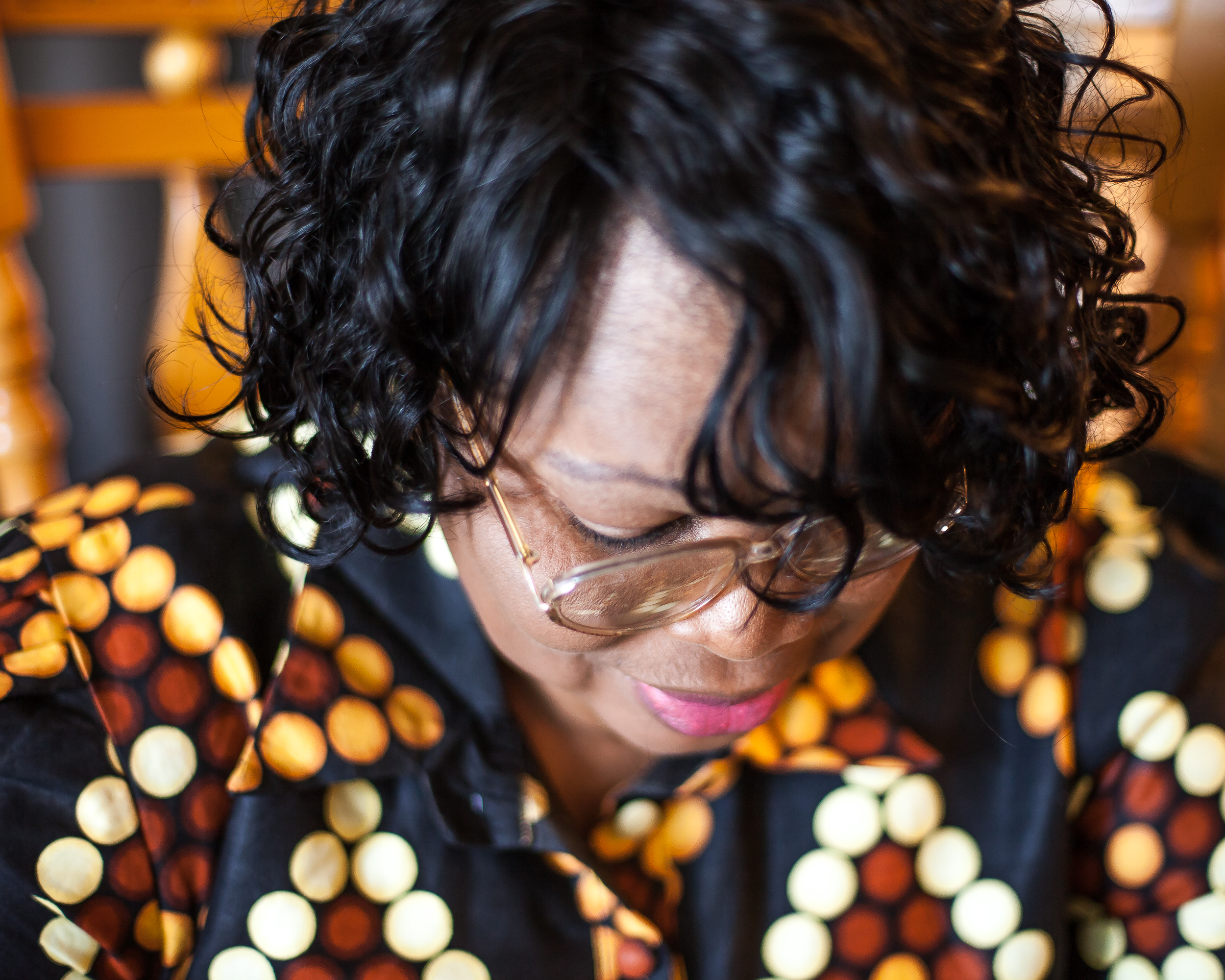
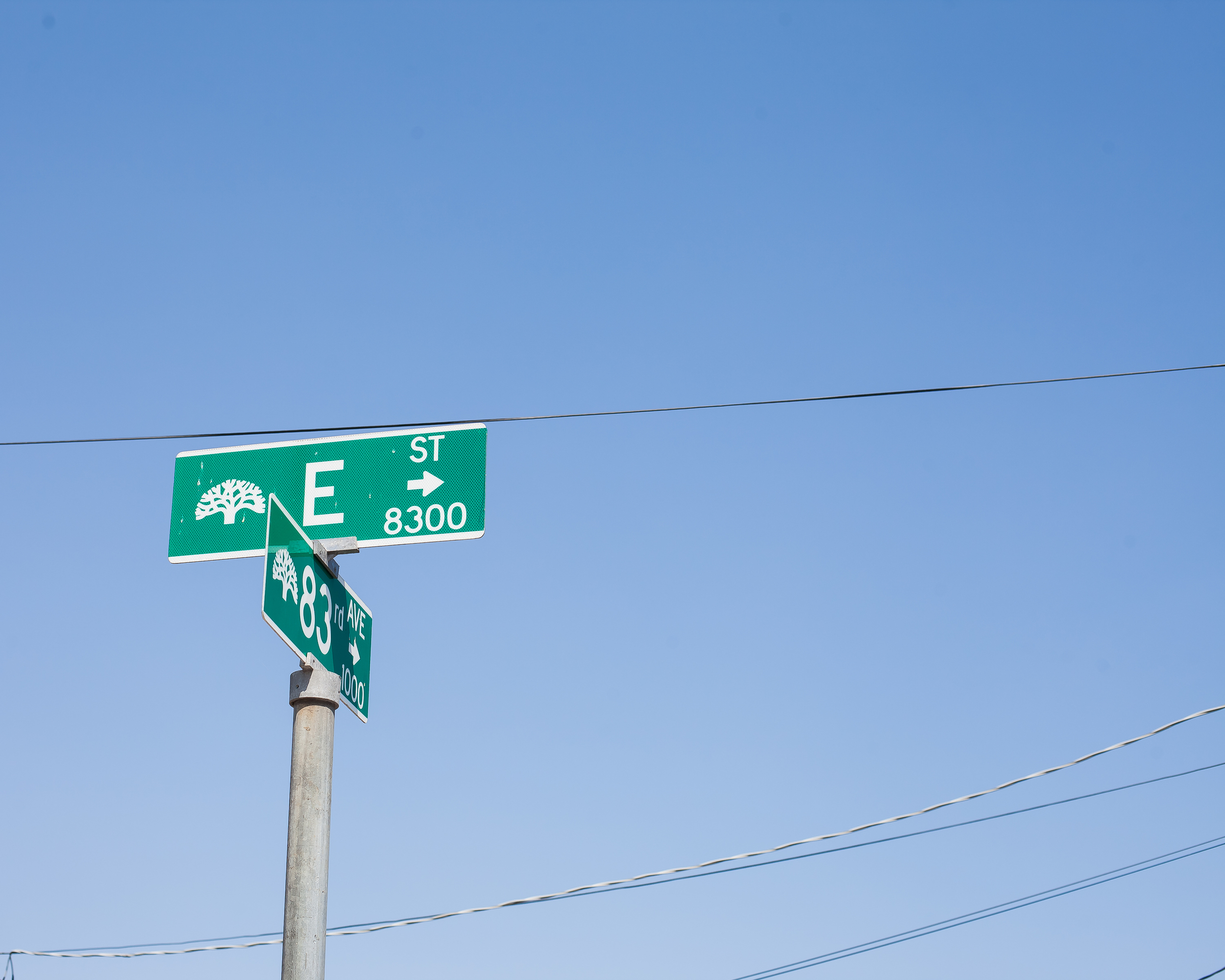
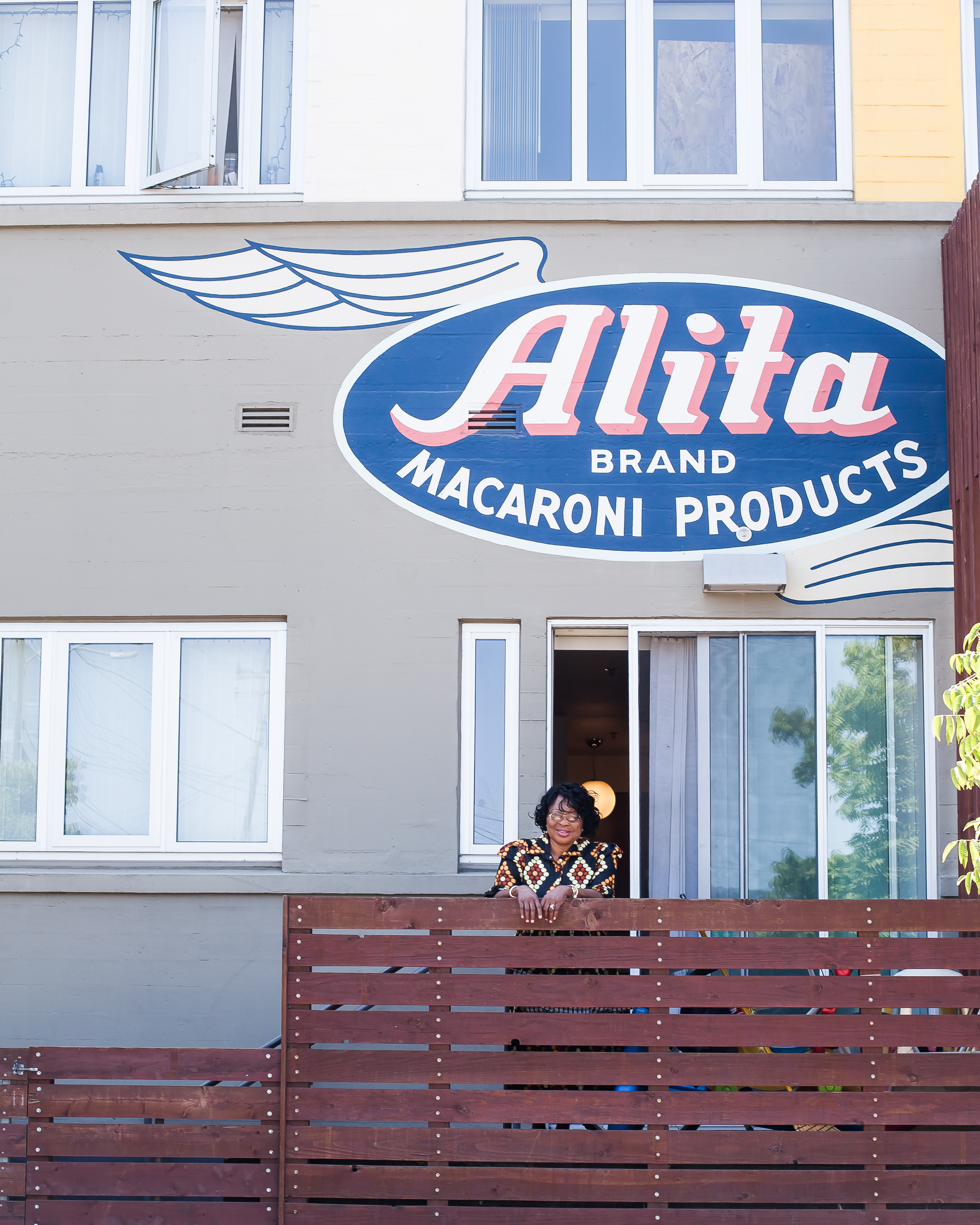
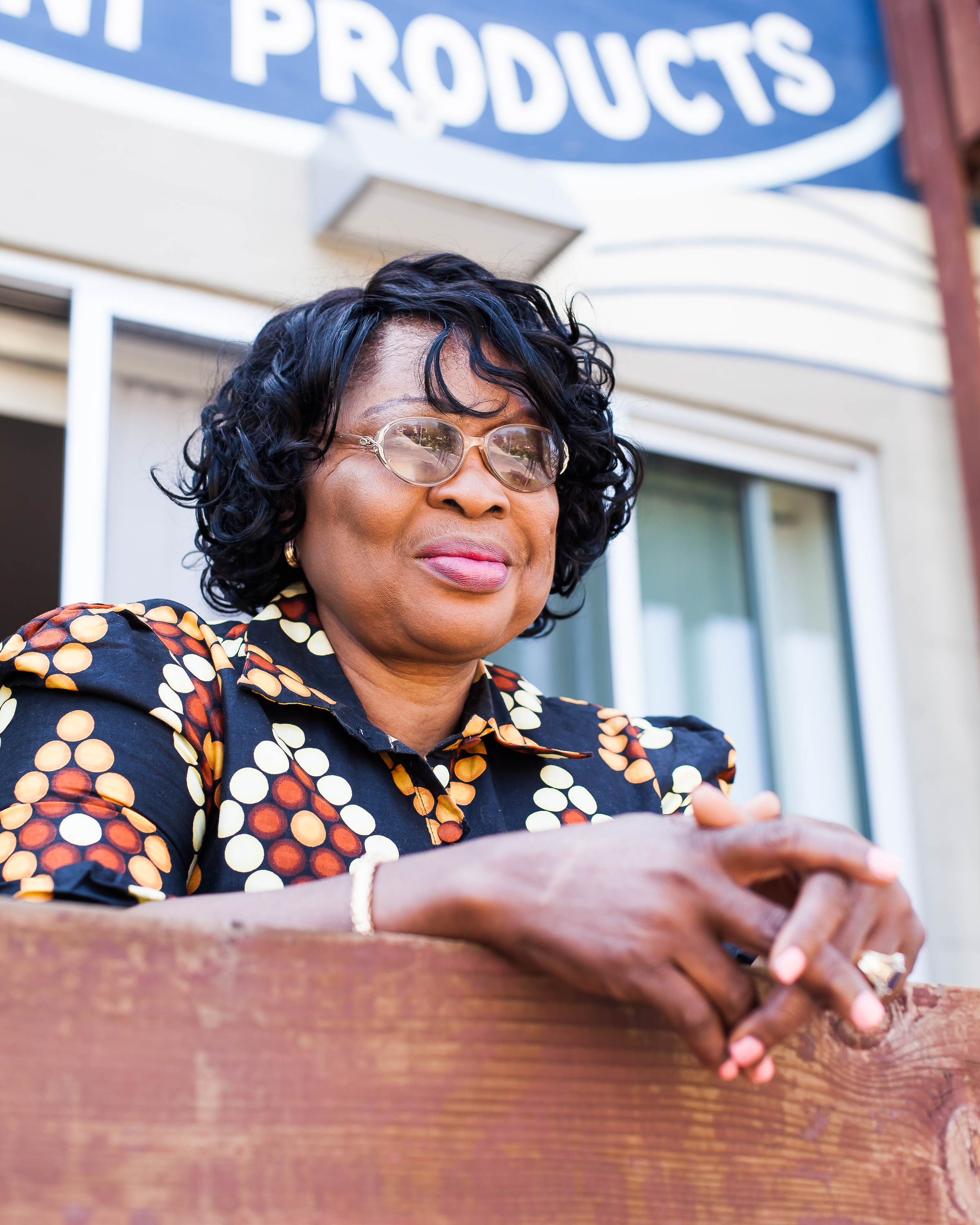
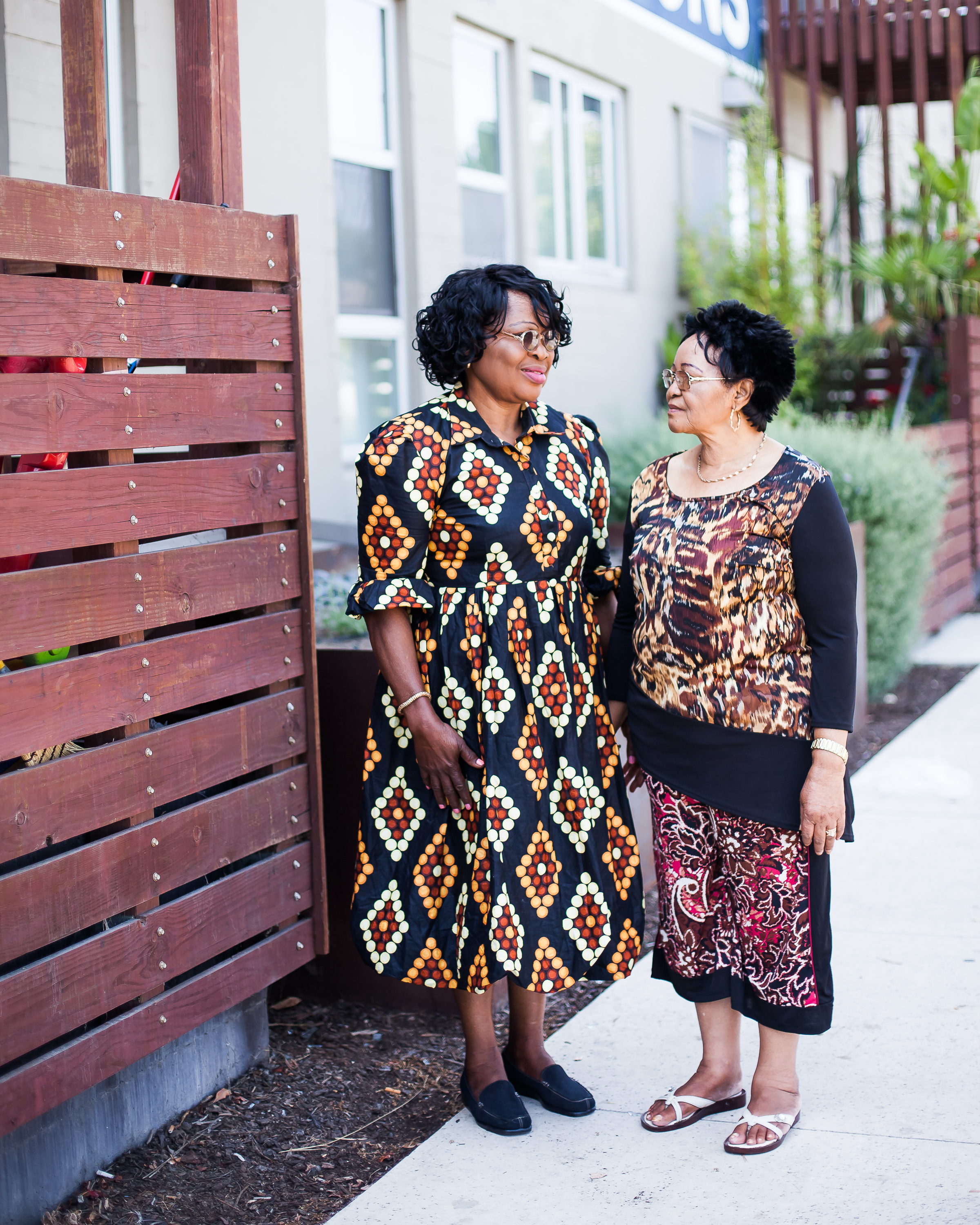
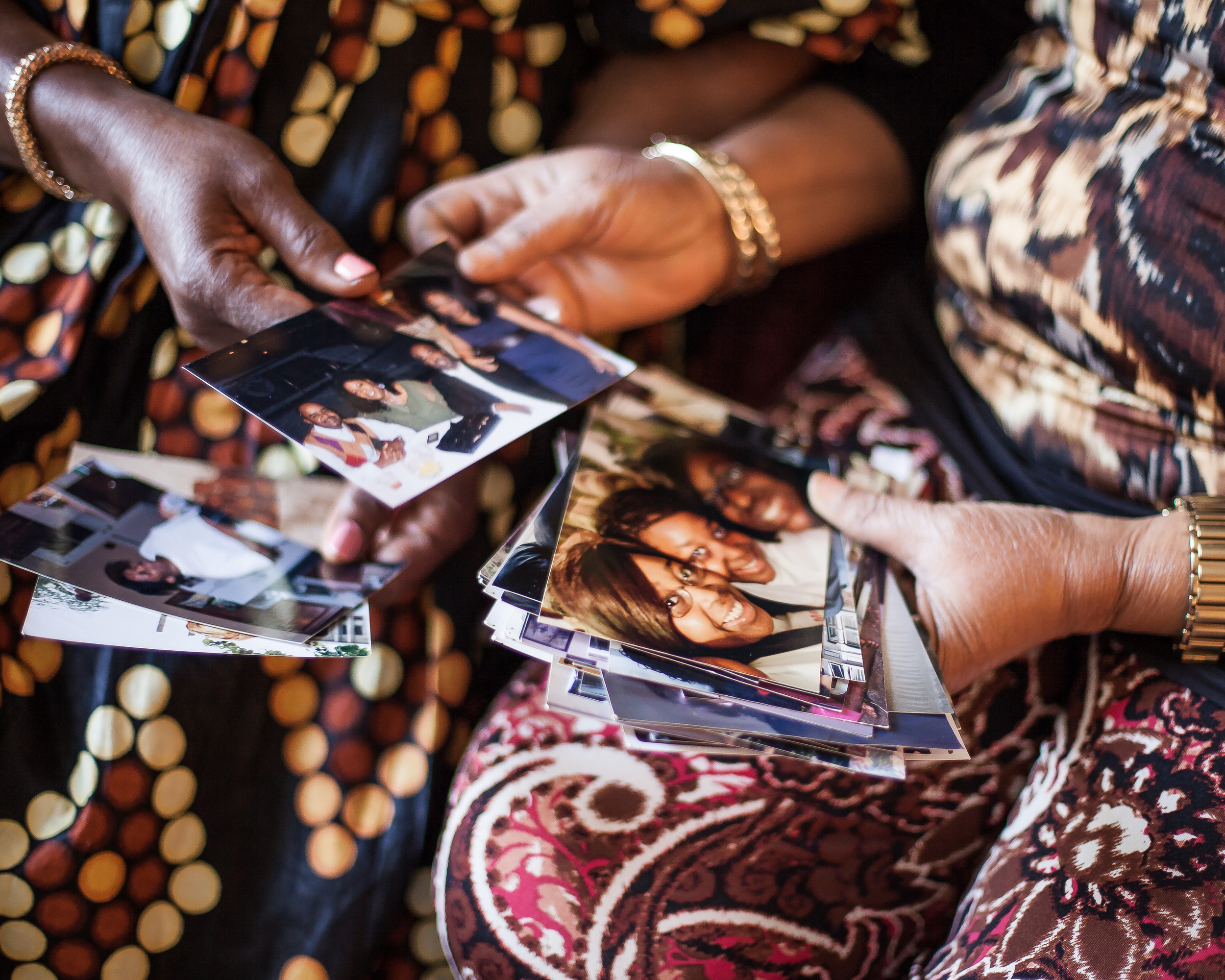
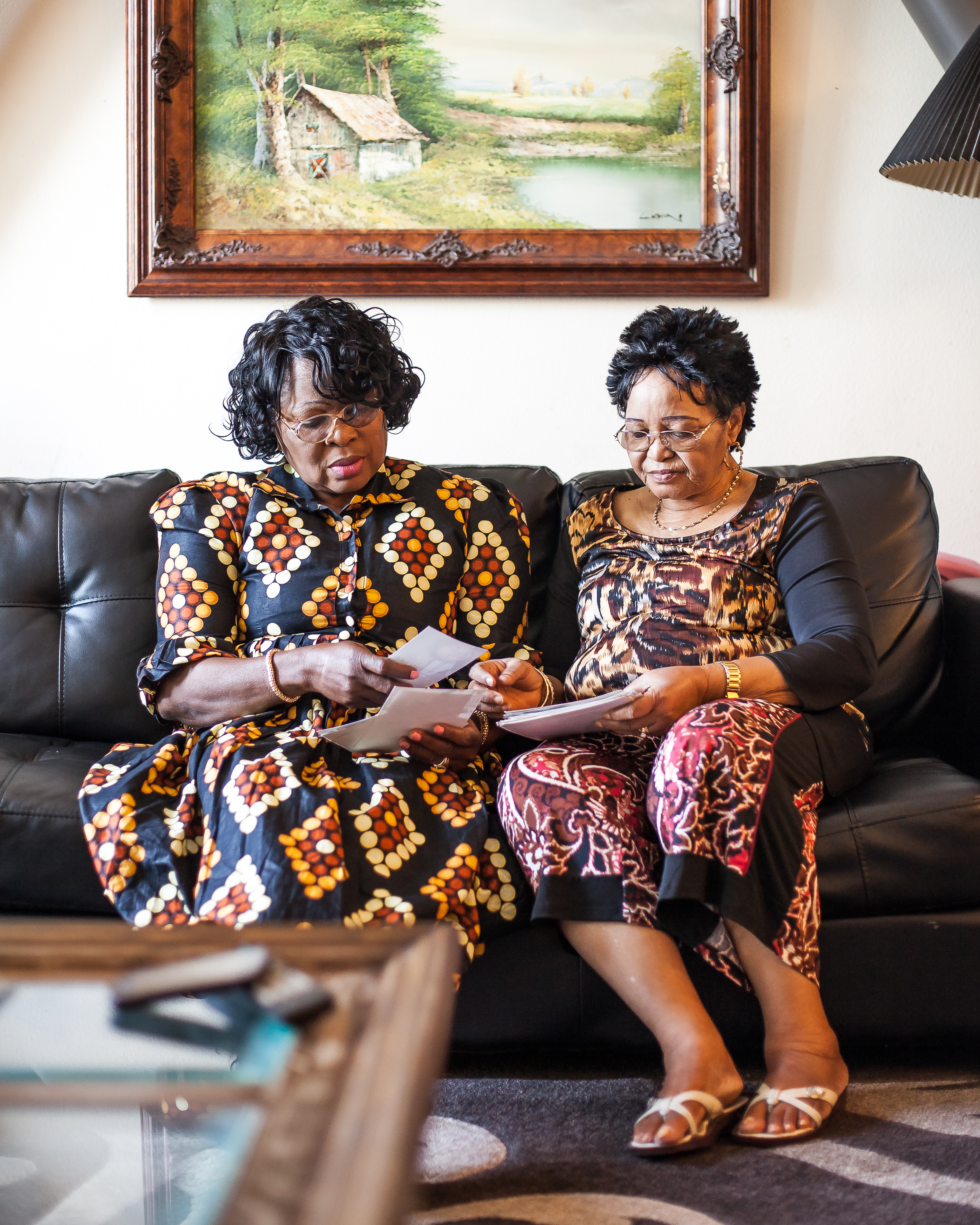
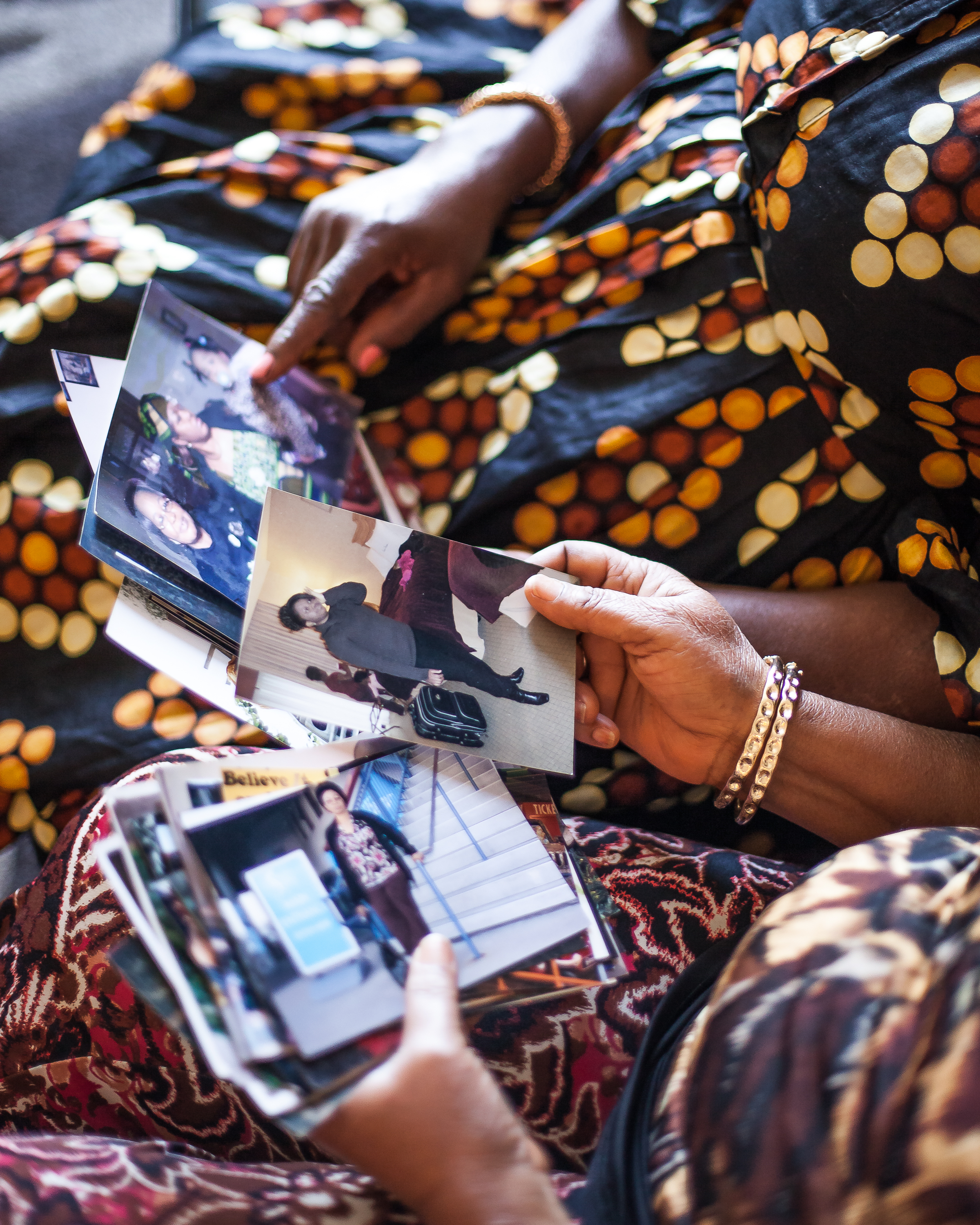
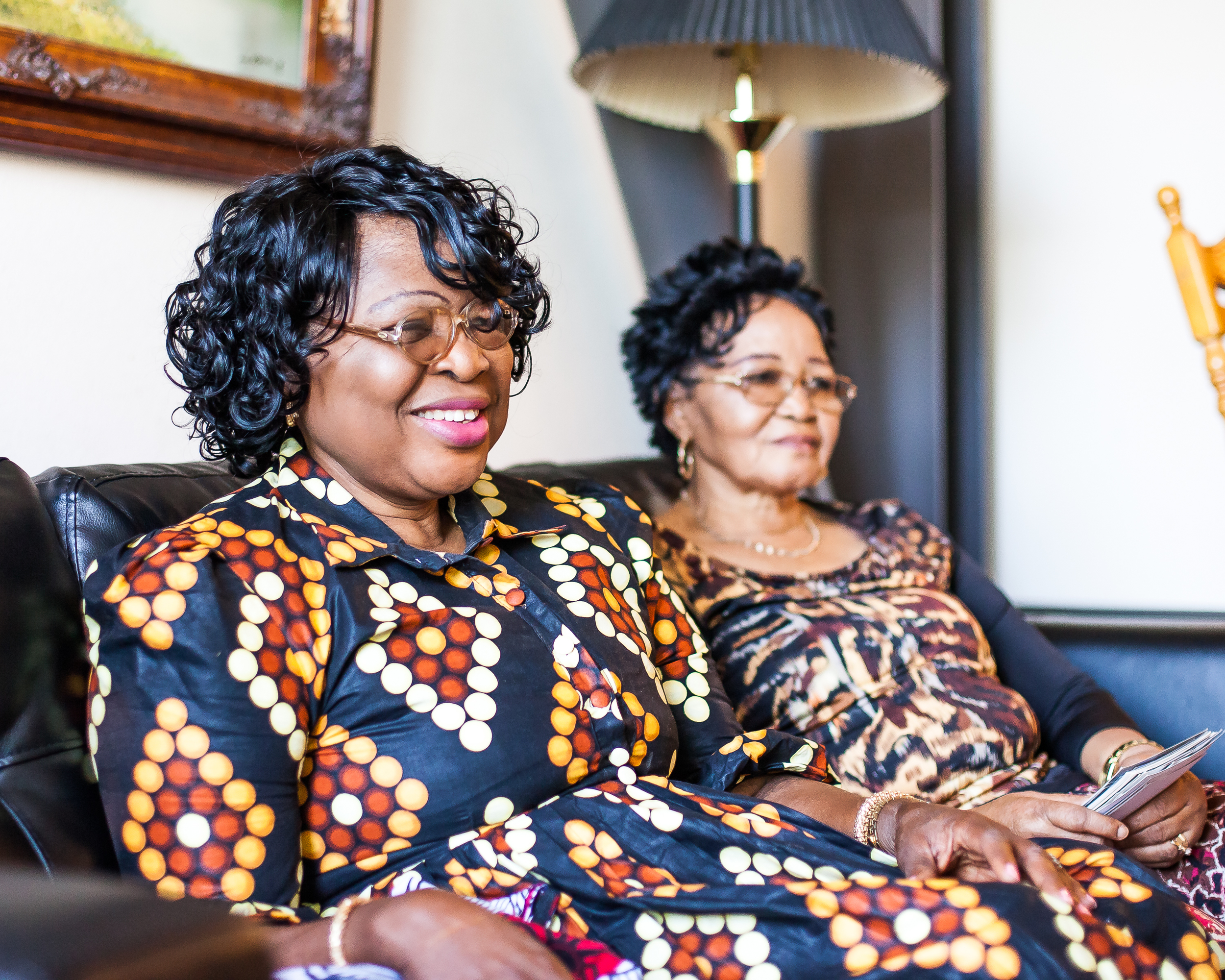
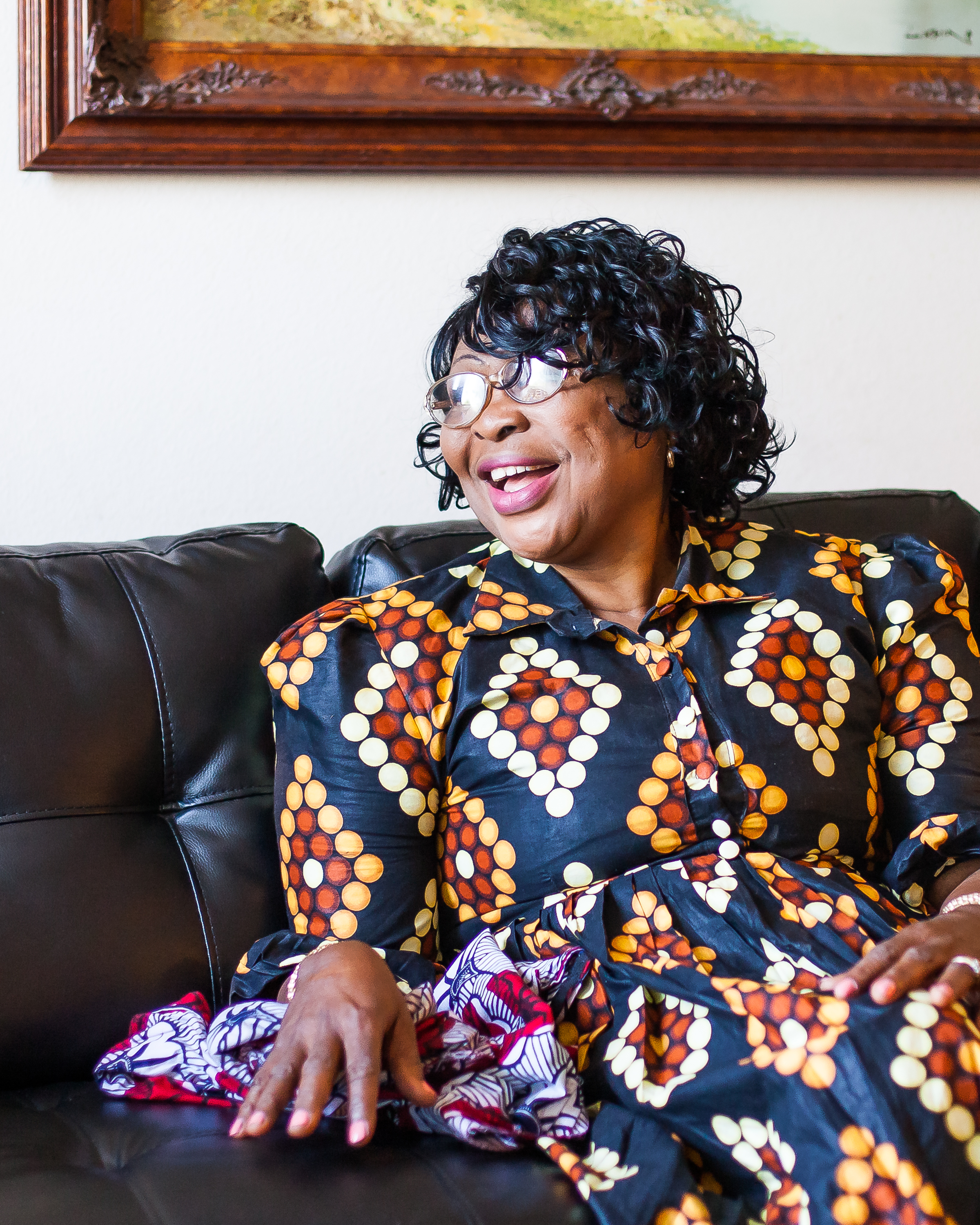
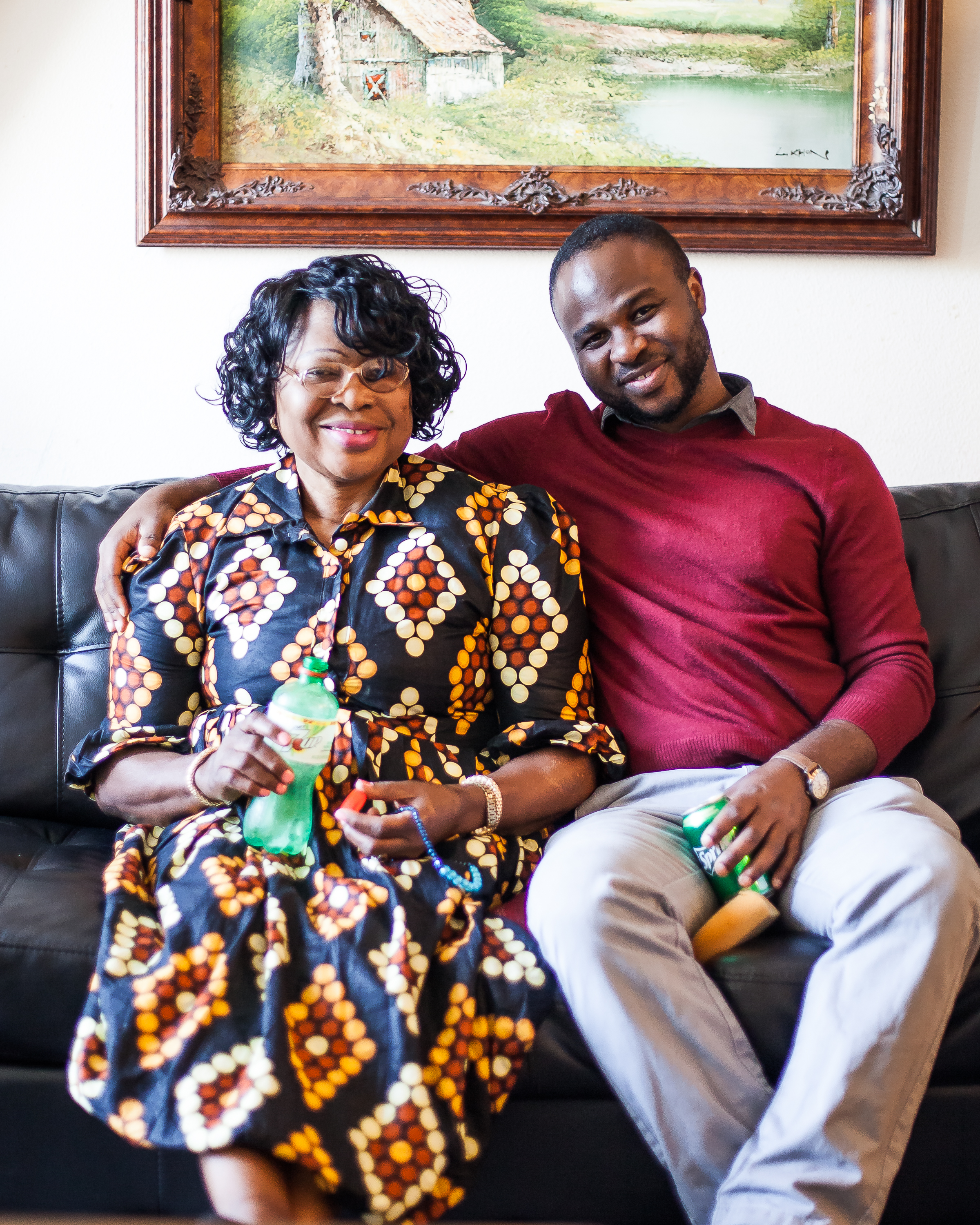
Ajmal - Refugee from Afghanistan
Resettled From: Afghanistan | Resettled To: Oakland | Resettlement date: October 18, 2014
I would like to share the story of why I'm here. In high school, I studied English. Not just because it's an international language, but also because of its use in computer science. I wanted to be a computer engineer. After graduating from high school in Peshawar, Pakistan in 2010, I took private English lessons for over a year before returning home to Kabul. Because I graduated abroad, receiving a high school diploma from the Afghan government would take up to a year. My mother was happy for me to stay home with her, but I wanted something to do and decided to pursue work as an interpreter. My family was against it; they said I was too young. But my father always lets me make my own decisions, and with his reluctant blessing, I accepted a position with the U.S. military. It wasn’t until I arrived at the army base that I realized I had been placed with the Special Forces. Theystressed that it was dangerous work, three of their interpreters had been killed, but I put my trust in
Allah and know the future is in His hands. I met my 12-person team in Kunduz province; every mission we took gave us little chance of coming out alive. The enemies were cowards and hid in innocent people’s houses to avoid us; we were hit by roadside bombs and aimed at from the bushes. Despite this, we saw the positives of our mission in the faces of everyone we had helped. We brought peace to the region, training local police and building roads and schools. About three months in, I started interpreting for a U.S.-run radio show called Voice of the People. This program sent messages from the U.S. government to the local people, and then broadcast supportive responses from the locals as well. My real name was used and this made me an easy target for the Taliban. I began receiving messages and phone calls with threats against my life. Scared, I turned to my team for help. They told me about the Special Immigrant Visa program and I applied a few months later. I continued working as an interpreter with my team for another year before returning home for six months. When I received word that my application had been approved, I left. Ethan from the IRC welcomed me at the Oakland airport. He knew I had been traveling for 20 hours, so brought me a hot halal meal to eat. He drove me to my new apartment, which he had rented and set up for me. To this day, I am appreciative of his hard work that day. The IRC supported me financially for the first three months while I took job and cultural orientation classes. My roommates were two Afghan brothers and they have become my brothers. The IRC also gave me a bike so I could explore my new home and get to interviews. I found a first job was at Chipotle, but the IRC economic empowerment team has kept working with me to set goals and build a career. They have helped me get a driver’s license, file taxes, and understand my credit. Getting my GED is my first big goal, and a flexible schedule is important. Now I work at Instacart and Uber, which allows me to study as much as I can.
My life improves every day. I hope to enroll in college soon for construction engineering, perhaps at the College of Alameda or Berkeley. One day, I know I will return to Afghanistan to rebuild my country, and I am grateful to the IRC for the opportunity to do so.
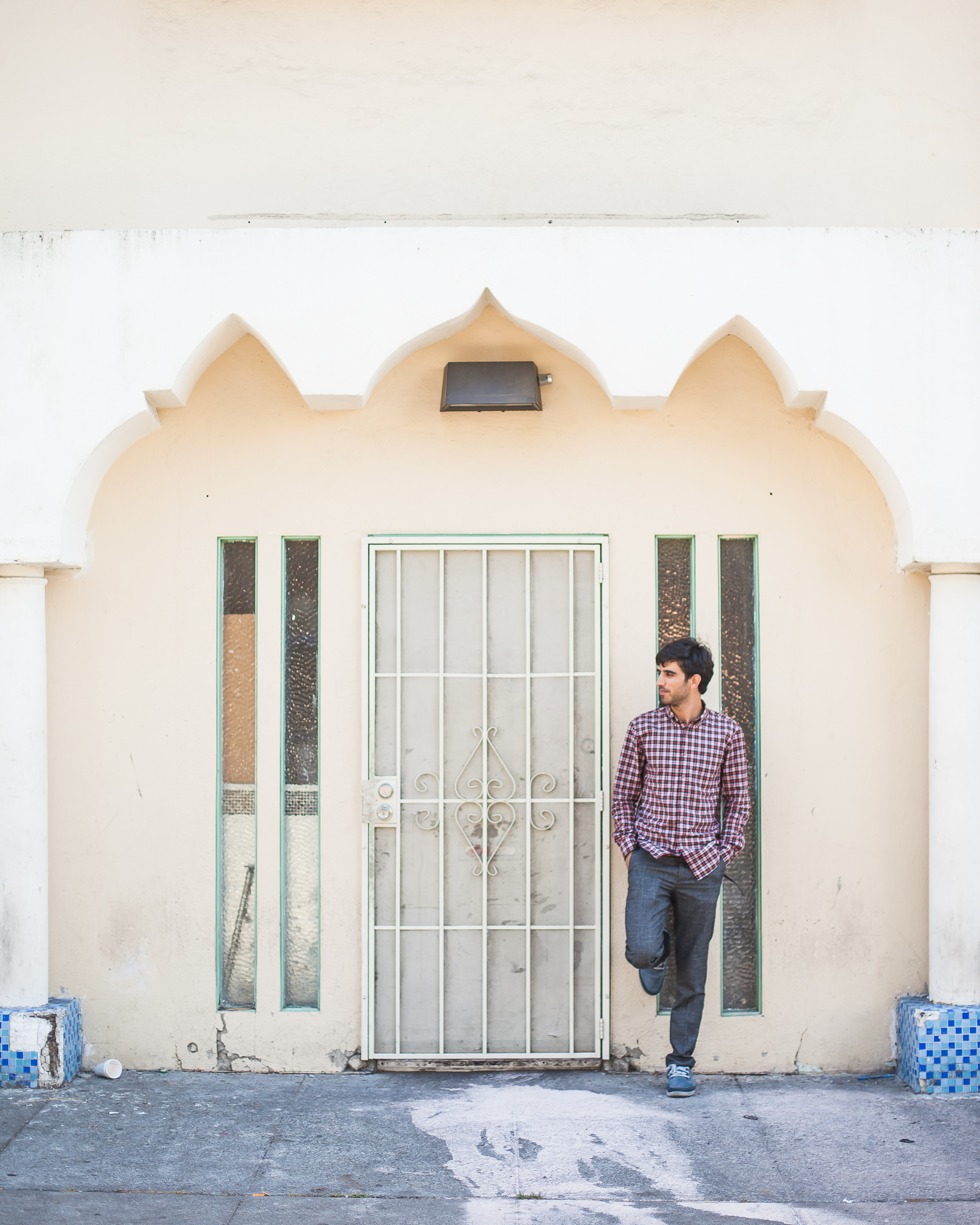
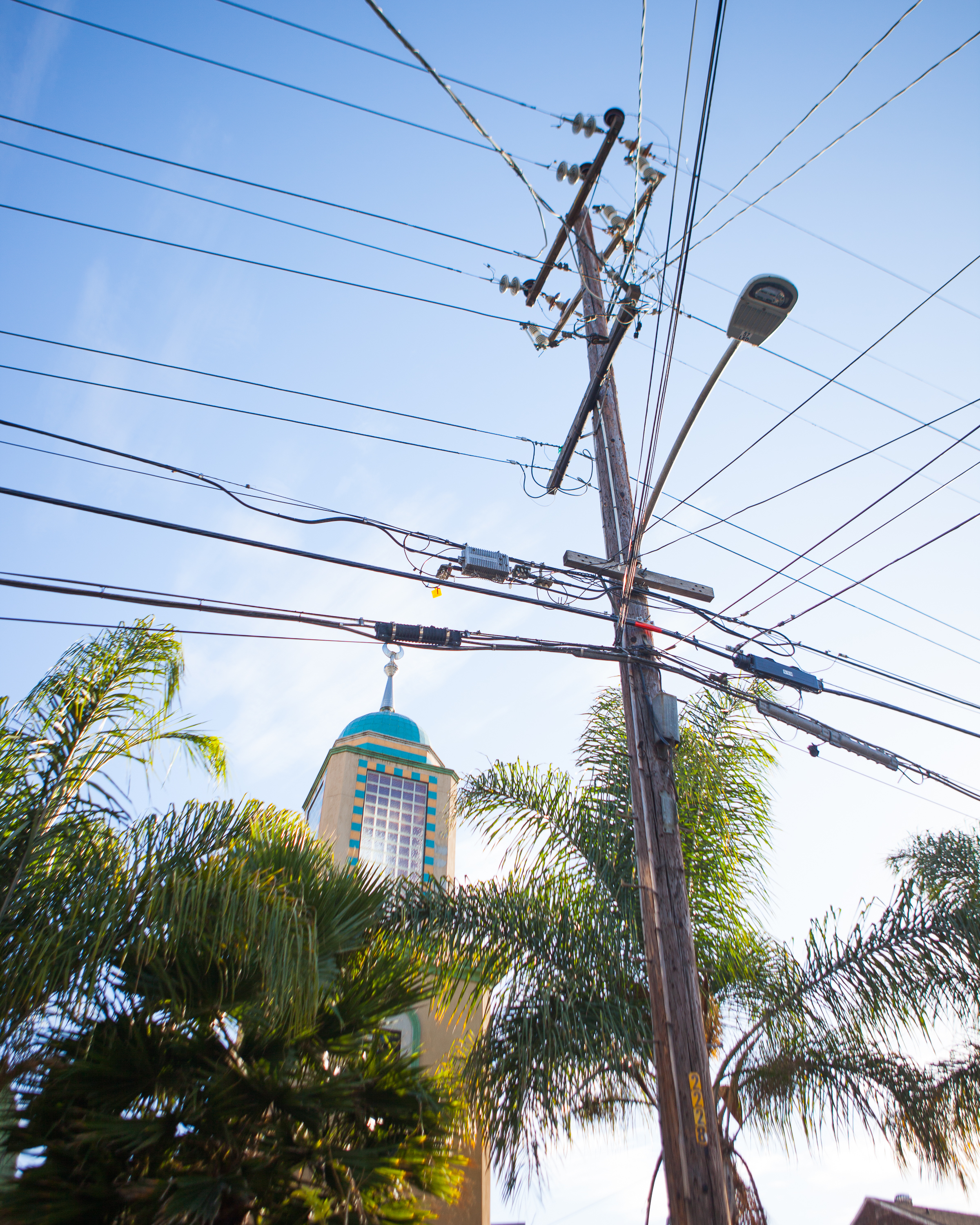
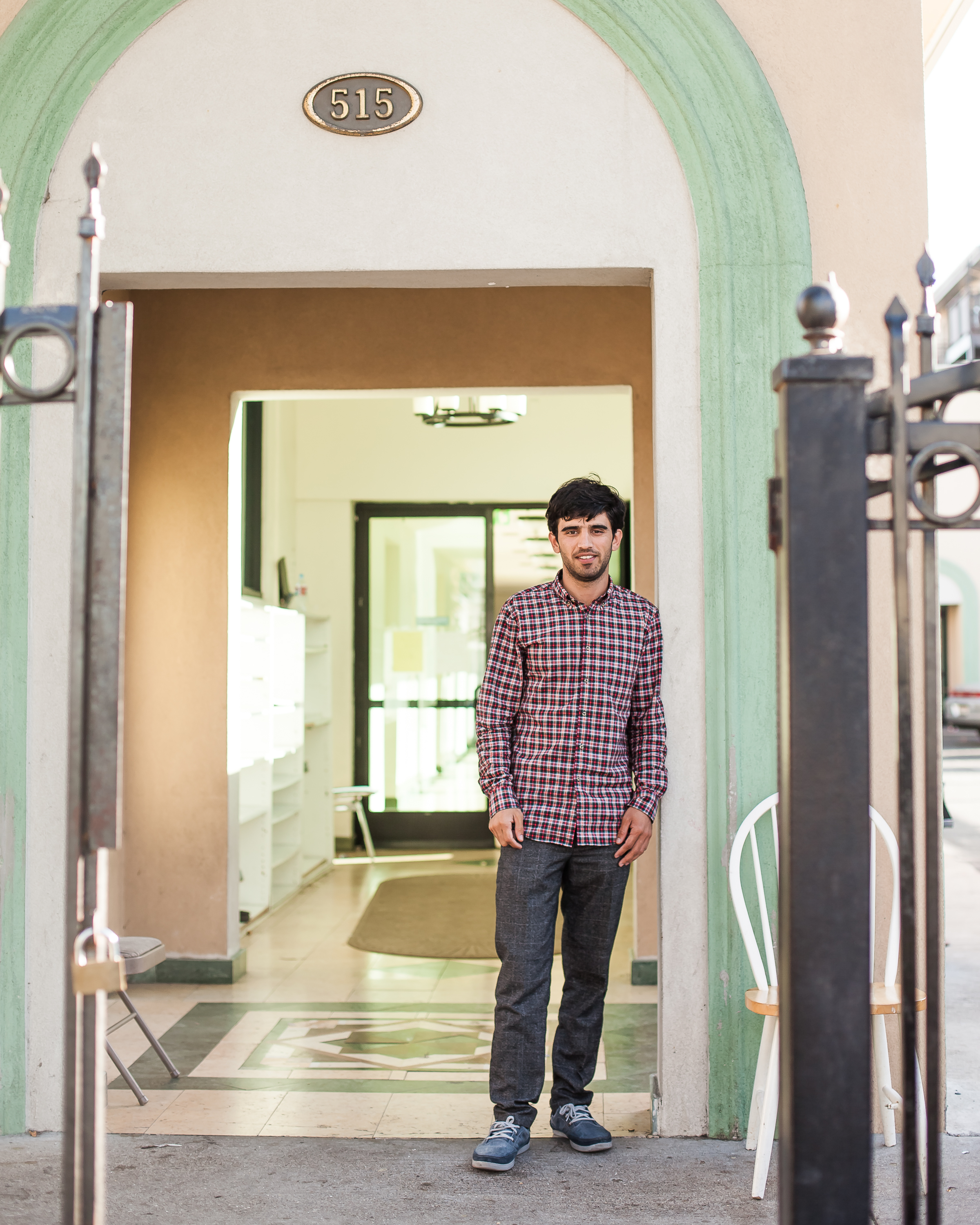
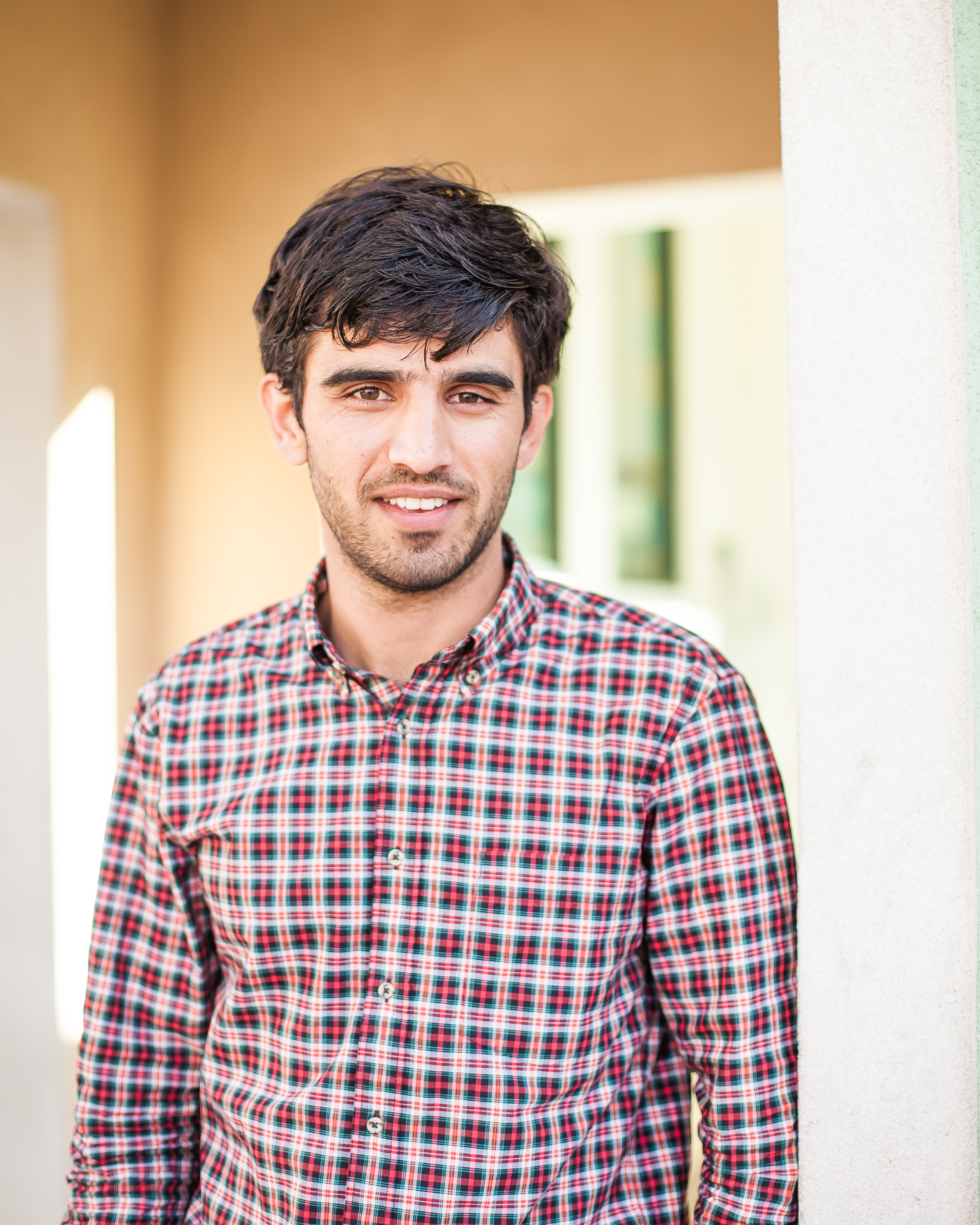
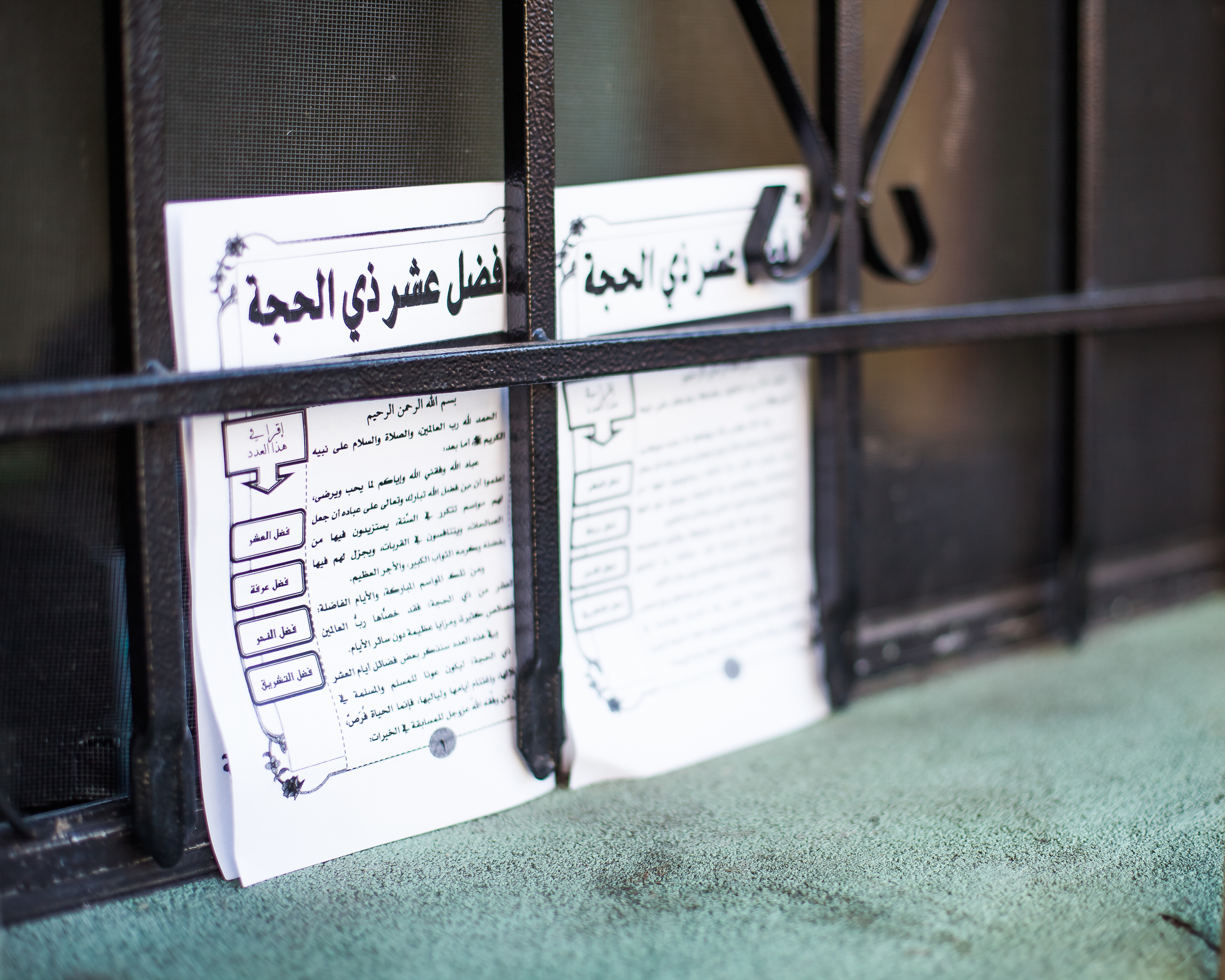
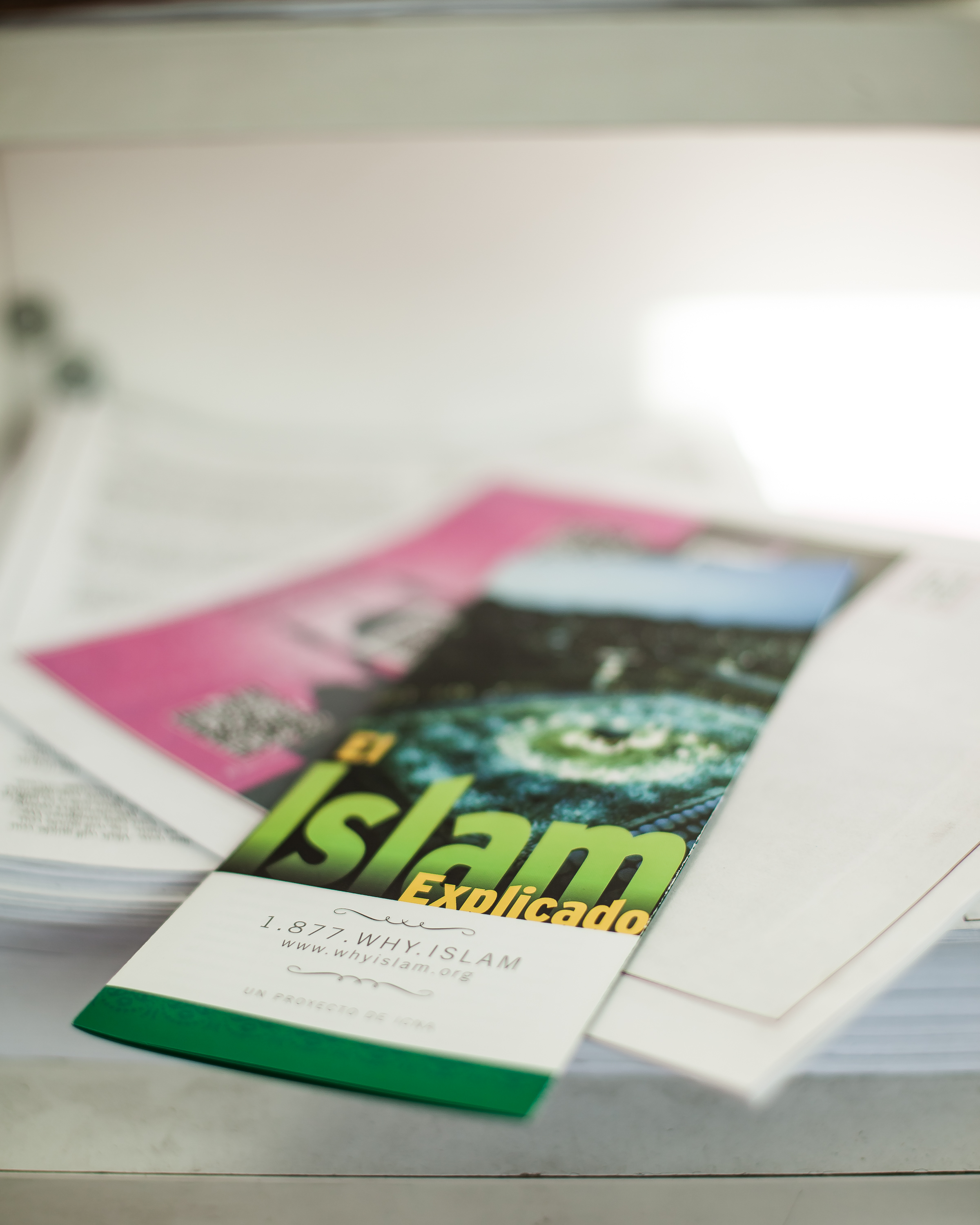
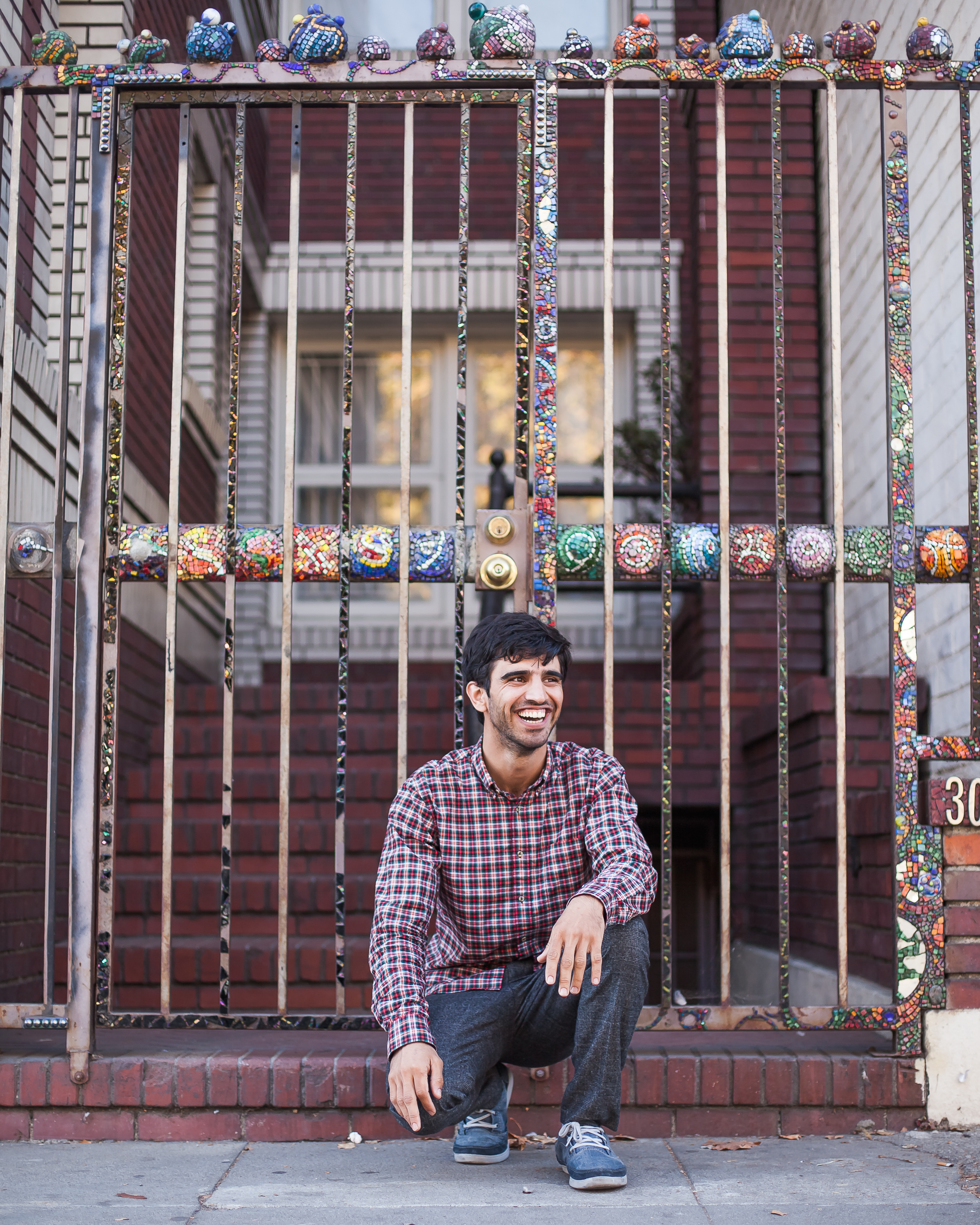
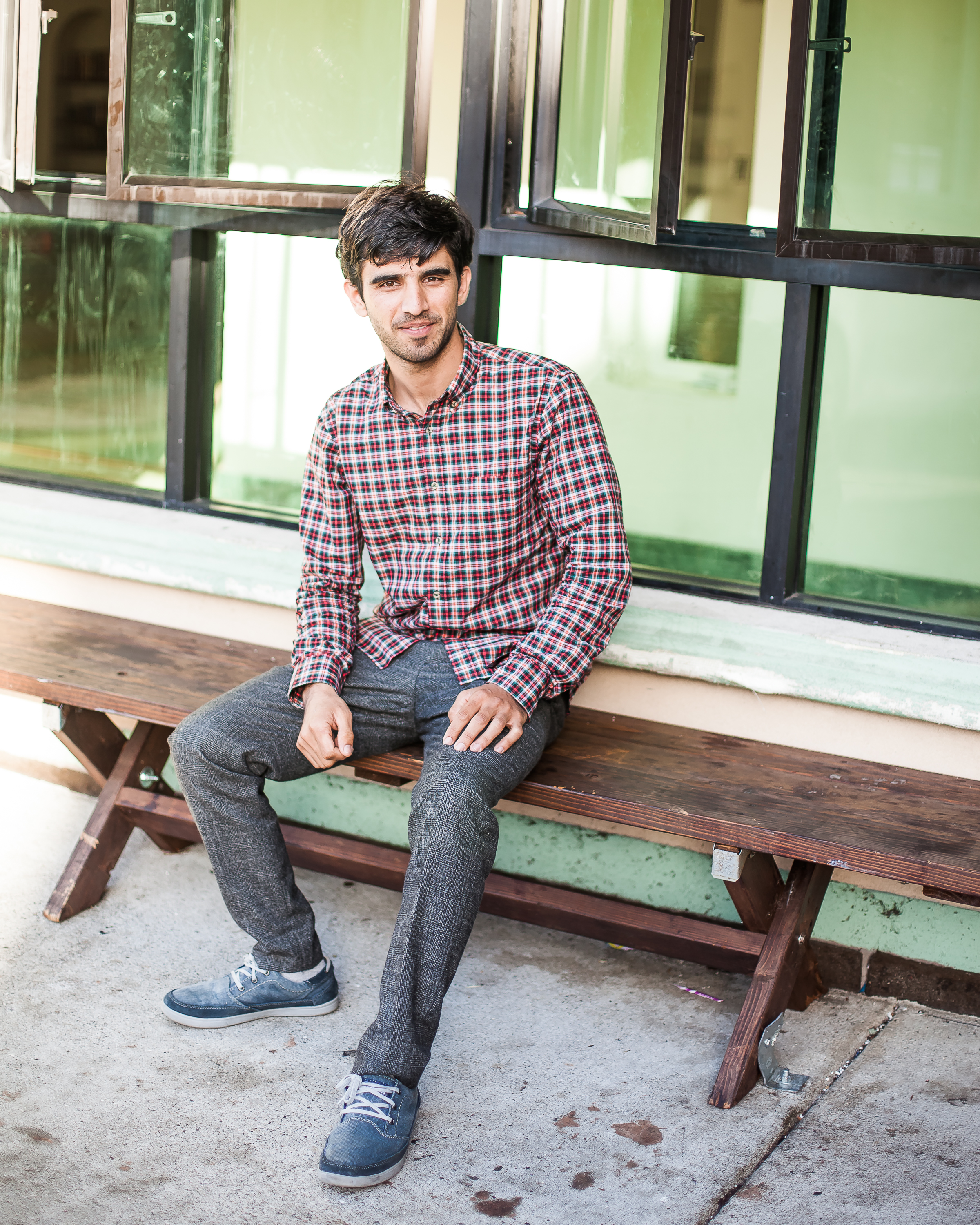
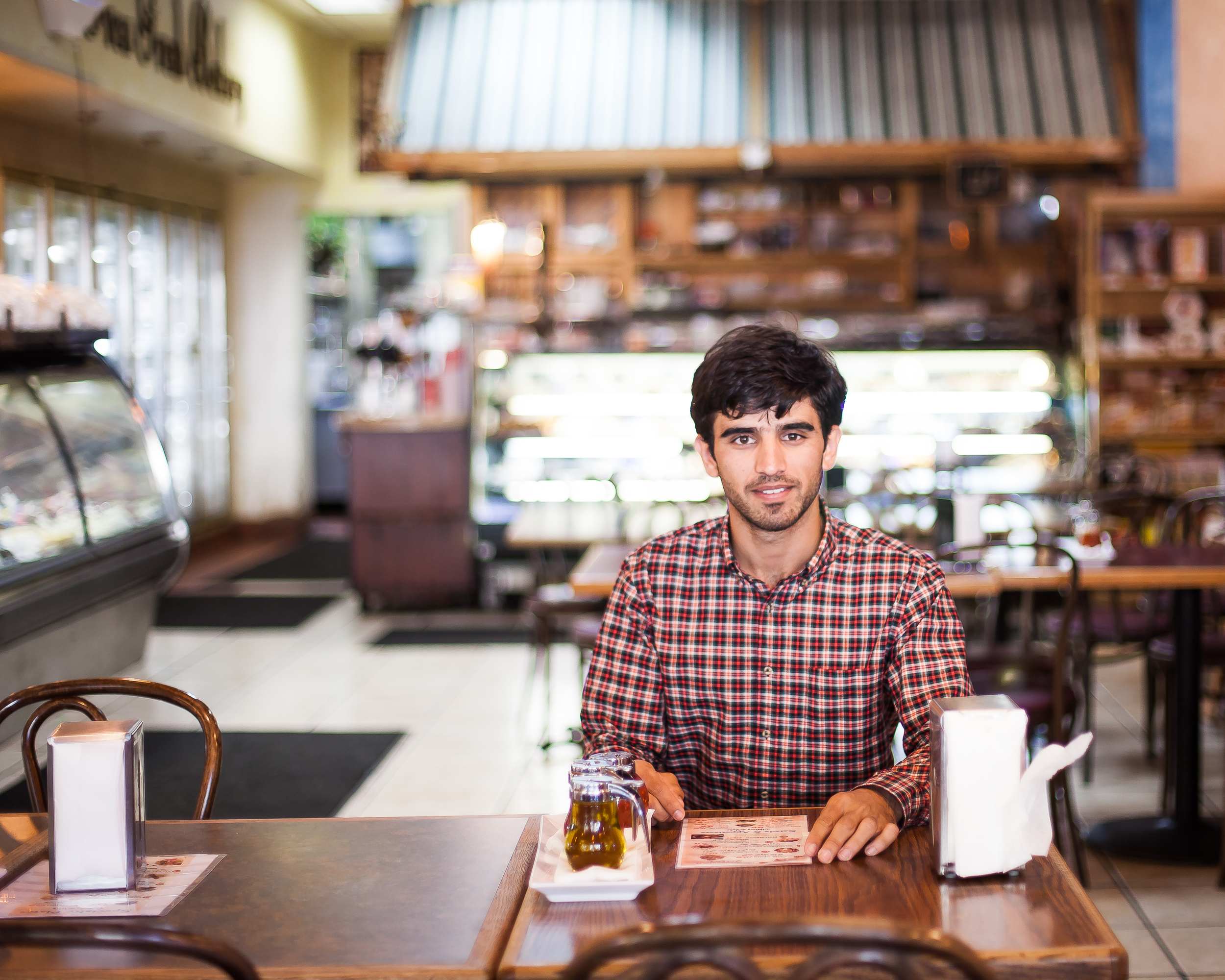
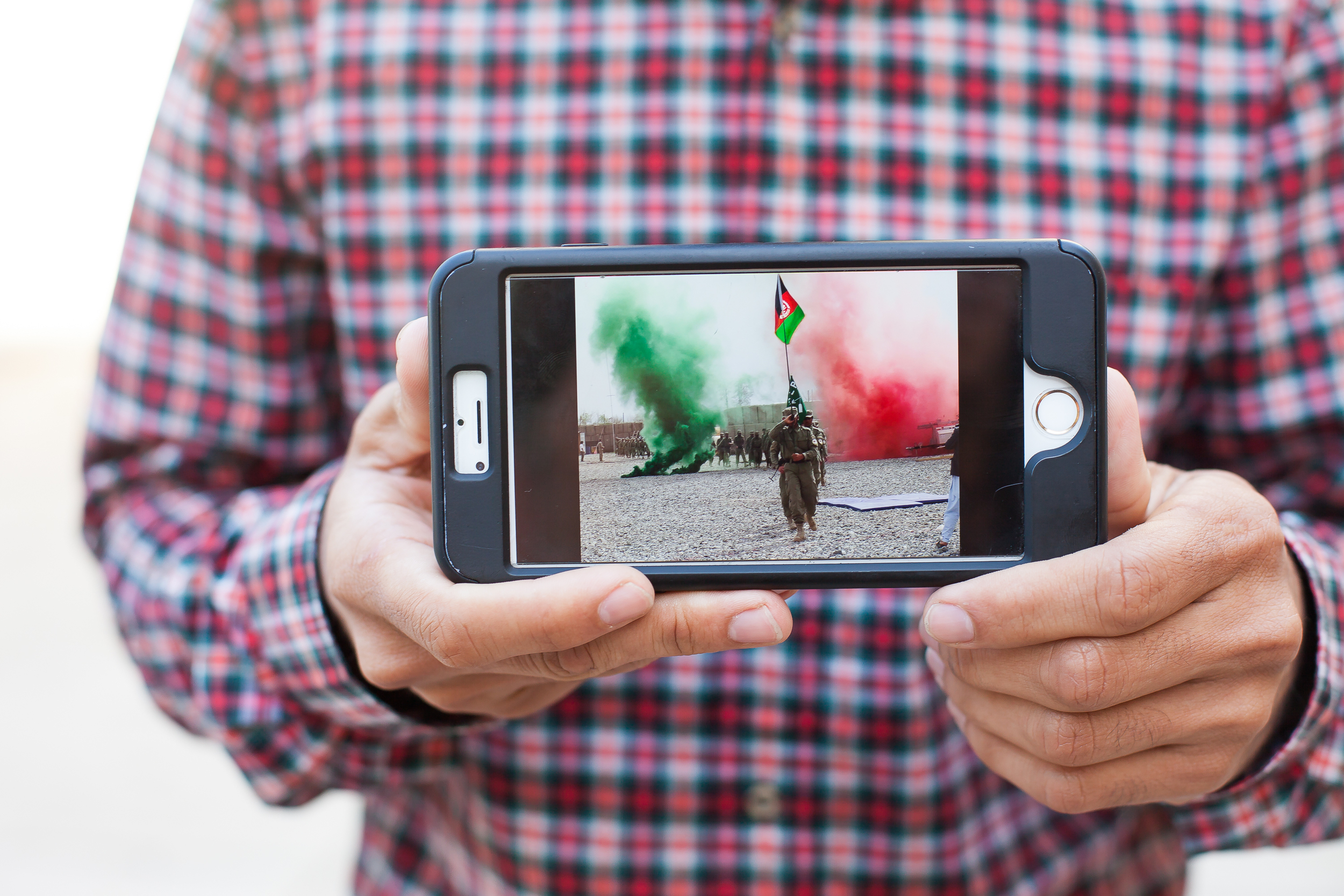
Aung Zarni- Refugee from Burma
Resettled From: Burma I Resettled To: Oakland | Resettlement date: September 14, 200
Growing up in Rangoon, I lived in a normal home, surrounded by a happy family. My mother passed away when I was 12, and my two older sisters stepped in and played a big role in raising me. As we grew, the country started to change. The Burmese people, who for years had demanded an end to the military control of our country, became more organized and more dedicated. Through the example of our father, a journalist, my whole family became deeply active in the pro-democratic movement sweeping the county. With the positive activism, however, there were also repercussions. In 1988, both of my sisters were arrested, and the following year, at the age of 16, I too was imprisoned. For a week I was harshly interrogated and denied sleep and food. After 3 months, I was released, but the threat of re-arrest was still there. At the request of my worried father, I left Rangoon to stay with family friends in a mountainous region of Burma. When it became clear I wouldn’t be able to return home anytime soon, I left for Thailand without the opportunity to say goodbye to my father and sisters. My life for the next five years was a kind of limbo. I worked a cook in a hostel until a former neighbor from Burma offered me work on a Tag boat along with the necessary fake passport. For four years and half, I worked on the Middle Eastern Sea, India Ocean, and Suez Canal. Young and state-less, I was unsure of my future. I returned to Thailand just as my passport was set to expire. I had learned English from Filipino and Indian crewmates on the ship, so was able to find work with the UNHCR as an interpreter for the Burmese refugee population. Within this new community, I was reunited with many old friends and colleagues from Rangoon, and finally, with my sister.
In 1999, ready to take control of my future, I too applied for refugee status and in September of 2000 boarded a plane headed for Los Angeles. Our plane was filled with refugees, and as we began the descent into LAX and passed low over the famous HOLLYWOOD sign, my heart smiled and the plane cheered. From LA, we bid each other farewell, bound for places like Dallas, Indianapolis, and (for me) Oakland.
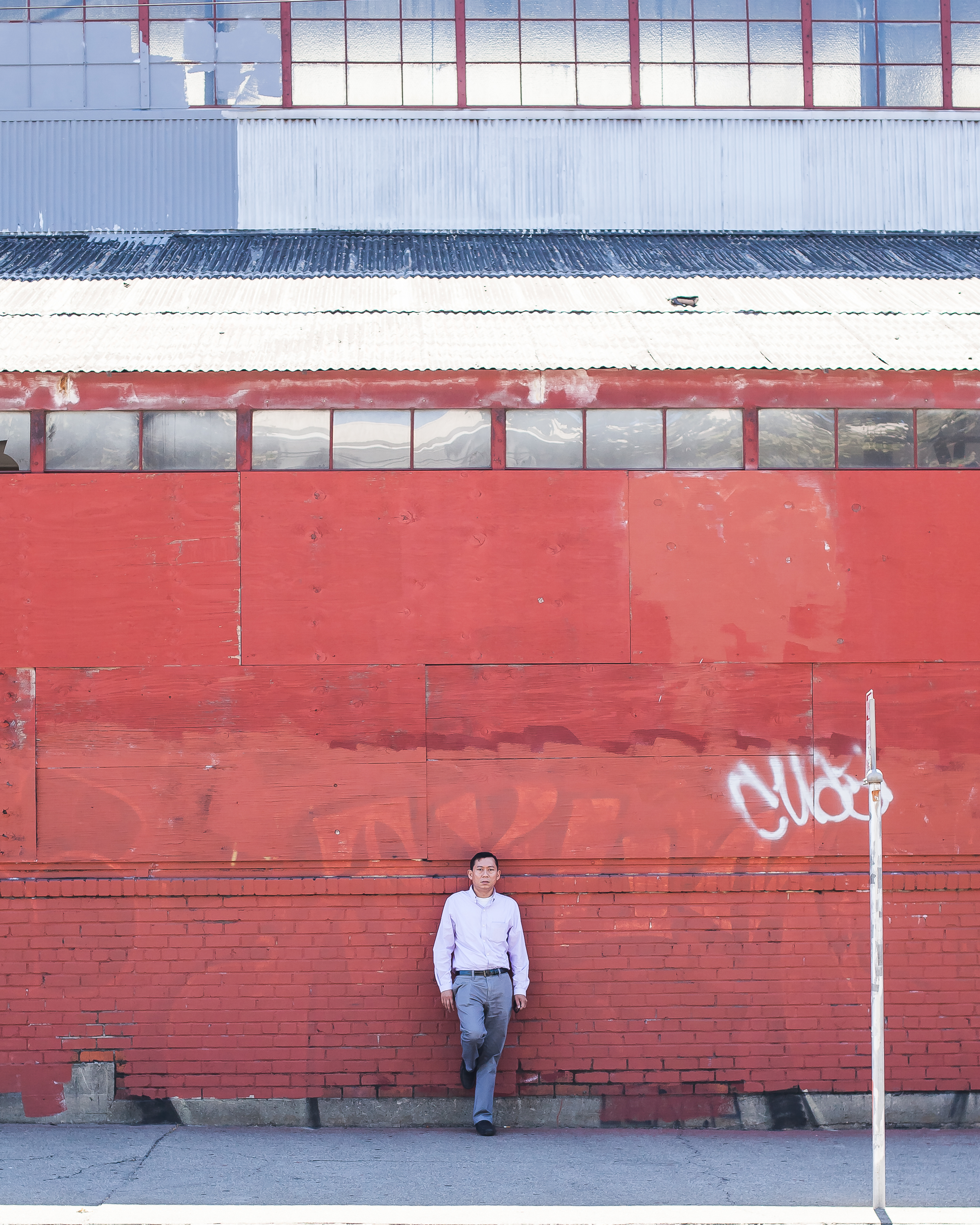
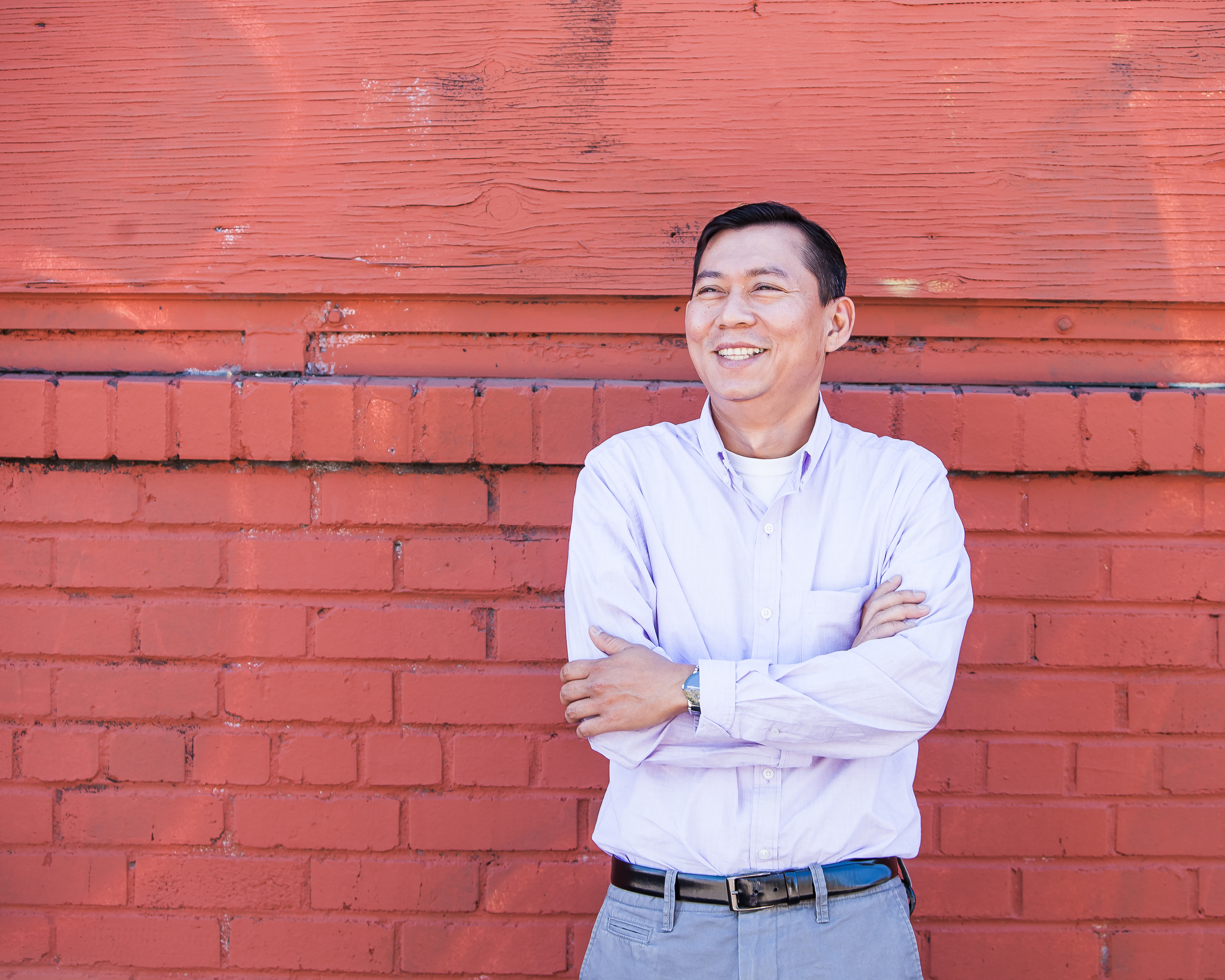
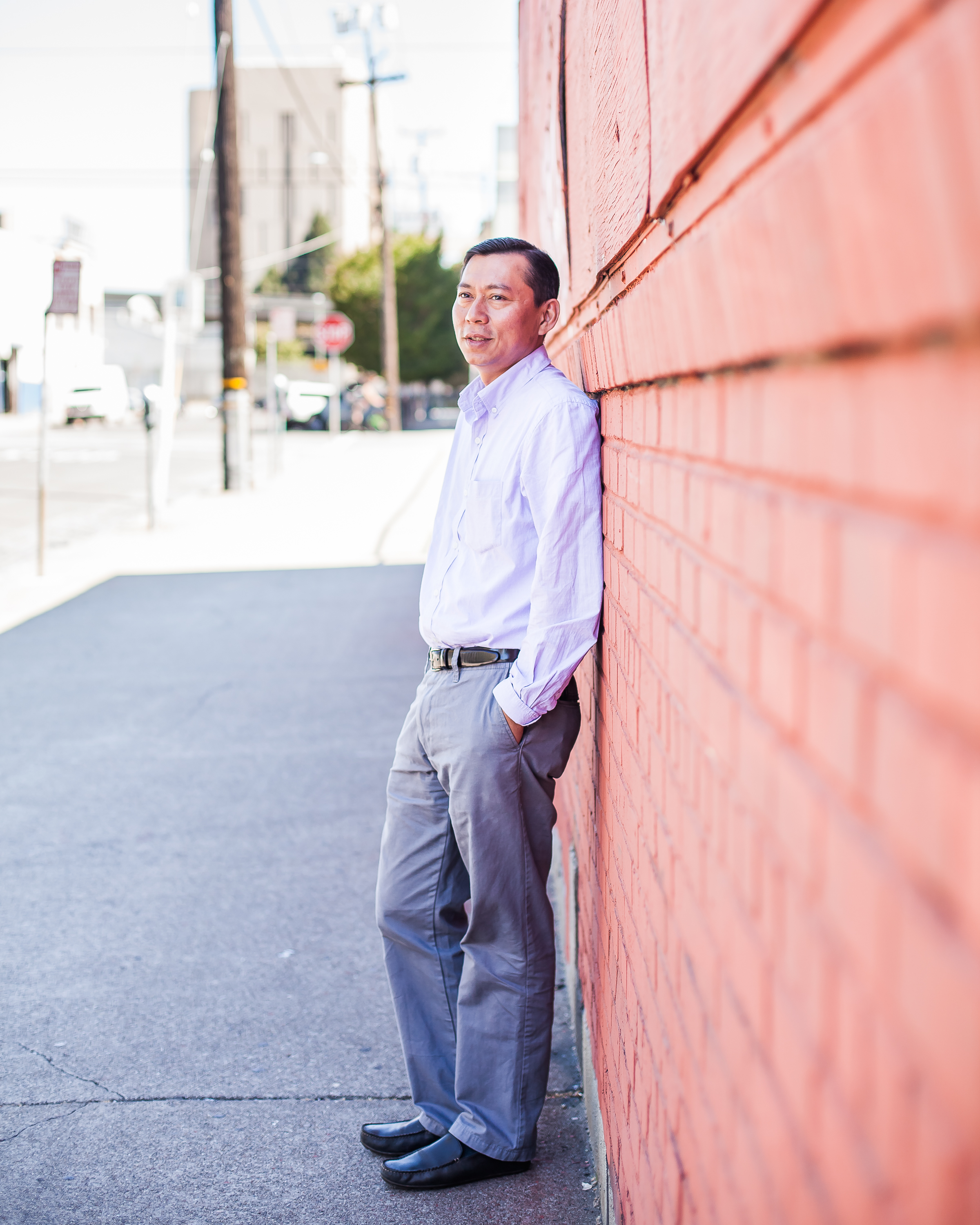
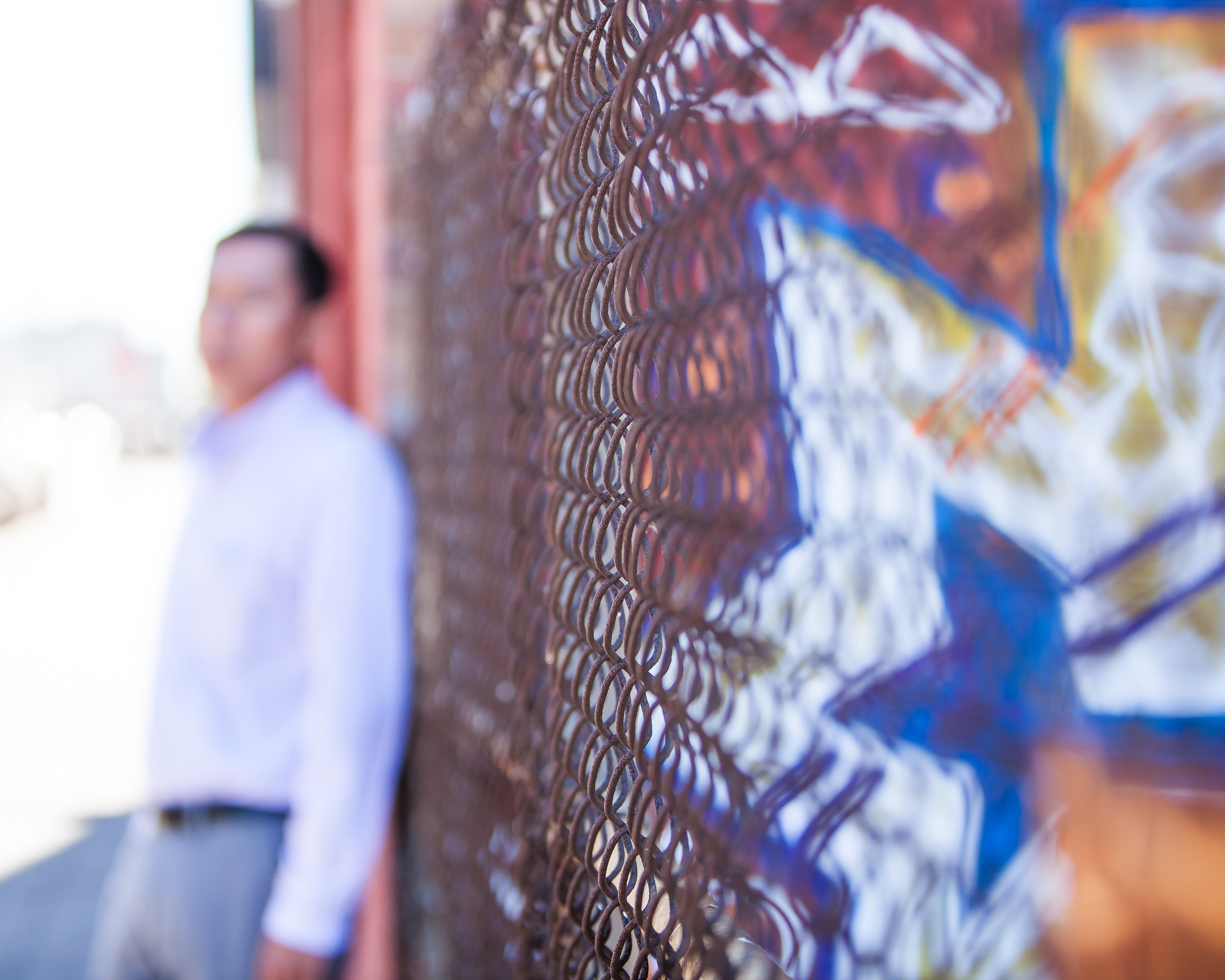
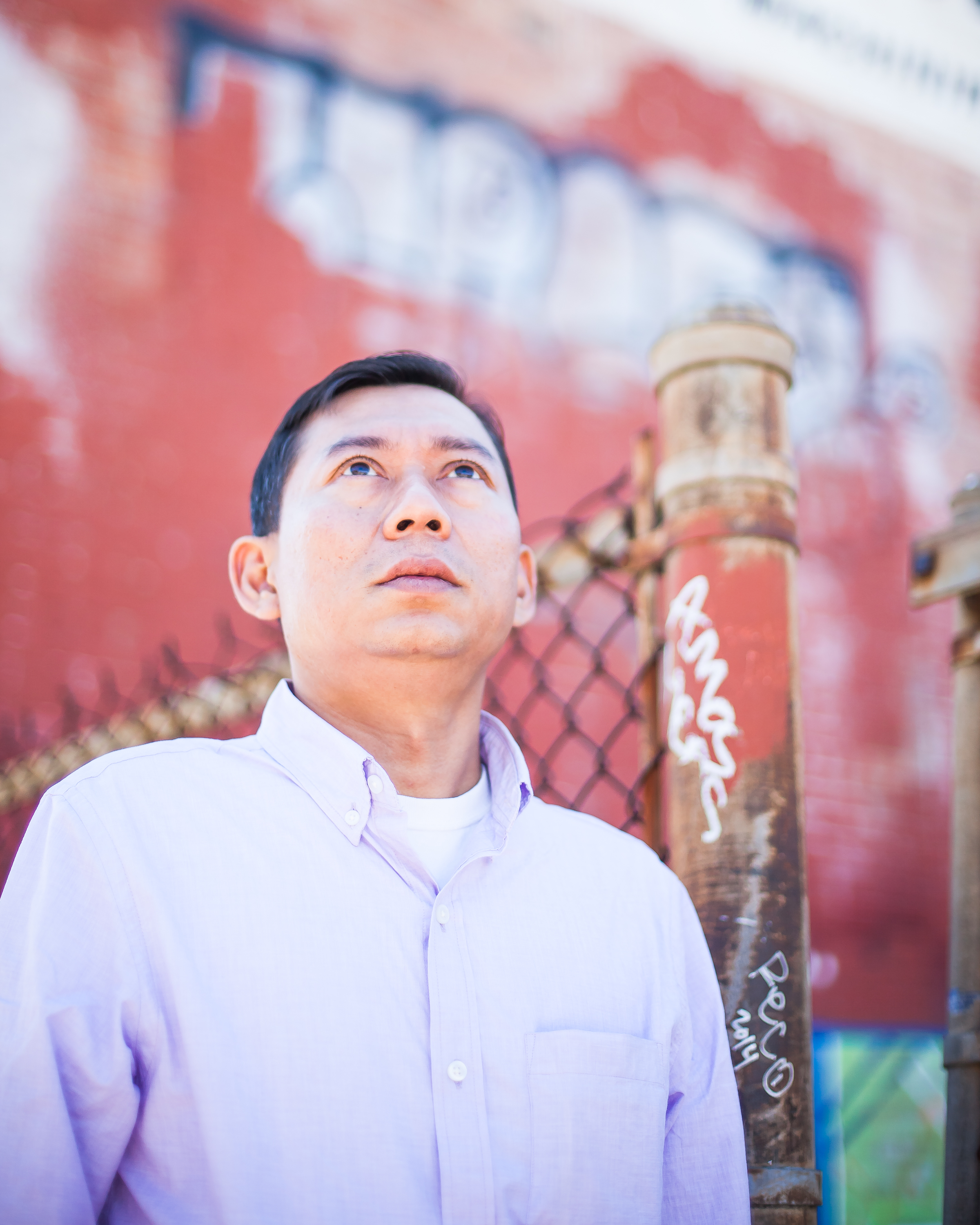
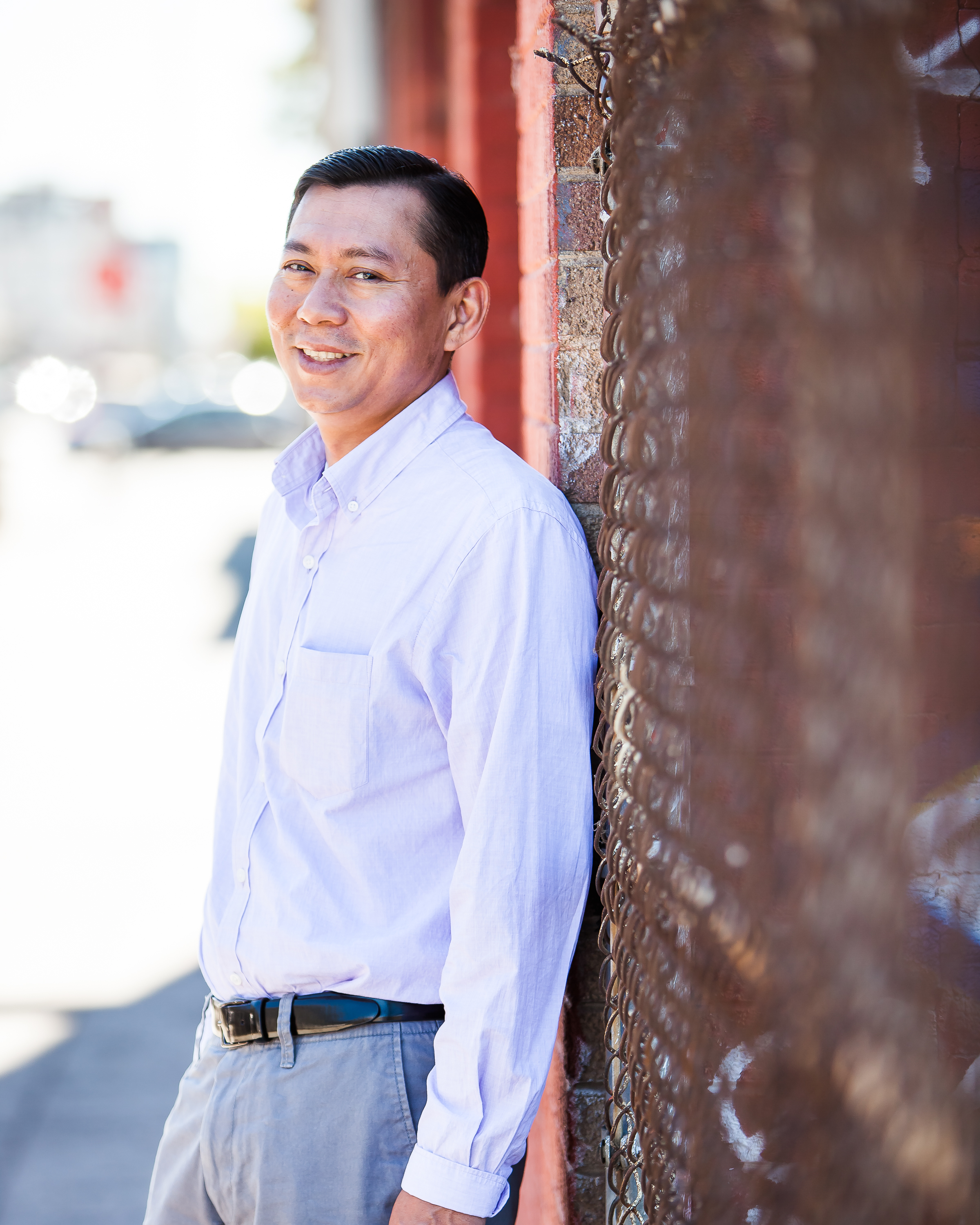
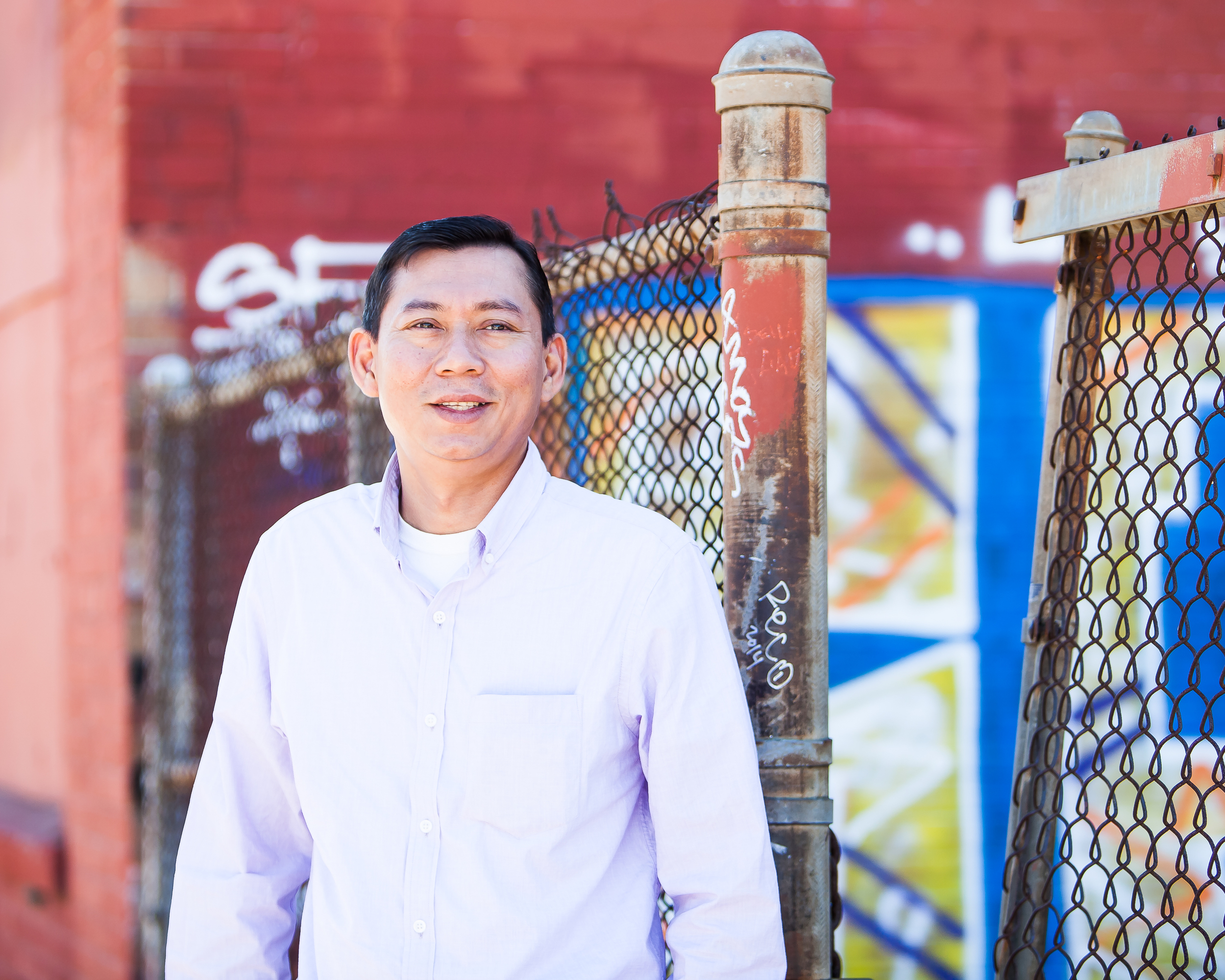
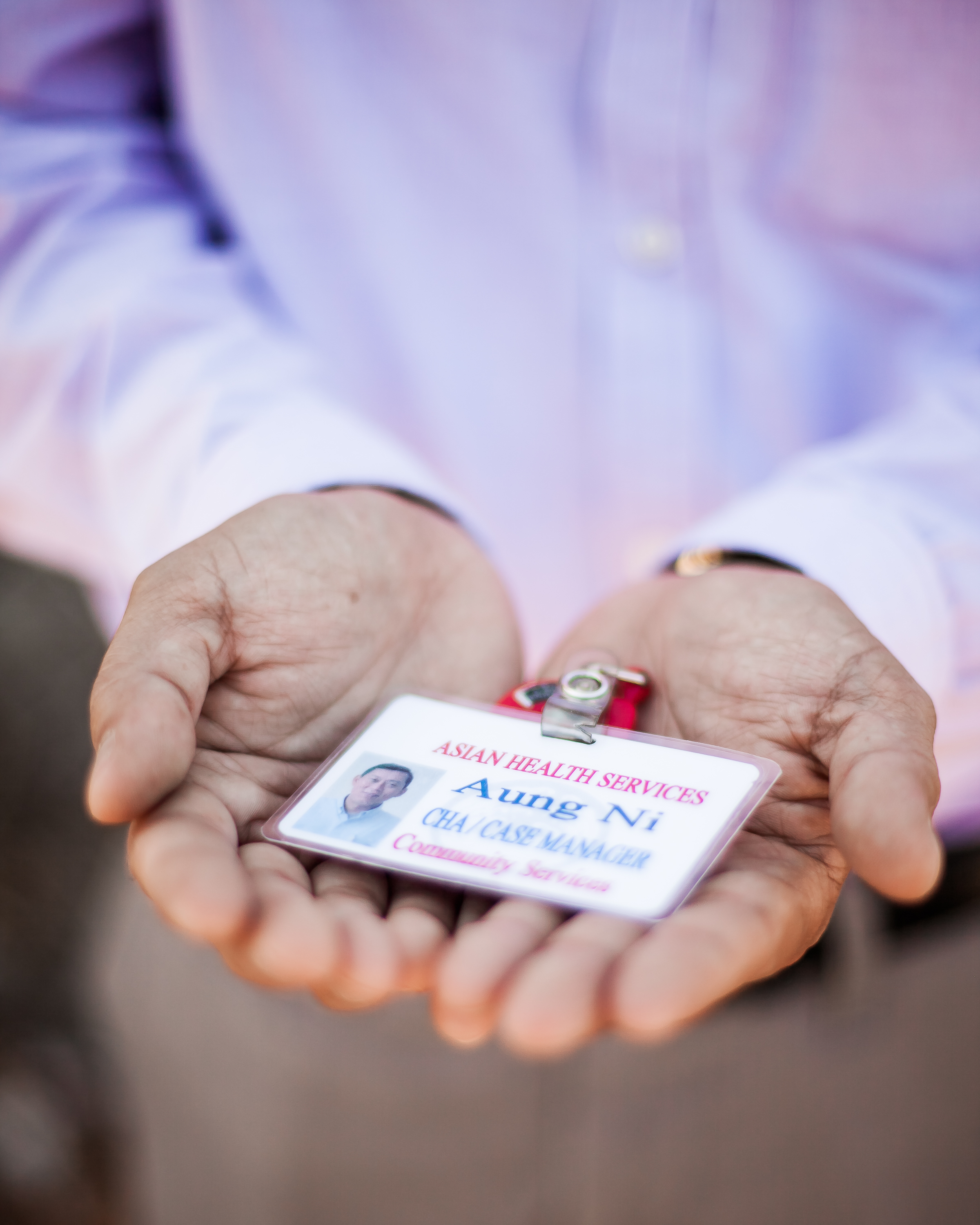
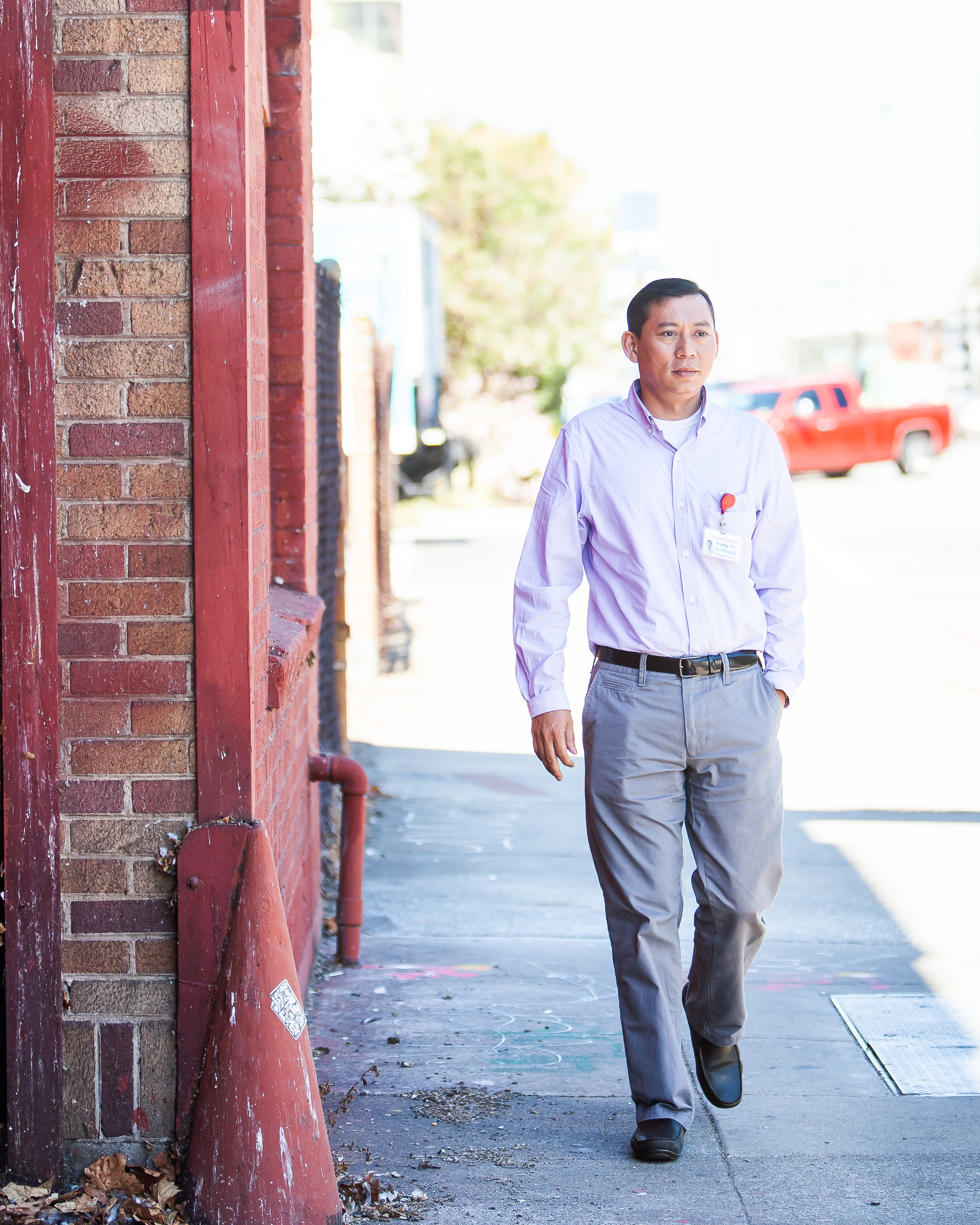
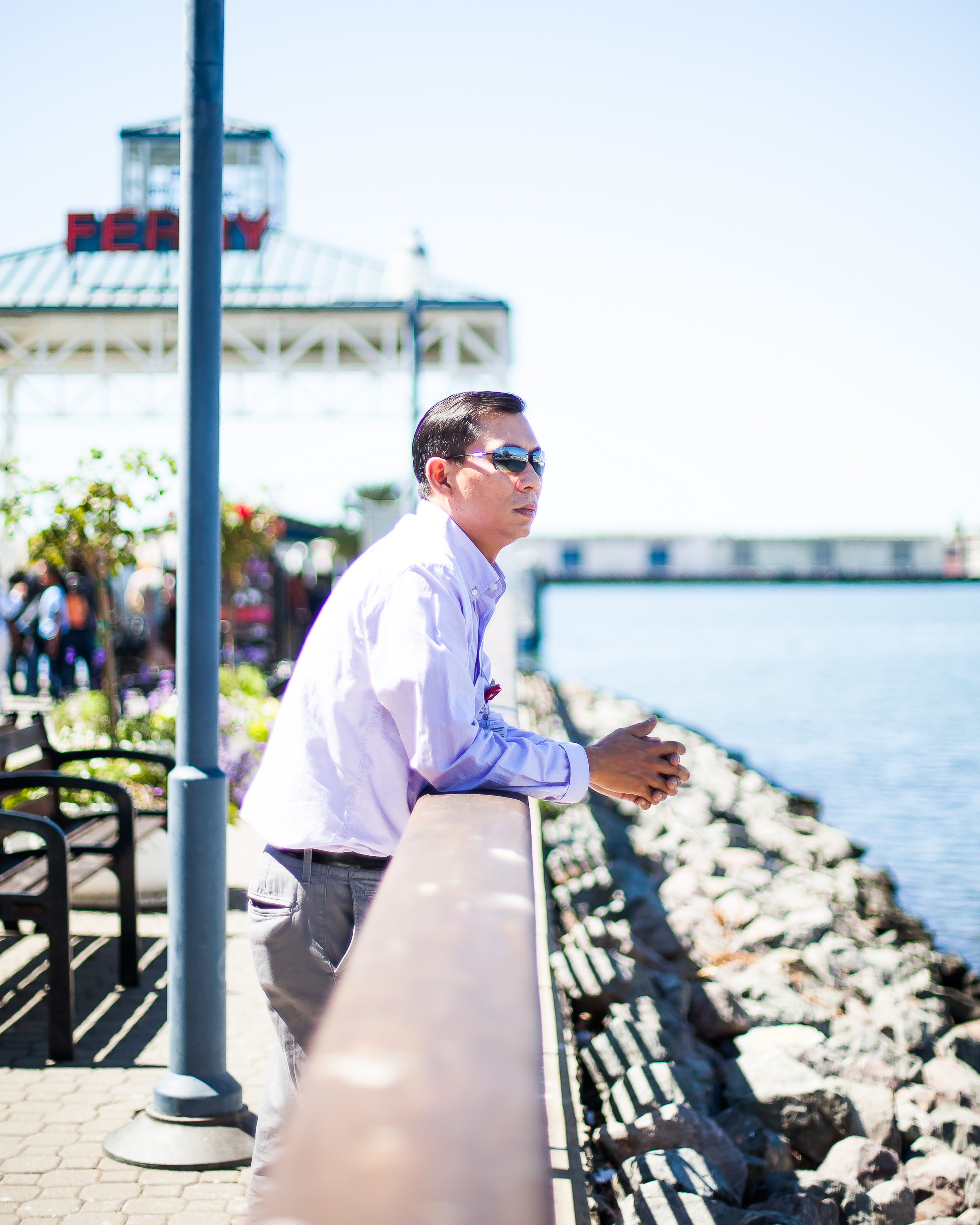
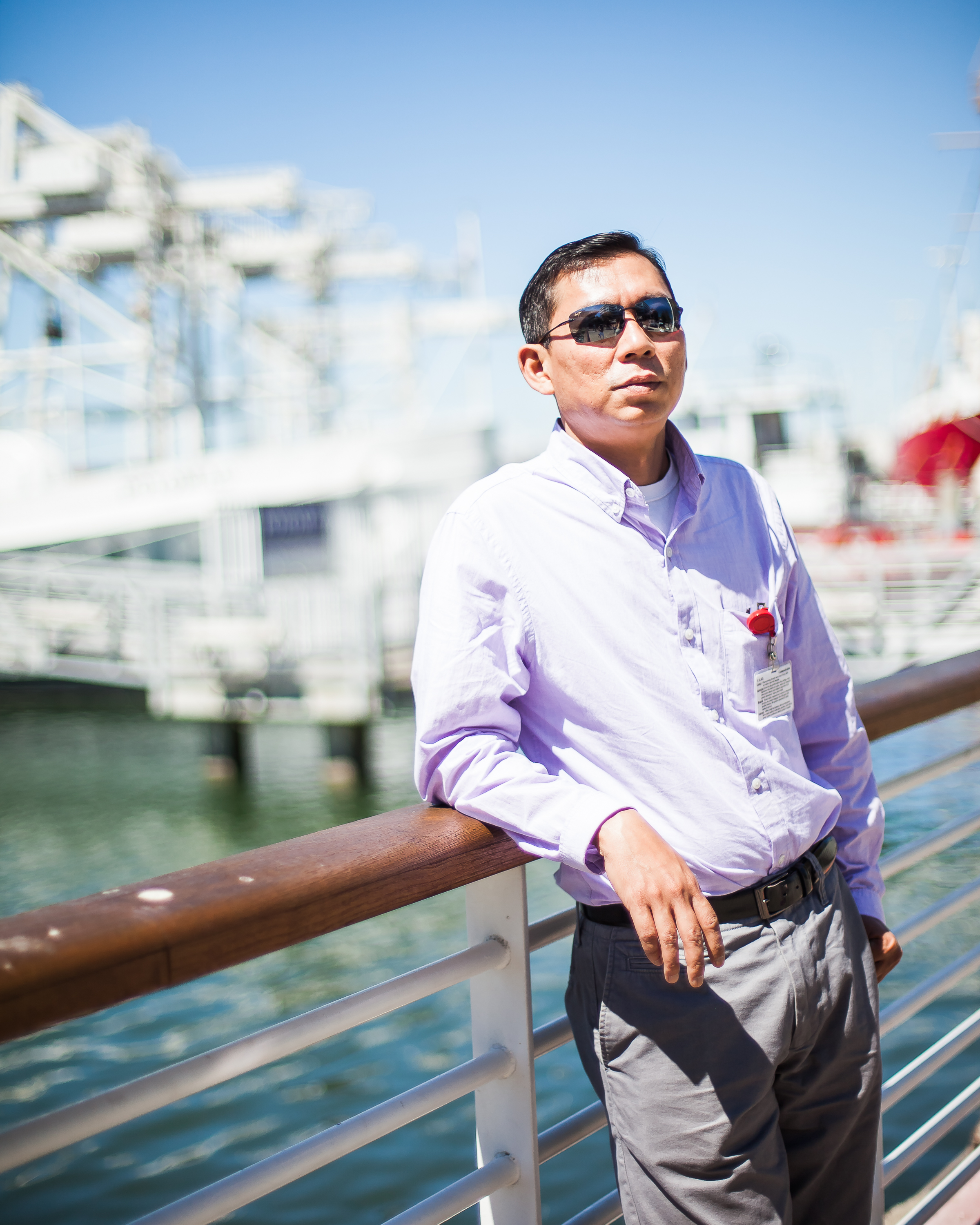
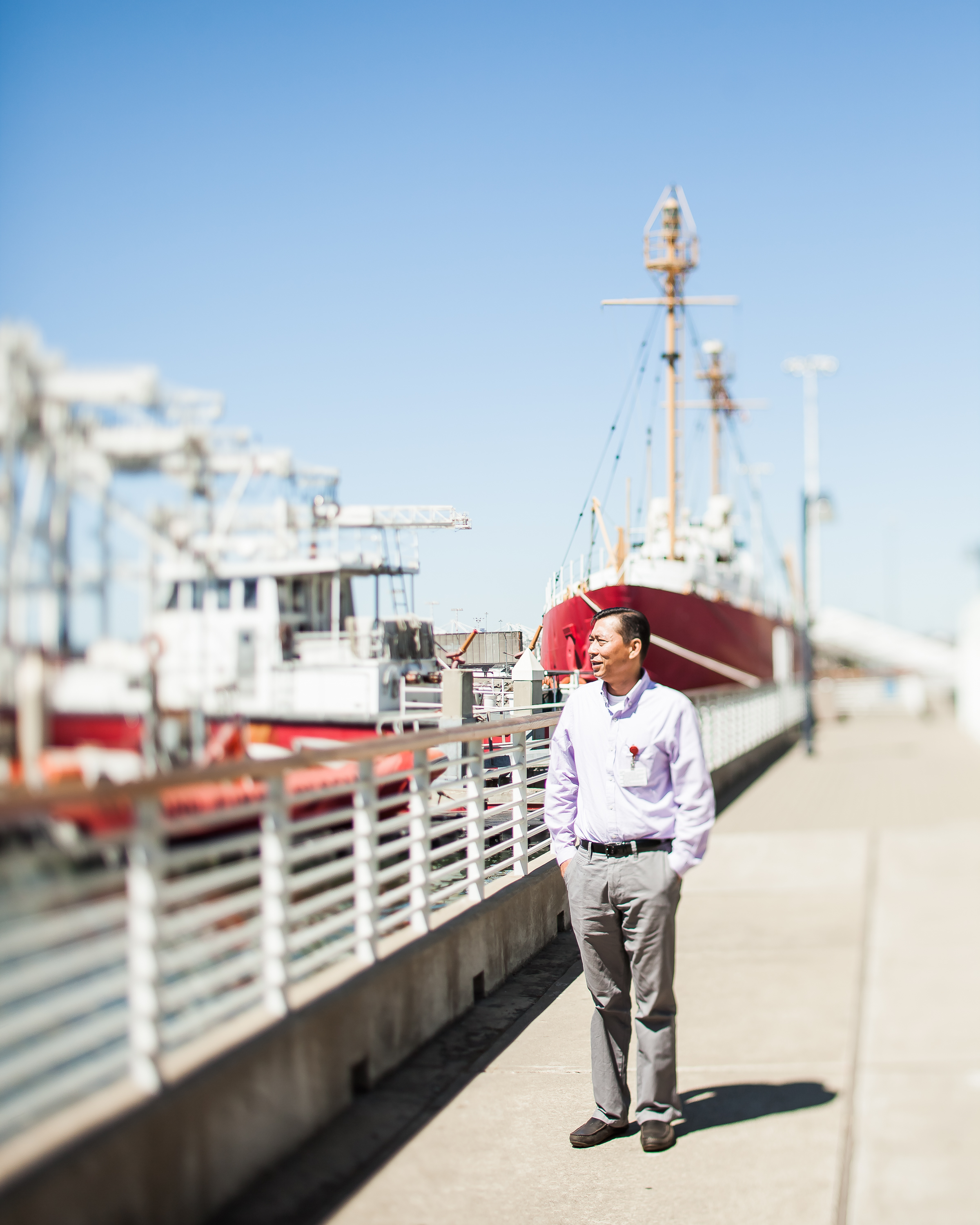
Hamzah and Rasha Alobaidi
Resettled From: Iraq | Resettled To: Oaklan | Resettlement date: January 12, 2015
We both fled Iraq for Syria in 2007, but not together. Hamzah had lived in the Diyala province, and I lived in Baghdad. The year was the deadliest of the conflict known here in the States, and for both of us it was clear the time had come to leave. Hamzah made the journey on his own, and I was accompanied by my mother, my sisters and my brothers. We each began a new life in Damascus and met soon after arrival. We fell in love and were married on September 27, 2008 full of hope that we would be able to start a family in peace. Hamzah had a cell phone repair store, and I studied pharmacy at a local university, graduated and began to practice. For a few peaceful years, our lives settled into a rhythm: the monotony of everyday life punctuated by the excitement of new children. Our daughter Malak was born in 2009 and our son Abdullah in 2010. Just months after welcoming him into the world, small protests broke out across the country and online. By April, protests had morphed into an uprising, with violence rippling across Syria. Fighting grew more frequent between government forces and the rebels, and we became targets in large part due to our nationality.
One night in 2011, we were attacked in our apartment. Hamzah was stabbed and everything of value was stolen. Overnight, the violence we had worked so hard to escape returned to our doorstep and the life we had struggled to build disappeared. Once again, it was time to go. We made plans to leave for Turkey, and I would have to leave my mother behind. She was too sick to join us. It was heart wrenching, but there was no choice. Our children came first.
The Turkish embassy in Syria had closed, but were able to obtain visas through the consulate in Iraq. After traveling by car and foot, we crossed the border into Turkey where the International Organization for Migration shuttled us to Kırşehir, a town in central Turkey. At this point, we had no illusions of being able to return home to Iraq or to our adopted home in Syria, so immediately began the paperwork for resettlement in a third country as refugees.
When we found out we were being resettled in the United States, we felt our dreams of having a normal life as a family had come true. We didn’t know anyone in Oakland, but were determined to do our best. I remember the customs officer at the airport reviewing our documentation; we were nervous, but when he said “Welcome home,” relief washed over me. The IRC greeted us at the airport and took us to an apartment they had set up. We were enrolled in an employment program that has helped Hamzah find a job as a home car aide and enrolled me in English classes. When we needed a car to help us move around the city, the IRC helped secure a donation for us. Our children are in first grade and kindergarten at a local Oakland school.
We are grateful to the IRC for helping us with a fresh start in the U.S. Our dreams here are simple: rebuild our careers, raise our children right, one day see our families again, and, most of all, for peace.
Omid - Refugee from Afghanistan
Enes Ceric
Resettled From: Bosnia | Resettled To: San Francisco | Resettlement date: May 24, 1994
I was 20 years old when the conflict began in Bosnia. By nature we Bosnians are laid back, so we didn’t really worry about the war until it was too late. My town was called Jajce and in late October 1992, the Serbs had surrounded it. The siege broke and it became an urban war – shooting from building to building and in the streets. After six months, it became clear it was time to go and I’d never heard Jajce so peaceful. Cemetery quiet as people hugged and kissed and bid each other farewell, not sure when, if ever they would see each other again. My parents went to a family friend’s vacation home in Zenica. I went to Jablanica on the other side of the country where my roommate from college lived. Soon after I began working for a humanitarian organization as an interpreter; that organization was the IRC. But after just a few months it became clear that it wasn’t suitable for a Muslim to remain in a Croat-controlled part of Bosnia. The IRC suggested resettlement, and less than six months after filling out the form I arrived at SFO with just my t-shirt, pants, and boots. An IRC employee I knew from working in Bosnia named Mark picked me up from the airport and less than a week later I was working in Sunnyvale (the IRC’s deputy director at the time, Leslie, gave me her sandwich so I wouldn’t miss my interview).
I met my wife, Lane, in 1997 at a bar in San Francisco where my friends and I liked to play pool. Amazingly, we had lived across the street from each other in Split, Croatia in 1993 where she was helping Croatian students apply to study in the United States, but never met. I became a citizen the next year; Lane took the day off to attend the ceremony and take me out to a celebratory breakfast and lunch. We married in 2000, and our son Ismet (we call him Izzy) was born in 2003. Today, we live in Oakland, just above Lake Merritt in Crocker Highlands I went back to Bosnia for the first time in 1999 to see my parents for the first time in five years and took Lane just after we got married. Now we do a trip every two years so Izzy can learn the language and culture. I love visiting, but am even happier to come back to California and hear ‘welcome home’ as we’re stamped through customs.


